At UNGA 80, Shettima Warns against External Interference, Presence of Foreign Military in Africa
Demands withdrawal of foreign troops from African soil
Deji Elumoye in Abuja
Vice President Kashim Shettima has warned that external interference in crises on the African continent,
including the presence of foreign military forces, mercenaries, and defence contractors in some member states of the African Union (AU), negates the spirit
of African common defence and security policy.
The vice-president, who demanded the withdrawal of foreign troops from African soil,
also advised the AU to reinvigorate diplomacy as the primary and most effective means of conflict resolution on the African continent. Speaking while representing President Bola Tinubu at a meeting of the AU Peace and Security Council at the level of Heads of State and Governments held on the margins of the 80th
PDP Govs Reclaim Control as Party Zones 21 Offices
North-west


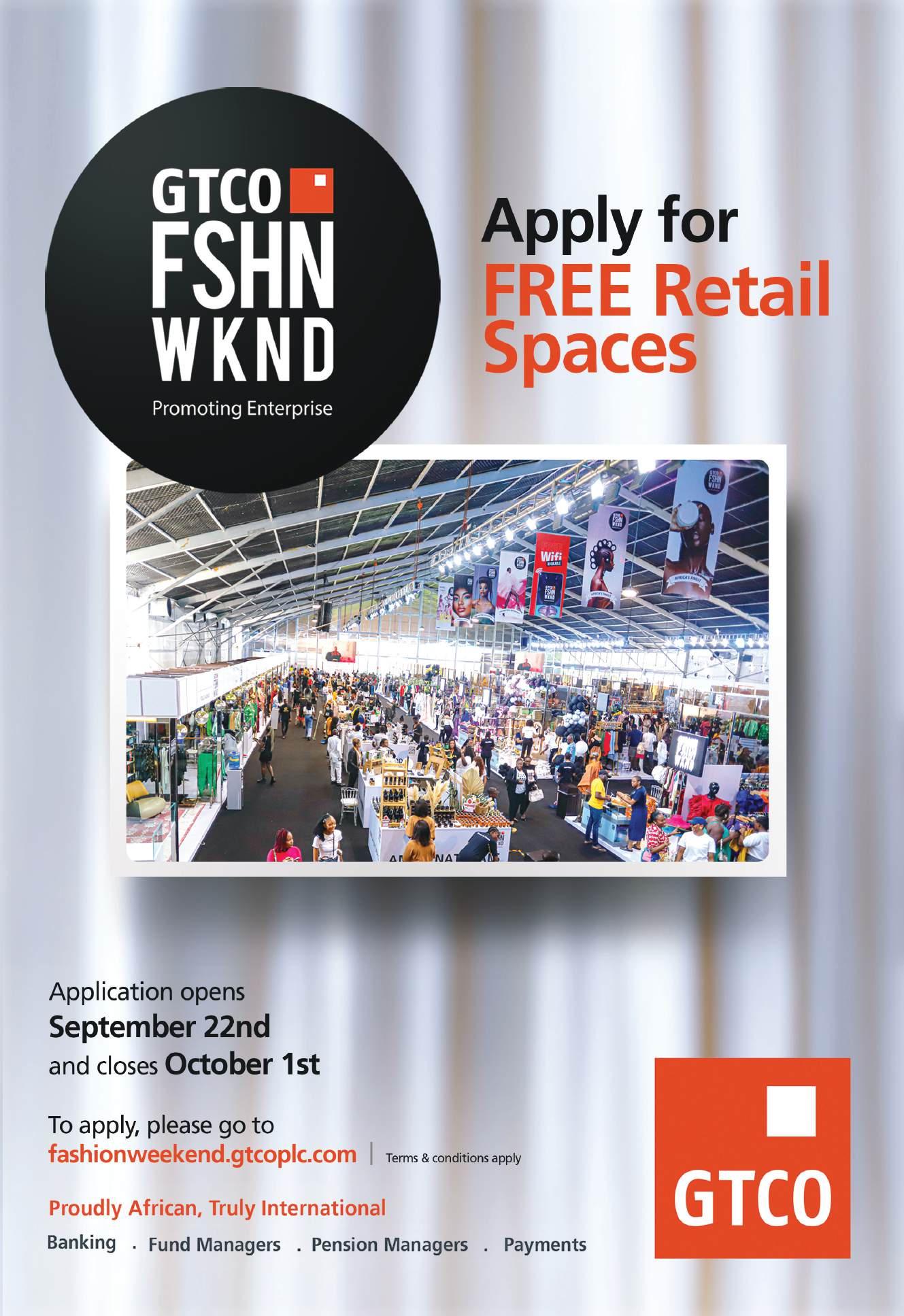


Komolafe: How Nigeria Reduced Crude Oil Losses from $7m Daily to $700,000
The Nigerian Upstream Petroleum Regulatory Commission (NUPRC) yesterday reiterated its commitment to ending the decades-long crude oil losses in Nigeria, explaining that between 2021 and 2025 crude losses fell from $7 million per day to an average of $700,000 daily.
Speaking on ARISE NEWS Channel, the NUPRC's Chief Executive Officer, Gbenga Komolafe,
As the November 16, 2025, National Convention of the Peoples Democratic Party (PDP) scheduled for Ibadan, Oyo State capital, approaches, the governors elected on the party's platform may have reclaimed their influence and outwitted other stakeholders in the zoning of the party's offices, THISDAY investigation has revealed.
This is just as the National Convention Organising Committee (NCOC) of the party has extended the deadlines for the submission of completed Expression of Interest and Nomination Forms, as well as the screening of aspirants contesting for offices in the November Elective National Convention of the party.
However, a fresh crisis is brewing in the main opposition party as the National Chairman, Umar Damagum, and the National Secretary, Senator Samuel Anyanwu, have issued conflicting notices to the Independent National Electoral Commission (INEC) regarding the conduct of state congresses in three states.
THISDAY gathered that in the zoning arrangement for 21 offices, backed by the governors, the office of the National Chairman of the PDP was zoned to the North-west, foreclosing the chances of former Governor Samuel Ortom of Benue
argued that meddling in crises on the continent is contrary to the African Conflict Prevention and Resolution Initiatives.
Shettima noted that with the current UN administration and growing interest by traditional partners in conflicts outside the African continent, it was becoming increasingly difficult for countries to shoulder the total cost of peace support operations on the continent.
He said, "Our continent must continue to maintain a diplomatic approach in its conflict prevention and resolution endeavours. Against this backdrop, we urge the Council to ensure that the concept of future peace operations, particularly those mandated by the UN, includes diplomatic and political strategies that ultimately address the root
Comrade Lumumba Ighotemu Okugbawa, and addressed to the Branch chairmen in TotalEnergies, Renaissances, Chevron, Shell Nigeria Gas, Oando, and Seplat Producing Nigeria Unlimited, the union ordered its members to close off valves and suspend all crude loading operations to the facility.
recalled the several initiatives taken by the current administration to reduce oil theft, vandalism as well as metering losses. According to him, these initiatives have proved to be game-changers.
Komolafe disputed the methodology used in a recent report, claiming that crude oil amounting to over N8.4 trillion was lost in the last four years.
Komolafe disputed the methodology used in the report,
State from clinching the position. Ortom belongs to the camp of the Minister of the Federal Capital Territory (FCT), Nyesom Wike, which has been clamouring for the position to be retained in the North-central, where the former National Chairman, Dr. Iyorchia Ayu, and Ortom hail from.
By pushing for the position to be retained in the Northcentral, Wike's camp, it was learnt, was clearing the coast for Ortom to emerge as the next national chairman of the main opposition party in the November convention.
Investigation revealed that in their bid to outwit the FCT minister’s Integrity Group, the party's governors and the Ambassador Umar Damagum-led National Working Committee (NWC) pushed the office of the National Chairman to the North-west and the Deputy National Chairman to Ortom's North-central zone, foreclosing the chances of the former Benue State governor.
With the zoning of the office of the Deputy National chairman of the party to North-central, Ortom is out of the chairmanship race.
In the North-west, the PDP governors are said to be pushing for the emergence of either the former governor of Kano State, Senator Ibrahim Shekarau or the former governor of Kaduna State, Senator Ahmed Makarfi, who
causes of conflict.
"We also urge the Council to ensure that the existing strategies for future AU PSOs include elements that would ensure that national and local institutions can effectively anticipate and manage shocks and relax tensions."
The vice president said this is the only way the continent's peace support operations can leave behind resilient and self-sustaining peace infrastructure wherever they find themselves.
"We further wish to underscore the current practice of proliferation of numerous peace initiatives on our continent, which counter AU's prevention and resolution processes," he added.
He called on the council to consider adopting a communique
emphasising that crude oil losses shrank by 90 per cent during the period.
“As of 2021, we got a situation that we were recording about 100,000 barrels a day loss. Looking at that, if you fiscalise that against the prevailing Central Bank of Nigeria (CBN) exchange rate as of then, that translates to roughly about $7 million.
“So, progressively, from 2021 coming down to 2025, we have
is currently the Secretary of the Board of Trustees (BoT) of the party.
Under the new zoning arrangement, the office of the National Secretary is zoned to the South-west, while the office of the National Organising Secretary, the engine house of the party in all electoral matters, is zoned to the North-east.
According to the comprehensive list sighted by THISDAY, the positions of the National Chairman, Deputy National Auditor, and the National Legal Adviser are micro-zoned to the North-west.
The influential position of National Legal Adviser was previously held by the Northcentral geopolitical zone.
In the approved list, the positions of Deputy National Chairman (North), National Treasurer, Deputy National Financial Secretary, and Deputy National Women’s Leader are zoned to the North-central.
The North-east is allocated the positions of the National Organising Secretary, National Youth Leader, and Deputy National Publicity Secretary.
The party also assigned the positions of the Deputy National Secretary, National Financial Secretary, National Women Leader, and Deputy National Youth Leader to the South-east.
The party also assigned the
to address the loopholes in conflict resolution.
Shettima urged the council to consider the call for the immediate and unconditional withdrawal of foreign forces from member countries.
He also told the council, “To expeditiously address obstacles to the operationalisation of the African Standby Force as well as adopt a strategy for the deployment of the African Standby Force in situations of conflict on the continent."
He acknowledged the role played by the AU's Peace Support Operations (PSOs), a unit designed to maintain, monitor, and build peace in Africa through peacekeeping and peace enforcement missions.
He noted, however, that
now moved from a situation of a loss of $7 million a day to a situation where we are now witnessing roughly $700,000 a day,” the NUPRC chief stated.
Komolafe insisted that the NUPRC remains the statutory organisation in Nigeria that releases such data, explaining that even the Organisation of Petroleum Exporting Countries (OPEC) relies on figures from the commission.
positions of the Deputy National Chairman (South), National Publicity Secretary, Deputy National Treasurer, and the Deputy National Legal Adviser to the South-south, while the positions of the National Secretary, National Auditor, and Deputy National Organising Secretary were zoned to the South-west.
However, the zoning arrangement is subject to approval at the party's National Convention.
Zoning ExtendsCommittee Deadlines for Submission of Forms, Screening of Aspirants
Meanwhile, the zoning committee of the party has extended the deadlines for the submission of completed Expression of Interest and Nomination Forms by the aspirants contesting for offices from the earlier scheduled date of Friday, September 26th, 2025.
In the same vein, the NCOC has also approved the shifting of the date for the screening of aspirants from the earlier scheduled date of Tuesday, September 30, 2025.
In a statement by the National Publicity Secretary of the party and Secretary of the Sub-Committee of NCOC, Debo Ologunagba, the party said that the extension was necessitated by the need to ensure all necessary arrangements for the smooth conduct of the exercise.
the operation comes at a huge financial cost.
Earlier, the Special Representative of the Secretary-General to the African Union and Head of the United Nations Office to the African Union, Mr. Parfait Onanga-Anyanga, decried the surge in armed conflicts and dwindling funding for peace interventions on the continent.
He urged the member-countries to establish their own national peacebuilding and conflict prevention mechanisms.
"Prevention, indeed, must start at home and must be consistent with the United Nations Charter. Regional organisations such as the African Union, of course, regional economic commissions and regional mechanisms have a
“So, any other authority quoting figures of production will be doing that from a point of either referencing the commission or hearsay,” Komolafe added.
He pointed to how President Bola Tinubu gave the commission marching orders to tackle crude theft.
“On assumption of duty, President Tinubu gave that marching order that the situation was clearly unacceptable, and
He said that new dates would be communicated in due course, and urged all the aspirants to note the extension and be guided accordingly.
Fresh Crisis Looms as Damagum, Anyanwu Write Conflicting Letters to INEC on State Congresses
In another development, a fresh crisis is brewing in the main opposition party as the National Chairman, Damagum, and the National Secretary, Anyanwu, have issued conflicting notices to the INEC regarding the conduct of state congresses in three states.
In a letter dated September 25, 2025, sighted by THISDAY, Damagum informed INEC that the party’s scheduled congresses in Cross River, Plateau, and Kebbi states — earlier fixed for Saturday, September 27, 2025 — had been postponed due to “unforeseen circumstances and operational logistic challenges.”
In the letter, Damagum stated that a new date for the exercise would be communicated to the electoral body in due course.
“The National Working Committee of our great party hereby postpones the state congresses in Cross River, Plateau, and Kebbi states. A new date will be communicated to the Commission,” the letter read
key role to play in this regard," Onanga-Anyanga noted.
In a related development, the Vice President has identified education as the public investment with the highest returns, saying every additional year in school increases lifetime earnings and reduces the risks of fragility and conflict.
He stated this during a high-level event organised by the Permanent Missions of Italy and Nigeria, along with Global Partnership for Education (GPE), on the margins of the ongoing 80th Session of the United Nations General Assembly in New York, United States.
The event was hosted to discuss the opportunities that investing in quality education presents to the world.
that he wanted to see a drastic reduction. That meant that the huge leakage in federal revenue arising from the administration of crude oil needed to be addressed.
“So, if you look at $7 million to about $700,000 a day, you're talking of a drastic reduction of 90 per cent. With the directive of Mr. President, the general security forces have been making every effort to try to curb the menace,” he added.
in part.
However, barely 24 hours later, PDP National Secretary, Anyanwu, wrote a counter-letter to INEC dated September 26, insisting that the congresses would proceed as originally scheduled.
“This is to confirm to the commission that the congress will hold as originally scheduled and has not been postponed. The earlier letter signed by the National Chairman should be ignored,” Anyanwu stated. He further warned that any communication sent to INEC without the signatures of both the National Chairman and National Secretary should not be recognised, stressing that the exercise in the three states “shall hold as earlier scheduled.”
Anyanwu confirmed to THISDAY that he wrote the said letter to INEC, explaining that the National chairman cannot write to INEC without him counter-signing. The PDP has been grappling with leadership crises, as rival factions and party organs continue to clash over control and decision-making ahead of its elective congress and the 2027 general election. Both the national chairman and national secretary belong to different camps in the PDP. Damagum-led NWC is working closely with the PDP governors, while Anyanwu belongs to Wike’s camp.
Shettima noted that well-targeted education financing addresses the root causes of instability, extreme poverty, and youth unemployment, noting that GPE multiplies impact through financing, policy support, and targeted incentives.
According to the Vice President, GPE mobilises domestic resources and co-financing, multiplying the impact of every dollar invested, just as GPE's multiplier and co-financing mechanisms have unlocked billions in funding beyond GPE's grants. His words: "GPE has a record of mobilising partners and delivering results at scale. Over recent years, the partnership has approved and disbursed significant grant volumes and leveraged innovative financing to reach millions of children.
But in a swift reaction, the refinery, in a statement released yesterday, described PENGASSAN’s directive as “criminal, reckless, and an act of economic sabotage.”
kerosene, and cooking gas.
The company noted that a sudden disruption in supply will translate into insufferable hardship for millions of Nigerians.
The refinery argued that if enforced, the directive would disrupt the production and nationwide supply of critical petroleum products, including petrol, diesel, aviation fuel,
“In what circumstance would it be justified for PENGASSAN to so disrupt and introduce insufferable hardship into the living conditions of Nigerians? None that we can see," the company said.
"The follow-up question is, in whose interest and on whose behalf is PENGASSAN directing and intending to inflict such anarchic and criminal disruption upon the Nigerian society and persons living in Nigeria? Most certainly, not in the interest of the Nigerian State and/or the Nigerian public and citizens," the statement added.
Beyond the immediate hardship on citizens, Dangote Refinery warned that the government’s revenue would also be dented, given the refinery’s status as one of the country’s largest taxpayers and contributors to both federal and state coffers.
The company insisted that any halt in operations would stall contributions to the national
purse and undermine investor confidence in Nigeria’s oil and gas sector.
"This is also economic sabotage against the Nigerian state at multiple levels. Dangote Refinery is the only refinery of its type in Africa and ordinarily should be the pride of all Nigerians as well
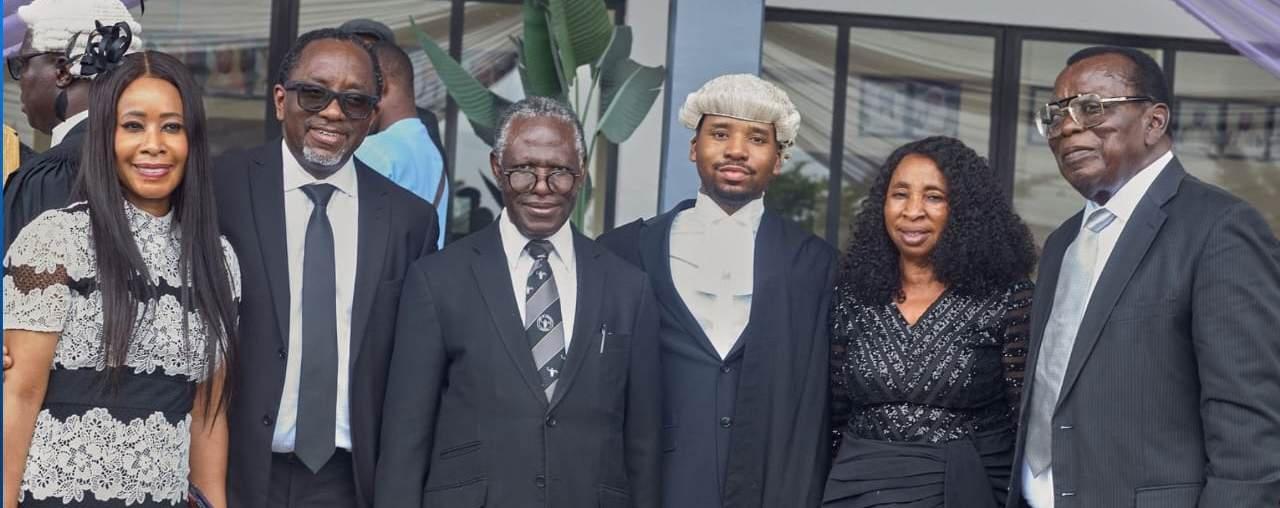
CONGRATULATIONS TO NEW WIG…
Citing Exponential Growth in Assets under Custody, PenCom
Slams N30bn Capital Threshold on PFAs, N25bn on Custodians
The National Pension Commission (PenCom) has raised the minimum capital for pension operators from N2 billion to N20 billion for Pension Fund Administrators (PFAs), N30 billion for the special-purpose PFAs, and N25 billion for Pension Fund Custodians (PFCs).
In a sweeping directive, the regulator announced that Pension Fund Administrators (PFAs) and Pension Fund Custodians (PFCs) must now bulk up their balance sheets if they intend to remain in business.
The new rule, which takes immediate effect for new entrants and has a compliance deadline of December 31, 2026, for existing players, was designed to make the industry sturdier, more resilient, and better equipped to safeguard the retirement savings of over 10 million Nigerian workers.
In a circular titled: “Revised Minimum Capital Requirements for Licensed Pension Fund Administrators and Pension Fund Custodians”, PenCom
stated that PFAs with Assets Under Management (AUM) of N500 billion and above must now maintain a capital base of N20 billion plus 1% of the excess AUM beyond N500 billion.
It said that the move is aimed at strengthening financial stability and operational resilience.
PFAs with AUM below N500 billion are also required to meet the new N20 billion minimum.
Special Purpose PFAs, such as NPF Pensions Limited, must hold N30 billion, while the Nigerian University Pension Management Company Limited is required to maintain N20 billion.
“The capital requirement was reviewed in line with global best practice, which ensures that capital is proportionate to the risk exposure of the Pension Fund Operator,” PenCom stated.
“The new model aligned the capital requirement with the Pension Asset Under Management (AUM) and Assets Under Custody (AUC) of the PFAs and PFCs, respectively.”
For Pension Fund Custodians (PFCs), the minimum capital requirement has been raised
Tinubu in Lagos on Working Visit, to Meet with Key Players in Private Sector, Top Govt Officials
To inaugurate remodelled National Theatre to mark nation's 65th independence
To also commission projects in Imo on Tuesday
Deji Elumoye in Abuja
President Bola Tinubu has arrived in Lagos on a working visit to the former seat of government as Nigeria prepares for a low-key 65th Independence Anniversary.
The president moved to Lagos after attending the coronation of His Imperial Majesty, the Olubadan of Ibadanland, Oba Rashidi Ladoja, in the ancient city of Ibadan in Oyo State.
While in Lagos, President Tinubu, according to a statement by his Adviser on Information
and Strategy, Bayo Onanuga, would meet with players in Nigeria’s private sector and senior government officials.
As part of the 65th Independence anniversary of Nigeria, the President is billed to inaugurate the remodelled National Theatre in Lagos, which has been renamed Wole Soyinka Centre for Culture and the Creative Arts.
Tinubu will also visit Imo State on Tuesday, September 30, 2025, to inaugurate projects executed by Governor Hope Uzodimma.
from N2 billion, unchanged since 2004, to N25 billion plus 0.1% of AUC.
The commission cited the exponential growth in assets under custody and the increasing complexity of operations, including technology deployment, cybersecurity, and staff welfare, as key drivers of the revision.
“The operating landscape of PFC business has evolved significantly over 21 years,” the circular noted. “These developments underscore the need to reassess the adequacy of the existing capital threshold to ensure continued financial stability and effective risk management.”
Explaining the rationale behind the upward review, PenCom pointed to three major concerns: the rapid growth of pension assets in Nigeria, the increasing complexity of fund operations, and the need to keep pace with global best practices.
PenCom has given operators
until December 31, 2026, to meet the new thresholds, a window that allows PFAs and PFCs' time to recapitalise, restructure, or consider mergers and acquisitions. Compliance will be checked biennially, based on audited financial statements, and any shortfall identified must be rectified within 90 days.
LP Fumes over Attack on Abure at Abuja, Benin Airports
Chuks Okocha in Abuja
The Julius Abure-led faction of the Labour Party (LP) has cried out over the alleged physical attack on him by a woman identified as Precious Oruche, popularly known as ‘Mama P,’ at the Nnamdi Azikiwe International Airport, Abuja.
The incident, which occurred on Friday, was sponsored by “anti-democratic elements” according to the leadership of the party.
According to a statement issued yesterday by the Labour Party’s spokesperson, Obiora Ifoh, Abure was quietly standing in line to board a Max Air flight to Benin when ‘Mama P’ suddenly pounced on him.
Ifoh said she continued the
confrontation onboard, ignoring pleas from flight attendants to calm down, and even carried it on after the flight landed in Benin.
“The attacker, ‘Madam P,’ who is also a known content creator, continued the attack throughout the duration of the flight, defying all attempts by the Max Air flight attendants to calm her.
The assault, which attracted a large number of onlookers, continued on disembarkation at the Benin Airport while she kept recording the scene,” he said.
It reportedly took the intervention of security operatives at the airport to whisk Abure to safety, while the woman was handed over to the police.
The party added that what shocked it more was a video later released by the woman, where she allegedly boasted of her connections.
“In one of her films released, the lady claimed that she has contacts with the highest police hierarchy, boasted that nothing will happen to her, and vowed that she will not stop attacking Abure or any member of the Labour Party executive because, according to her, ‘you have killed Labour Party and you are the reason why Obi is no longer in the Labour Party,’” the statement added.
The party leadership called the incident “a suicidal aggression” against Abure and insisted it was politically motivated.
“We sincerely believe that the lady-agent was on an assignment to accomplish the desires of her paymasters. “Assault and cyber-bullying are severe crimes under our laws, and we think that the Police must fish out her sponsors and cohorts, and bring them to book,” Ifoh said.
The Labour Party urged its members not to retaliate but to remain calm while awaiting the outcome of police investigations.
“We are calling on members of the Labour Party to be calm, even in the face of this unwarranted provocation, and wait for the outcome of the investigation into the unprovoked attack against the leadership of the party,” the statement added.
Stop Using Repressive Laws to Target Journalists, Editors Tell Govts
Sunday Ehigiator
The Nigerian Guild of Editors (NGE) has asked government at all levels to desist from using repressive laws to target journalists, particularly citing the Cybercrime (Prohibition and Prevention, etc) Act.
The guild said this in a statement issued to mark World News Day, which is celebrated annually on September 28.
In a statement signed by its President, Eze Anaba, and General Secretary, Onuoha
Ukeh, the Guild reaffirmed its commitment to editorial excellence, press freedom, and the protection of journalists’ rights.
It expressed concern about attempts to suppress press freedom in the country, warning that any move to silence the media would endanger democracy.
“We urge the government at all levels and individuals to stop using repressive laws, including the Cybercrime Act, to harass and intimidate journalists,” the guild said.
“As a body, we reaffirm our commitment to promoting high standards of editorial leadership and protecting press freedom.”
The NGE commended Nigerian journalists and their colleagues worldwide for their dedication to truth-telling despite mounting challenges.
“We salute journalists in Nigeria and worldwide who work tirelessly to bring us the truth as we recommit to our mission of promoting quality journalism and protecting the rights of journalists to operate
freely,” the guild said.
“We will always stand firm to defend the rights of journalists, promote high ethical standards in our noble profession, and resist any move, in whatever means, to harass and intimidate journalists as well as impede journalism..
“We call on journalists to shun fake news, misinformation, disinformation, and propaganda, but to uphold the canons of journalism, including accuracy, fairness, objectivity, and facts.”

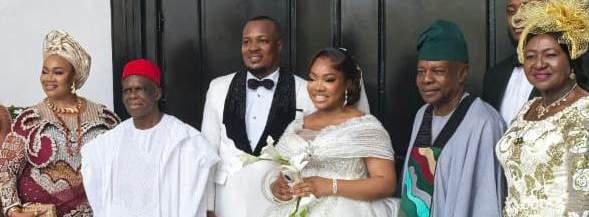
SAVOURING JOY OF MARRIAGE…
Tinubu to Military: Combat Terrorism, Protect National Reforms
Following the multiple security challenges facing the country, President Bola Tinubu has charged the Nigerian Armed Forces to confront insurgents and terrorists with renewed vigour.
Tinubu warned that the objective of terrorists is to derail his administration’s reforms and plunge the country into economic chaos.
Tinubu, represented by Senate President Godswill Akpabio, gave the charge yesterday at the
combined passing-out parade of the 72 Regular Course - Army, Navy and Air Force - Short Service Course and Branch Commission Course of the Nigerian Defence Academy (NDA), Kaduna. This was disclosed in a statement released in Abuja by Akpabio’s Special Assistant on Media, Jackson Udom.
“I will seize this opportunity to draw your attention to the ills of insurgency and other security challenges to our nation. You must remember that the goal of
with Renewed Vigour
the insurgents and terrorists is to counteract our developmental reforms by creating counter-states.
“Yours is to safeguard the economic and core values of the nation to prevent the collapse of the economy and revitalise the Armed Forces, despite the enemies’ indiscriminate violence and baseless propaganda to orchestrate their threats against the state.
“You must never at any time lose sight of the vision of the founding fathers of our dear nation, irrespective of the multiple
complex security challenges facing our nation today,” the President declared.
The President also lauded the NDA for its embrace of technology in training and research, describing it as a crucial step in preparing officers for modern warfare, where cyber threats, drones, artificial intelligence, and unconventional tactics are increasingly redefining the battlefield.
He praised recent reforms at the Academy, including the overhaul of training curricula to
Ahead of Christmas, Air Peace Boosts Fleet with Another E190 Aircraft
Chinedu Eze
Nigeria’s major operator, Air Peace, has taken delivery of its second Embraer E190 aircraft to boost capacity towards the high Yuletide season and beyond, thus reinforcing its strategic fleet expansion and regional connectivity goals.
The 96-seater jet, bearing registration 5N-CER, landed at Murtala Muhammed International Airport, Lagos, at the weekend.
The airline said in a statement that this milestone comes just
three months after the airline welcomed its first Embraer E190, signalling a deliberate push to modernise operations with aircraft tailored to Nigeria’s evolving aviation market.
Designed for efficiency and passenger comfort, the Embraer E190 offers premium economy in a 1-2 seating layout and economy in a 2-2 configuration.
With eco-friendly technology, in-flight entertainment, and power outlets, the aircraft enhances the travel experience while ensuring versatility for both domestic and regional
routes.
Air Peace spokesperson, Osifo-Whiskey Efe, described the acquisition as a key step in the airline’s growth trajectory, adding that more Embraer aircraft are expected in the coming year.
“We are excited to receive our second E190 and are expecting more units next year. Fleet expansion at Air Peace is intentional—it supports our mission to make air travel more accessible, comfortable, and seamless”, he said.
With a fleet exceeding 40 aircraft, Air Peace remains the
only Nigerian airline consistently expanding its capacity and route network.
The addition of the second E190 underscores its commitment to bridging travel gaps, boosting regional connectivity, and contributing to national and continental development.
The airline said it plans to open new domestic routes, expand international services, and deepen regional presence with strategic fleet acquisitions at the heart of its mission to redefine air travel for Nigerians and beyond.
After Ghana Accepted W’African Deportees, US Lifts Her Visa Restrictions Following Months of Diplomatic Negotiations
Michael Olugbode in Abuja
The Ghanaian government has announced that the United States has lifted the visa restrictions it had earlier imposed on Ghana.
This comes a few weeks after Ghana accepted US deportees from Nigeria and other West African countries.
In a post on X on Friday, the country’s Foreign Minister, Samuel Ablakwa, announced that the new policy now allows citizens to apply for five-year multiple-entry visas.
He also stated that the reversal of the restriction comes with other enhanced consular privileges, adding that the development was the result of months of diplomatic engagement.
“The US visa restriction imposed on Ghana has been reversed. Ghanaians can now be eligible for five-year multiple-entry visas and other enhanced consular privileges.
“This good news was directly communicated to me by US Under Secretary of State for Political Affairs, Allison Hooker, at
a bilateral meeting earlier today, in the margins of the UN General Assembly.
“I am really pleased that months of high-level Diplomatic negotiations have led to a successful outcome,” he said.
The US has, however, yet to confirm or disclose the development.
In July, the US government introduced sweeping changes to its non-immigrant visa policy for Nigeria, Ghana, Cameroon, and Ethiopia by reducing the duration of visa validity for citizens.
It declared that all nonimmigrant and non-diplomatic visas issued to citizens of the four countries will now be single-entry and valid for only three months.
Previously, the country issued a two-year and a five-year visa with multiple entries.
The US Department of State described the policy as part of its global visa reciprocity process, aimed at addressing how American citizens are treated in those countries and, in some cases, concerns related to visa overstays.
reflect contemporary operational realities.
According to him, the graduating officers were stepping into service at a time when the survival of the Nigerian state and its economy depended heavily on the military’s ability to protect critical assets, farmers, and vital trade corridors. A total of 472 cadets were commissioned into the Armed Forces—218 into the Army, 135 into the Navy, and 119 into the Air Force. Six cadets received awards for exceptional performance in academics, military training, and extracurricular activities.
House Committee to Investigate State of Refineries, Crude Supply to Local Refineries
The House of Representatives’ Committee on Petroleum Resources (Downstream) has resolved to investigate the state of the nation’s refineries before and after they were shut down for Turn Around Maintenance (TAM).
The committee’s resolution came at the end of a three-day retreat in Lagos aimed at restoring stability and transparency in Nigeria’s downstream petroleum sector.
The committee also pledged to resolve the escalating crisis involving Dangote Group and the National Union of Petroleum and Natural Gas Workers (NUPENG).
In addition, the committee said it would investigate the circumstances surrounding the OVH/NNPCL acquisition, and the setbacks refinery owners go through in their quest to access crude supply to their refineries/ issue of premium.
The retreat was part of preparation for the commencement of a full-scale investigation into the NNPC Limited acquisition of OVH Energy Marketing’s downstream assets and refinery upgrade, following a direct order from the House for the reinvestigation of the matter after the first report was turned down.
The retreat brought together lawmakers, industry stakeholders, union representatives, and regulatory bodies to address mounting concerns over alleged monopolistic practices, substandard petroleum products, and the marginalisation of key players in the sector.
Speaking on the committee’s
resolutions, its Chairman, Ikenga Imo Ugochinyere, said the investigation is distinct from the previous inquiry carried out by the former committee.
He stressed the resolve of the House Committee to “deliver real reforms that will ensure efficiency, fairness, and competitiveness across the board,” adding that the retreat marks a turning point in legislative oversight of the sector.
He said Nigerians were free to make their input before the lawmakers present their recommendations on the floor of the house, adding that one of the major causes of delay in concluding investigations is the failure of stakeholders to submit vital documents.
He said the committee has resolved to move forward with or without those submissions and complete the assignment as mandated by the House.
Speaking on the crisis between Dangote Refinery and oil workers, he said he will mediate between Dangote Group and NUPENG to prevent further escalation and ensure that all stakeholders are fairly represented.
The committee applauded the leadership of the Nigerian Midstream and Downstream Petroleum Regulatory Authority (NMDPRA) led by Alhaji Farouk, Dangote Refinery, led by Alhaji Aliko Dangote, Modular Refinery owners, and other key stakeholders for the massive efforts and investments being deployed to see a working and productive downstream sector that is now guaranteeing energy security for Nigeria.
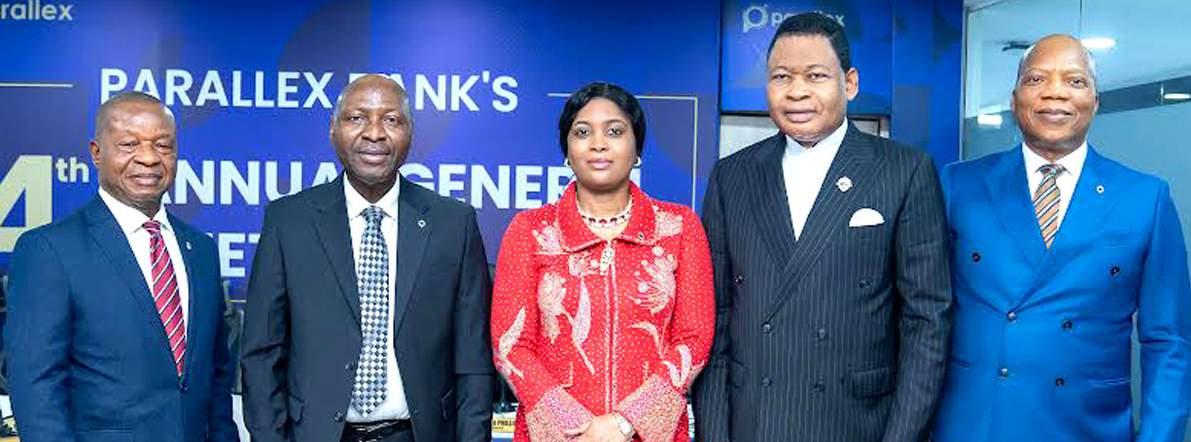
FOUR HEARTY CHEERS…
L-R: Company Secretary, Parallex Bank Limited, Dr. Chris
Obi Tackles Adamawa LG Chairmen for Sponsoring
Wives to Turkey, Says It’s Mockery of Governance
Sunday Ehigiator
The presidential candidate of the Labour Party (LP) in the 2023 elections, Mr. Peter Obi, has criticised the chairmen of local government areas (LGAs) in Adamawa State for sponsoring their wives to Turkey for a leadership training programme.
The wives of the chairmen of the 21LGAs in Adamawa State, accompanied by senior officials from the state Ministry of Local Government, reportedly travelled to Istanbul last week for the programme.
The Chairman of Toungo LGA, Suleiman Toungo, and the head of the Association of Local Governments of Nigeria (ALGON) in the state, said the training was designed to equip their spouses with leadership skills.
He added that since the chairmen had undergone training themselves, their wives also needed similar exposure to
help them “offer useful advice on governance”.
Reacting in a post on X yesterday, Obi described the trip as a wasteful use of scarce public resources.
He said the estimated N600 million spent on the foreign trip could have been channelled into improving basic education, funding classrooms, or supporting women-led businesses in the state.
“I have just read the disturbing report that the wives of 21 local government chairmen in Adamawa State were sponsored with public funds to travel to Turkey under the guise of leadership training,” the post read.
“Today, while our children at the basic education level — whose education is the responsibility of local governments—are out of school, and those in school lack classrooms and teachers, while LGA pensioners are likely owed, and teachers continue to struggle under economic hardship, it is disheartening that scarce resources
are channelled into frivolities such as foreign trips for the wives of local government chairmen who hold no public office, at an estimated cost of about N600 million in public funds.”
Obi commended Governor Ahmadu Fintiri of Adamawa State for his efforts in infrastructure development in
Yola, but stressed that the state still requires urgent investment in education, healthcare, and poverty reduction.
“While I sincerely commend Governor Fintiri and his team for their efforts, especially in the area of infrastructure in Yola, Adamawa remains one of the states in urgent need of
investment in critical sectors such as education, healthcare, and poverty alleviation,” he said.
“Such money, if directed at women micro-credit at an average of N100,000 each for women-led micro businesses, would uplift 6,000 women—about 300 women in each LGA—which would be far more impactful than this wasteful spending.
“Basic education in particular cannot afford to lose such a huge amount, as the over half-a-billion naira in question could have funded about 30 blocks of six classrooms at an average cost of N20 million each, directly impacting the lives of countless children and communities.
Nigeria Strengthens Leadership Role in Global Aviation, Re-elected into ICAO Council
Nigeria has again been re-elected into Part 2 of the Council of the International Civil Aviation Organisation (ICAO) in Montreal, Canada.
The country secured a resounding 163 votes out of 185, thus confirming its influence and leadership in international aviation.
The announcement of the re-election was made by the Minister of Aviation and Aerospace Development, Festus Keyamo, who led Nigeria’s delegation to the 41st ICAO Assembly.
“Dear compatriots, glad to announce that in the last 15 minutes, Nigeria has just been re-elected into Part 2 of the Council of the International Civil
Aviation Organisation (ICAO) in Montreal, Canada, along with eleven other countries (two others from Africa- Egypt and South Africa). Nigeria’s representative to ICAO, Mahmoud Ben-Tukur, will take Nigeria’s seat in the Council.
“As leader of Nigeria’s delegation, I was privileged to participate in the voting sessions of Parts 1 and 2 on behalf of
Nigeria. A total of 185 countries were eligible to vote. Nigeria scored 163 votes,” an elated Keyamo said shortly after the re-election.
He described the victory as not just a diplomatic achievement but also a triumph of years of effort, negotiation, and determination to strengthen Nigeria’s voice in global aviation policymaking.
DANGOTE REFINERY FAULTS PENGASSAN'S DIRECTIVE TO MEMBERS TO HALT CRUDE LOADINGS TO THE PLANT
as the governments of Nigeria. It should ordinarily have special protection and status and indeed qualifies as a strategic national asset," the company said.
It added that an irreparable injury to the Dangote Refinery constitutes a national embarrassment to the country and a disincentive to external investors who ordinarily would have been encouraged by the success of the refinery to contemplate investing in Nigeria’s oil and gas sector or generally.
"PENGASSAN may also not be aware that Dangote Refinery is one of the largest contributors to the revenue purse of the Nigerian governments, both federal and sub-national. That contribution is currently threatened by PENGASSAN and would of course be paused if and as soon as and for as long as the PENGASSAN directive is implemented by its branches," it noted.
The statement also noted that PENGASSAN had no legal
authority to interfere in supply contracts between the refinery and its vendors, insisting that the action undermined the rule of law.
“Absolutely no law gives PENGASSAN the right to direct its branches to ‘cut off’ gas and crude oil supplies to Dangote Refinery or at all. No law in our statute books would support or enable the PENGASSAN branches to ‘cut off’ gas and crude oil supplies to Dangote Refinery or at all. Besides, it constitutes criminal conduct for PENGASSAN or its members to disrupt and/or interfere in the contract between Dangote Refinery and its various vendors for the supply of gas and crude oil to the Refinery. Those supply contracts were not entered into with PENGASSAN; they were entered into by Dangote Refinery with third-party vendors and suppliers, and PENGASSAN has no right whatsoever to disrupt and/or interfere with the performance of those contracts,”
the company explained.
While calling on the federal government and security agencies to act swiftly, the refinery urged Nigerians to take note of the “unquantifiable and irredeemable hardship which PENGASSAN wishes to inflict on all of us” if not checked.
It urged PENGASSAN to submit to an amicable and legal resolution and not resort to economic sabotage and mob action that could introduce mayhem and chaos.
PENGASSAN
Orders Members to Halt Crude Loadings to Dangote Refinery
PENGASSAN had earlier directed its members to immediately cease gas and crude oil supplies to Dangote Petroleum Refinery, in a reaction to the alleged sack of workers by the refinery last Thursday.
The refinery had explained that the sack was part of an ongoing reorganisation to protect
the facility from repeated acts of sabotage that had raised safety concerns and hampered operations.
The union ordered its members to close off valves and suspend all crude loading operations to the facility.
“We bring you fraternal greetings from the National Secretariat. As you are aware, the management of Dangote Petroleum Refinery has disengaged our members in reaction to the exercise of their constitutional right to be unionised.
“They have gone further on a mission of misinformation and propaganda to justify this illegitimacy rather than engaging meaningfully with us to right the wrong. Consequent to these, you are hereby directed to cut off the gas supply to NGIC effective immediately.
“All crude oil supply valves to the refinery should be shut. The loading operation for vessels headed there should be halted
immediately.
“NGIC Chairman, ensure that gas supply to the Refinery is cut off effective immediately.
“All chairmen on this summons are to report promptly the progress of the directive,” the statement explained.
Dangote Refinery
Resumes Sale of Petrol in Naira
In a related development, Dangote Refinery has announced the resumption of petrol sales in Naira.
Citing the depletion of its crude-for-Naira allocations, the refinery had earlier suspended petrol sales in Naira.
In a notice to customers sent over the weekend, the refinery announced that the suspension would take effect from Sunday, September 28, 2025.
It blamed the development on the depletion of its crude-for-naira allocation.
The refinery urged customers with pending naira-based
transactions to seek refunds. However, in a fresh statement, the refinery yesterday announced the resumption of petrol sales in Naira.
“Following the intervention of the Naira for Crude Transaction Committee Chairman, we are pleased to inform you of the resumption of PMS Sales in Naira commencing immediately.
“You may kindly proceed to place your orders in Naira for both self-collection and free delivery of PMS to the earlier advised locations across the country,” it said.
The company explained that the temporary suspension of Naira-denominated petrol sales, announced on Friday and initially scheduled to take effect from Sunday, 28 September, has been lifted.
It urged customers to disregard the earlier suspension notice, assuring that sales would continue without interruption to guarantee an affordable petrol supply for Nigerians.
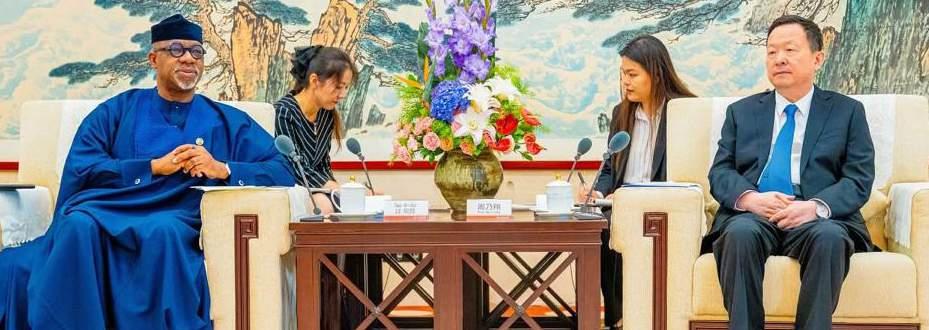
INVESTMENT TRIP…
Atiku, Patience Jonathan, Mark, Otti, El-Rufai, Others Grace Amaechi’s Son’s Church Wedding
Kasim Sumaina in Abuja
Former Vice President Atiku Abubakar; Governor of Abia State, Dr. Alex Otti; former governor of Kaduna State, Mallam Nasir El-Rufai, and the National Chairman of African Democratic Congress (ADC), Senator David Mark, were among top dignitaries who graced the church wedding of the first son of the immediatepast Minister of Transportation, Hon. Rotimi Amaechi, in Abuja yesterday.
Also, former First Lady, Mrs. Patience Jonathan; the wife of the former vice president, Mrs. Dolapo Osinbajo; former governor of Plateau State, Senator Simon Lalong, amongst other dignitaries, attended the wedding.
While joining the groom, Dr. Chikamkpa Amaechi and his wife, Anita Nwabueze, the officiating priest, Revered Fr. Steve Dedua urged the new couple to be patient with each other and make God the pillar of their marriage.
The priest noted that Chikamkpa and Anita are before God as a demonstration of their faithfulness, as such, God will continue to uphold their union.
According to him, “From the beginning, God made them male and female. In other words, in making them male and female, God decided that they should come and become one. What God has joined together, let no man or woman put asunder.”
He, however, lamented that what is very troubling is the statistics that were given by
Jerry Gana: Nigeria's Challenges Will Persist Unless Leadership Quality Improves at all Levels
John Shiklam in Kaduna
Former Minister of Information, Prof. Jerry Gana, has said that Nigeria’s challenges will persist unless leadership quality improves at all levels.
Gana spoke with journalists yesterday shortly after the 2025 Reunion of the Northern States Christian Elders’ Forum (NOSCEF) in Kaduna.
The event, themed “Leading from the Front: The Role of Christian Elders,” was organised by the Kaduna State Chapter of NOSCEF.
He said Nigeria can overcome its challenges if men and women of character, integrity, and competence emerge to lead the nation.
The former minister called for deliberate efforts to raise and support quality leadership ahead of the 2027 general election.
Gana, who chaired the event, warned that unless Nigerians insisted on credible leadership, the country would remain stuck in “maladministration".
He insisted that Nigeria’s future depends on electing
men and women of character, competence, and integrity.
According to him, "leaders don’t just emerge; they are deliberately raised.
"Those of us who are elders in the churches and other areas of responsibility must take time to look at people who are endowed with the qualities and characteristics of being good leaders.
"We must train them and prepare them to give good leadership."
He noted that deliberate mentorship is key to raising quality leaders who could provide purposeful direction for the country at all levels of government.
He said, "Nowhere in the world do leaders emerge by accident. They are trained deliberately.
"That is why I want to appeal to churches, elders, and political leaders to pay serious attention to raising high-quality leaders.
"Nothing happens without leadership. If we want Nigeria to move forward, we must be intentional about this," he added.
archive dot data, fight.com, in 2023, showing that 26 nations have the highest rate of divorce.
Rev. Dedua stated further that the study showed that out of the 26 nations with high divorce, Nigeria is rated as the 11th nation of high marriage divorced people around the world.
“So, Anita and Chikamkpa
are here to tell the world today that they are not going to be part of those statistics,” the priest stated while urging them to depend on God at all times.
While speaking at the wedding reception, Abia State governor, Otti educated the new couple on conflict resolution, charging them to learn how to talk to one another when
there are crises.
Father of the groom and former Minister of Transportation, Hon. Rotimi Amaechi said he is extremely happy and congratulated the couple.
"My prayer to them is that they will be happy. They will find happiness. And they will find God's love. And they will
have many children," he said. Also, the mother of the groom, Judith Amaechi expressed excitement and said the most important thing. Their happiness is the most important thing. So, I wish them well," she said.
Recall that Chikamkpa and Anita got married traditionally in Abuja last weekend.
Saraki Lauds Kwara PDP for Fair, Inclusive Congress, Says Party Remains Credible Alternative for Nigerians
Hammed Shittu in Ilorin
Former Senate President, Dr. Bukola Saraki, yesterday lauded the Kwara State chapter of the Peoples Democratic Party (PDP) for its fairness and inclusiveness during the party’s state congress.
Speaking in Ilorin, the state capital, on the peaceful conduct of the state congress, Saraki said its outcome underscored the party's capacity to provide a credible alternative to the ruling All Progressives Congress (APC) in the state and Nigeria as a whole.
He said: “The PDP has once again shown that it is the party that provides a level playing field and prioritises the will of
the people.”
Saraki stated, “In PDP, the INEC officials can see that we are very mature and peaceful. I am very sure that in other parties’ congresses, you will need security because they are not coordinated and may end up throwing chairs, as they usually do.
"The maturity displayed in Kwara State congresses is a reflection of the national character of our great party,” Saraki added.
He further applauded the peaceful conduct of the party’s congresses from the ward level, through the local government, culminating in the state congress.
The former Senate president
noted that the exercise was a testament to PDP’s internal democracy and readiness to return good governance to the people.
Beyond party politics, the former governor of Kwara State also used the occasion to decry the spate of insecurity across the state.
According to him, "over 70 people had been killed, 52 others injured, and 40 kidnapped in the last six months, a development he blamed on the alleged incompetence of the present administration".
Saraki said, “We will not keep quiet because the present government in Kwara State has failed to provide security for
our people because of their incompetence.
“We will continue to speak out because security is everyone’s business. We cannot just look on and allow the present leadership in Kwara State to ruin the state due to their ineptitude.
"Opposition is not your problem; face what you’re elected to do and secure the lives and property of Kwarans,” Saraki said.
Kwara State has, in recent months, recorded a surge in attacks by armed groups, particularly in parts of Kwara North, where communities have been raided and travellers abducted.
Uzodimma Resolves Impasse With NJC, Appoints Acting CJ for Imo
Tony Icheku in Owerri
Imo State Governor, Senator Hope Uzodimma, has appointed and sworn in Justice Ijeoma Aguguan as the state's acting Chief Judge following the resolution of the impasse between the state government and the National Judicial Council (NJC).
Uzodimma also swore in a new Attorney General and Commissioner for Justice, Mr. Paul Obinatu.
The governor, while speaking at the event, which took place at the Sam Mbakwe Executive Chambers, Government House, Owerri, said: "By the recommendation and ratification from the NJC, I performed the swearing-in of Hon. Justice Ijeoma Agugua as the Acting
Chief Judge of Imo State, and Mr. Paul Obinatu as the Attorney General and Commissioner for Justice. Their appointments mark a new chapter in our collective journey to entrench accountability, competence, and judicial independence.”
He described the recent controversy between the state government and NJC as both unfortunate and instructive, adding that "having navigated that turbulent phase with the maturity and diligence required, we have taken decisive and lawful steps to restore the dignity of our judiciary and reinforce sacred principles of justice and due process. Their appointments mark a new chapter in our collective journey to entrench accountability, competence, and
judicial independence.”
The NJC had, in June 2025, sacked Justice Theophilus Nzeukwu as the acting Chief Judge of the state, as he was number 4 in the hierarchy of judges in the state. During the same period, the NJC also dismissed nine other judges for age falsification.
Another member of the State Executive Council sworn in was Prof. Chinonye Love Moses, who will oversee the newly created Ministry of Entrepreneurship, Skill Acquisition and Social Responsibility.
Uzodimma urged government appointees and elected office holders to respect, commit, and be guided by the solemn oath to work in the greatest interest of the State and the nation, explaining
that election or appointment into public offices is strictly to serve the interest of the people and not for personal gain.
"You are elected or appointed to serve, and the only way to do this and come out with result is to remain focused, respect the oath of office, and always ask yourself; does my action align with the interest of the people?, he said recalling that the challenges faced at the outset of his administration in 2020 were surmounted based on his commitment to the oath he took, to the fear of God, and heeding to his conscience to do things right, "and the determination to get Imo State right. "Imo State, we met in 2020, even the blind in the State can attest that it is not the same today," he noted.

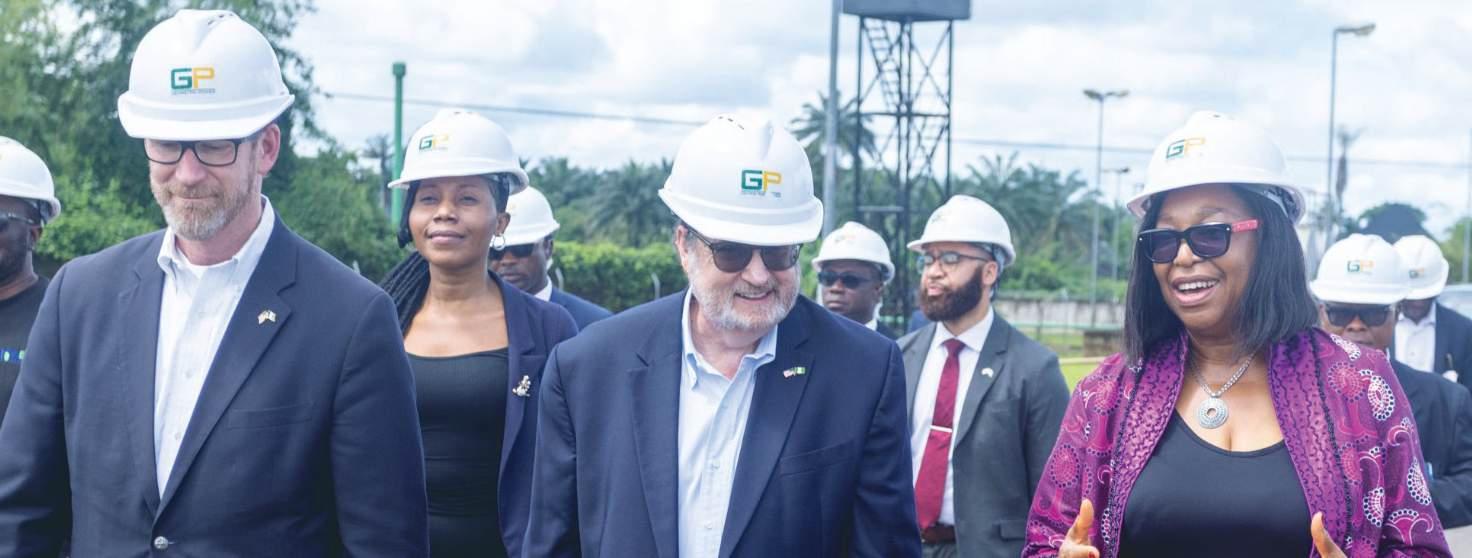
FACILITY TOUR…
Residents Flee Kogi Community after Persistent Attacks By Bandits
Following persistent attacks by bandits, the residents of the Okunran community in Yagba West Local Government Area (LGA) of Kogi State have deserted the area for safety.
In a viral video on social media yesterday, the people of the community were seen
complaining that they had left the town for their safety.
They lamented that no agency of the federal or state government has come to their rescue.
When contacted, sources from the nearby community, Egbe, confirmed that in view of the incessant attacks on the several communities in Yagba
US Ambassador Hails
Geometric Power
Nigeria’s only integrated electric power company, Aba Independent Power Project, developed by Geometric Power, has been lauded by the United States Ambassador to the country, Mr. Richard Mills.
Mills made known his assessment of the company yesterday after he led a team of top American embassy officials on a tour of the firm’s facilities in the Osisioma Industrial layout in Aba, Abia State’s economic nerve centre.
He stated: “This is worldclass, reflecting the kind of innovation and commitment needed to address Nigeria’s energy challenges”.
The facilities, the American delegation inspected include the turbines from General Electric, the world’s biggest and oldest electricity equipment manufacturing firm which is based in the US.
The ambassador and his team also inspected the state-of-the-art digital SCADA facilities used in the distribution and management of electricity in all Geometric Power’s 30 feeders.
They were, in addition, shown the company’s massive steel tubular poles comparable to the poles in San Francisco, California, and Tokyo, Japan, which are earthquake prone.
“Though there are no natural disasters like earthquake recorded in the Aba Ring-fenced Area served by Aba Power which comprises nine of the 17 local government areas in Abia State”, said by Professor Bart Nnaji, the Geometric Power Chairman, told the visitors, “we installed them
to ensure that the Aba people have uninterrupted power in the event of any unexpected disaster”.
Nnaji, a former Minister of Power and globally respected engineering researcher in the US before he returned to Nigeria, explained to the Americans that the tubulars are buried 10 metres inside the ground to withstand extreme elements.
He also revealed that Geometric Power is working with international companies to develop fresh power projects to ensure Nigeria’s energy security.
The ambassador commended Geometric Power for its endto-end business model which makes it the only Nigerian power group that generates power and distributes to a dedicated area.
“Nigerians are globally known for their creativity and talent”, said Mills”, but regretted that “they lack the technical training needed to maximise opportunities at home and abroad.”
West, the people of Okunran community have deserted to a seemingly safe community for now.
It was gathered that banditry attacks have become a daily occurrence because of the proximity of Okoloke and Okunran to the areas ravaged
by bandits in Kwara State. Sources hinted that the residents of the community had organised several fasting and prayer sessions for the safety of the people and the community, but when help was not forthcoming, they decided to desert the town. It would
be recalled that the paramount ruler of Okoloke, Oba James Ogunyanda, was kidnapped for three or four weeks by the suspected bandits. The 90-year-old traditional ruler was later released in June after the payment of a ransom. Recently, no fewer than
five police officers and two members of the community’s vigilance group were killed by suspected bandits in the Egbe community. Several attacks have also been carried out by the bandits on the communities in the neighbouring Kwara State.
Edo Govt to Immortalise Late IG, Arase
Adibe Emenyonu in Benin City
The Edo State Governor, Senator Monday Okpebhole, yesterday disclosed the state government’s decision to immortalise the late former Inspector General of Police, Dr. Solomon Arase, who is an indigene of the state.
The late Arase died on August 31 at an Abuja hospital after a brief illness at the age of 69.
Okpebholo, represented by his Chief of Staff, Gani Audu, stated
this while receiving the body of the late IG at the Benin Airport.
“Arase to us is one of the finest police officers and lawyers we have in Edo State, and losing him at this time that the Nigeria Police Force and the country in general need him is not good for us”.
“As a state government, we will work with the family to see how we can immortalise him.
He was a great son of Edo State.
“It is very painful to the
government and people of Edo State, but we are consoled with the good life he lived”.
Okpebholo, who described Arase as a team player and a man who was always willing to help, added: “It is painful that we lost somebody who always listened to every complaint and try as much as possible to proffer a solution.”
He, however, prayed to God to give the family the fortitude to bear the loss, assuring that the
government would do all that it could to support his family. Late Arase was recruited into the Nigeria Police Force on December 1, 1981.
He rose to become InspectorGeneral of Police in April 2015, during the administration of former President Goodluck Jonathan.
He was appointed Chairman of the Police Service Commission (PSC) in January 2023 by the late President Muhammadu Buhari.
NPA Condemns Attack on Anti-piracy Taskforce in Ogun State
Sunday Ehigiator
The Nigerian Publishers Association (NPA) has condemned the violent attack on an anti-piracy enforcement team of the Nigerian Copyright Commission (NCC) during a raid on pirated books at Sabo Market, Sagamu, Ogun State.
According to the association, the incident occurred on September 25, when a group of individuals mobilised to obstruct the NCC-led operation, preventing officers from
completing their lawful duties and placing both personnel and security operatives at risk.
In a statement signed by its Executive Secretary, Rotimi Iyiola, the NPA described the act as “unacceptable intimidation” and a direct assault on the fight against piracy and the rule of law.
“This resistance is not just an attack on enforcement agencies, but on the entire creative industry whose livelihoods depend on respect for intellectual property,” the association said.
The NPA warned that book piracy continues to rob authors, publishers, and creative professionals of their rightful earnings, undermine the economy, and diminish the quality of educational and cultural resources available to society. It added that any attempt to shield piracy through violence would not be tolerated.
The association expressed solidarity with the NCC, the Nigeria Security and Civil Defence Corps (NSCDC), and other partners involved in
protecting the rights of creators and preserving the integrity of Nigeria’s publishing sector. Calling on law enforcement authorities to investigate and prosecute those behind the attack, the NPA also urged community leaders, market stakeholders, and the public to cooperate with enforcement agencies in stamping out piracy.
The association reaffirmed its commitment to supporting legal enforcement actions and promoting respect for intellectual property in Nigeria.
Oyedele: New Capital Gains Tax Regime to Ease Business Risks, Boost Investor Confidence
The Presidential Committee on Fiscal Policy and Tax Reforms has said the new Capital Gains Tax (CGT) regime on shares is designed to reduce business risks, strengthen investor confidence, and create a fairer tax system.
The Chairman of the committee, Mr. Taiwo Oyedele, disclosed this during a virtual market engagement with the Nigerian Exchange Group (NGX) on capital gains tax. He explained that the reform seeks to lower entry costs for startups, improve cash flow
for businesses, and protect the country’s tax base, while easing compliance for individuals and companies.
“Under the old regime, capital gains on shares were taxed at a flat rate of 10 per cent, with no relief for capital losses and limited exemptions.
“The new regime introduces progressive taxation, where gains are taxed based on the payer’s income band, similar to practices in the US, UK, South Africa, Ghana, and
Brazil,” Oyedele said. He added that capital gains would now be taxed on a net gains-and-losses basis, with reinvestment relief retained.
Exemptions will also apply to small companies and individuals with proceeds of up to N150 million or gains not exceeding N10 million.
Other reliefs include reorganisation exemptions and the continuation of a low withholding tax on dividends.
Oyedele noted that beyond capital gains, the government is considering broader measures to make Nigeria’s tax environment more investment-friendly.
These include reducing Companies Income Tax (CIT) from 30 per cent to 25 per cent, harmonising multiple taxes from over 60 to less than 10, eliminating minimum turnover tax, and raising the threshold for CGT exemptions on shares.
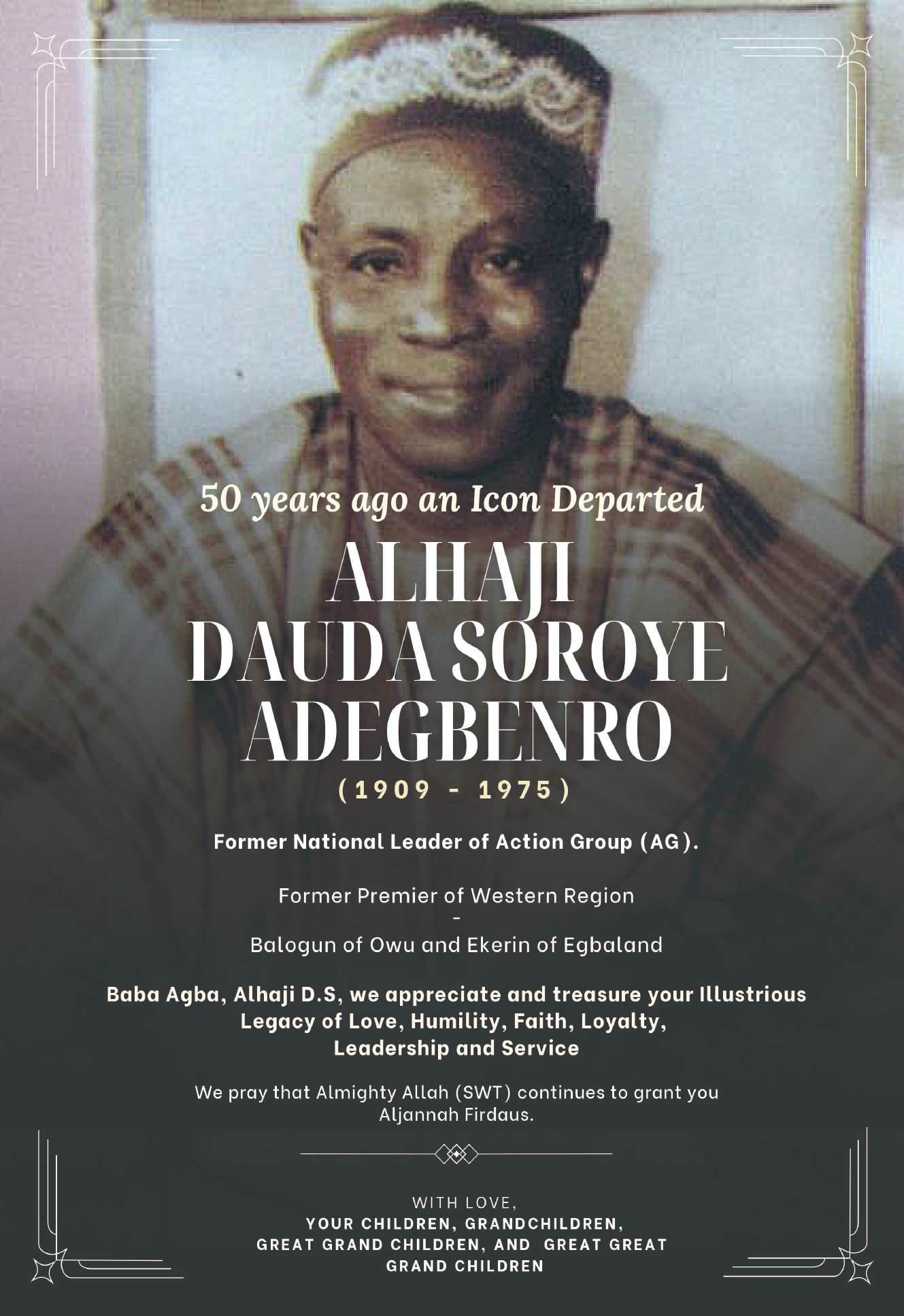
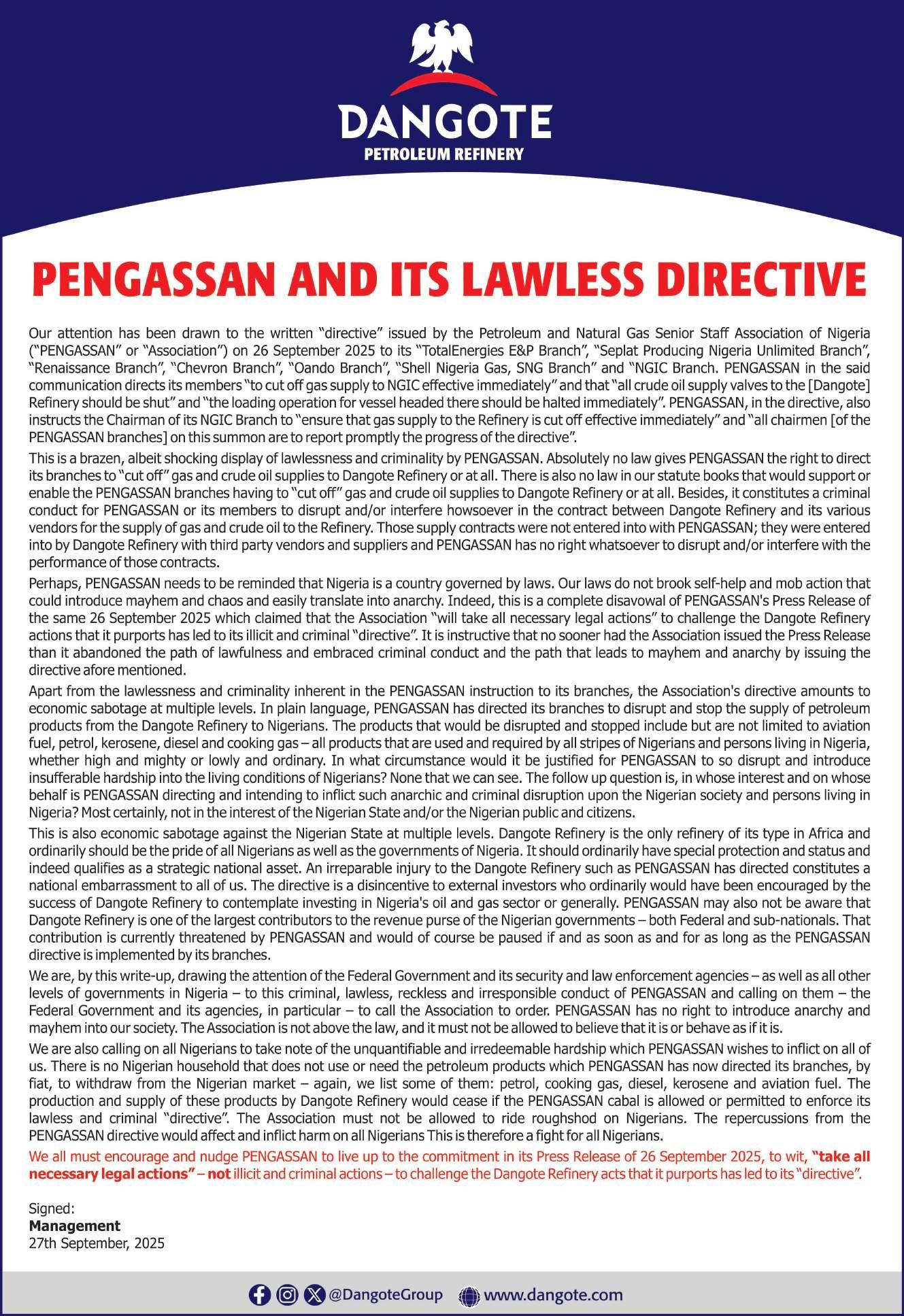
Editor: Festus Akanbi
08038588469
Email:festus.akanbi@thisdaylive.com
CBN’s First Rate Cut Since COVID Tests Fragile Stability
After four years of unrelentless monetary tightening, the Central Bank of Nigeria has finally blinked - cutting its benchmark rate for the first time since COVID-19, in a move that exposes the fragile balance between cheering GDP growth, stubborn inflation, and the suffocating cries of manufacturers gasping for relief, writes Festus Akanbi
the Central bank of Nigeria (CBN) has finally applied the brakes on its four-year monetary tightening streak, trimming its policy rate for the first time since the pandemic. Yet the decision, while offering symbolic relief to borrowers, has re-ignited debates about the fragility of Nigeria’s recovery and the price businesses must continue to pay to keep the economy afloat.
At its September meeting, the Monetary Policy Committee (MPC) cut the Monetary Policy Rate (MPR) by 50 basis points to 27 per cent, down from 27.5 per cent. This was no ordinary tweak. For years, interest rates had only one direction, upward, rising from 11.5 per cent before COVID-19 to 27.5 per cent in August 2025. The rationale then was clear: tame inflation, attract capital, and steady the naira. But the collateral damage was equally clear: credit dried up, investment slowed, and manufacturers suffocated under the weight of borrowing costs that sometimes topped 35 per cent.
Now, with inflation finally easing and growth rebounding, the apex bank is attempting a recalibration. The latest cut, modest as it is, signals an acknowledgement that the pendulum had swung too far. Headline inflation slowed for the fifth straight month in August to 20.12 per cent, its lowest in over two years. Gross Domestic Product (GDP) surged 4.23 per cent in the second quarter, Nigeria’s fastest pace in four years, powered by a 20.46 per cent rebound in oil output and a 7.45 per cent expansion in industry. Agriculture also held up at 2.82 per cent.
For Governor Yemi Cardoso, the policy easing is a deliberate shift to “support economic recovery while preserving macroeconomic stability.” He pointed to the stability of the naira, rising foreign reserves now at $43.05 billion (covering more than eight months of imports), and a widening current account surplus of $5.28 billion in Q2 as reasons to relax the screws.
The new policy mix also adjusted the standing facilities corridor around the MPR to +250/-250 basis points and relaxed the Cash Reserve Ratio (CRR) for commercial banks to 45 per cent, while leaving merchant banks at 16 per cent. Liquidity ratio remains at 30 per cent. On the fiscal side of liquidity, however, the CBN tightened the leash, imposing a 75 per cent CRR on non-TSA public sector deposits, a move Cardoso said was crucial for keeping excess government cash from overheating the system.
A Two-sided Coin
The move has thrown up mixed reactions. For portfolio investors, Nigeria’s appeal lies in high yields. A rate cut chips at that advantage, raising questions about capital inflows. But at 27 per cent, Nigerian assets still offer some of the highest nominal returns among emerging markets. Much depends on whether investors believe the naira’s recent stability is sustainable.
For the real sector, however, the announcement was greeted with a rare sigh of relief. Years of double-digit hikes had pushed credit costs to the sky, forcing many firms to shelve expansion plans. The CBN’s shift hints at a more accommodative environment. But is 27 per cent enough of a relief? Manufacturers say not even close.
The Director of the Centre for the Promotion of Private Enterprise (CPPE), Muda Yusuf, minced no words: “Manufacturers and

other investors need oxygen and stimulus, not policy measures that worsen an already suffocating situation.”
While he welcomed the symbolic rate cut, he argued that the broader financial conditions, with the CRR still at punishing levels and the asymmetric corridor retained at +500/-100, remain too tight to ease the pain of operators.
Growth Puzzle
Nigeria’s latest GDP numbers have given policymakers room to cheer. At 4.23 per cent growth in Q2, the economy is running ahead of the government’s earlier 6 per cent annual target set in 2023, and nudging closer to President Bola Tinubu’s new ambition of seven per cent growth. The oil sector’s rebound, from a paltry 1.87 per cent growth in Q1 to over 20 per cent in Q2, was the single biggest driver. Average daily production rose to 1.68 million barrels per day, up from 1.41 million barrels in the same period last year.
Economists say this marks a turning point. “Nigeria’s GDP growth is accelerating. Inflation is moderating. Reserves are rising. The economy has moved from a risk phase to a recovery phase,” said economist Ayo Teriba on ARISE News.
Yet, the recovery has uneven beneficiaries. For manufacturers, the growth story feels distant. Their margins remain eroded by high financing costs, energy bottlenecks, and infrastructure gaps. Yusuf argues that the MPC’s easing is “misaligned with the mood of economic players,” warning that unless fiscal policy intervenes with targeted infrastructure investment and regulatory reforms, the credit chokehold will persist.
Banking Resilience and Recapitalisation
The MPC also took stock of the banking system, with Cardoso declaring it “resilient.”
Fourteen banks have already met the new capital thresholds under the ongoing recapi-
talisation drive. The removal of waivers and forbearance measures, Cardoso added, would strengthen transparency and risk management across the sector.
Analysts see this as positive, as stronger banks are better positioned to channel credit to the private sector. But for that to happen, lending conditions must soften. Here lies the conundrum: while the policy rate has been cut, the level remains prohibitive. Independent investor Amaechi Egbo put it bluntly: “Borrowing costs may not fall dramatically, but the move provides some relief, especially for SMEs.”
Inflation and the Investor Lens
The biggest risk of monetary easing is inflation. At 20.12 per cent, headline inflation is still more than double the CBN’s single-digit target. However, many argue Nigeria’s inflation is driven more by supplyside factors, forex volatility, high energy costs, and agricultural disruptions, than by excess liquidity alone. In that sense, stimulating production through easier credit could be more effective than squeezing demand.
Foreign investors, meanwhile, are watching for consistency. A 50-basis-point cut will not alone scare them off, but it must be part of a coherent strategy. If the rate cut is backed by continued exchange rate stability and reforms that deepen forex liquidity, it could even improve sentiment. As Egbo noted, “Foreign portfolio investors are looking for both returns and macroeconomic stability.”
Fiscal Dimension
Even the CBN admits monetary policy cannot carry the recovery alone. Yusuf and others insist that fiscal policy must now step up: investing in power, transport, and logistics to bring down production costs, reforming regulatory bottlenecks to attract
investment, and addressing insecurity that has stifled rural productivity. Without these, any monetary easing risks being swallowed by structural rigidities.
The call is urgent. Nigeria’s private sector, especially manufacturers, has borne the brunt of policy tightening it did not cause. “Stifling financial conditions to address liquidity issues is detrimental to investment and growth,” Yusuf said.
Delicate Balancing Act
What emerges from the latest MPC decisions is a delicate balancing act. The CBN has opened a small window for growth by trimming rates, but not wide enough to erode its inflation-fighting credibility or scare off investors. It is a cautious pivot, not a U-turn. For the government, the challenge is to complement this with fiscal measures that cut costs for businesses and crowd in private investment. For manufacturers, the signal is bittersweet: the burden may lighten, but only slightly. And for households, the ultimate test will be whether growth and disinflation translate into jobs, cheaper credit, and stable prices.
Nigeria’s economy is, in many ways, at an inflection point. The numbers look better, faster GDP, slower inflation, stronger reserves, yet the lived experience of producers and consumers remains harsh. The MPC’s latest decision is less about what has been achieved than about what comes next. Will easing continue in measured steps? Will fiscal policy finally play its part? And will growth spill over from the oil rigs and GDP tables into factory floors and family kitchens?
The answers will decide whether this moment marks the beginning of a genuine turnaround, or merely another pause in a long, exhausting struggle for balance.
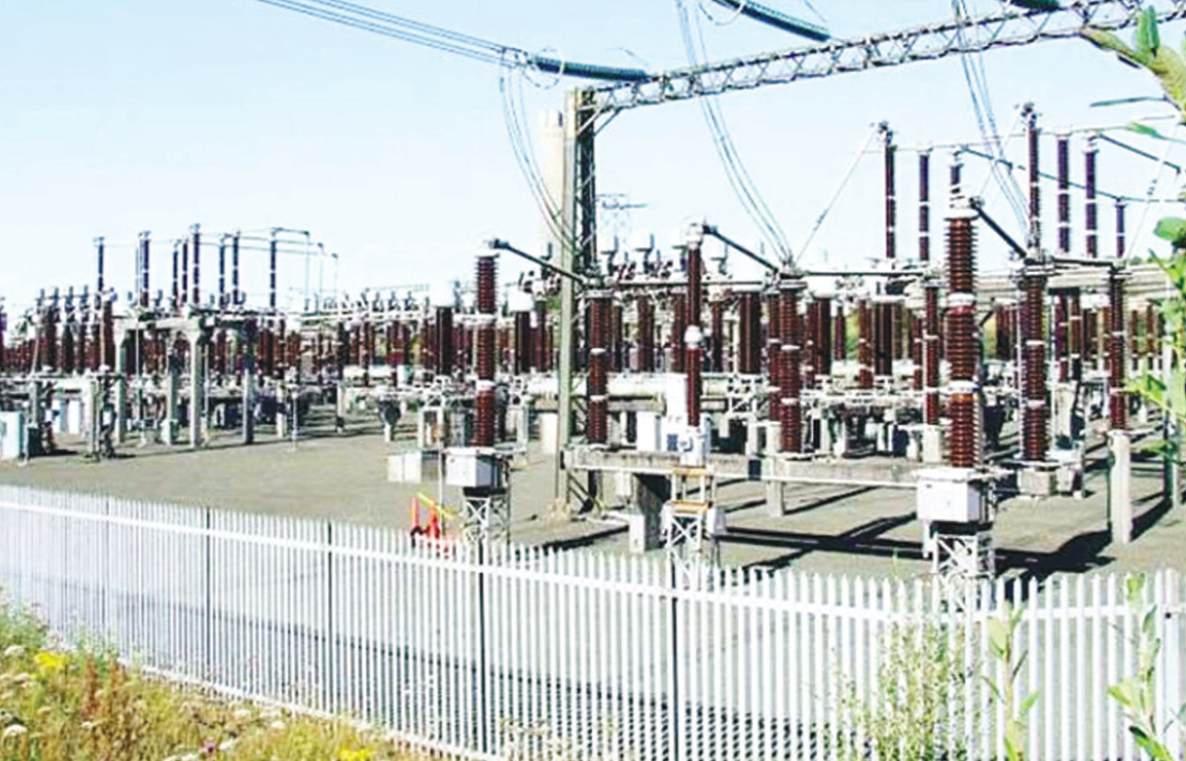
Ossiomo Power and the Politics of Edo
Adibe Emenyonu examines the political intrigues behind the shutdown of Ossiomo Power in Edo State, exploring the causes, consequences, and unfolding aftermath
Ossiomo power, a 95 mW gas-fired plant located in Ologbo, Ikpoba-Okha Local Government Area of Edo State, was conceived as a public-private partnership (PPP/IPP) to address the state’s long-standing electricity deficit. The plant provided power to government buildings, street lighting, private businesses, and select residential areas.
Initially designed with a capacity of 55 MW, the plant expanded to 95 MW after a 40 MW IPP was added to serve the Benin Industrial & Enterprise Park. It was hailed as a gamechanging solution for power autonomy and industrial growth in Edo.
However, from inception, gas supply disruptions had posed persistent challenges, leading to periodic shutdowns and significant losses. But the most critical disruption came not from gas — but from boardroom politics.
The Shutdown and Ownership Tussle
On September 1, 2025, Ossiomo Power shut down following an ownership dispute between its Nigerian management and its Chinese partner, Jiangsu Communication Clean Energy Technology (CCETC). The Chinese partner reportedly attempted to assert control over key parts of the operation, including both generation and distribution, triggering resistance from the Nigerian side.
Most notably, CCETC allegedly shut down the 11 kVA transmission lines, cutting off many customers, including government buildings and Ossiomo-powered infrastructure. The move caused widespread blackouts across Benin City and beyond.
Was the Edo Government Involved?
Sources claim the Edo State Government tacitly approved the disconnection. According to insiders, concerns were raised over rising monthly electricity bills, prompting the state to reconnect government offices and facilities to Benin Electricity Distribution Company (BEDC), a firm previously avoided under the Obaseki administration due to erratic power supply and billing issues.
Governor Monday Okpebholo’s administration swiftly reconnected key government infrastructure, including streetlights, the state secretariat, and government house, to BEDC,
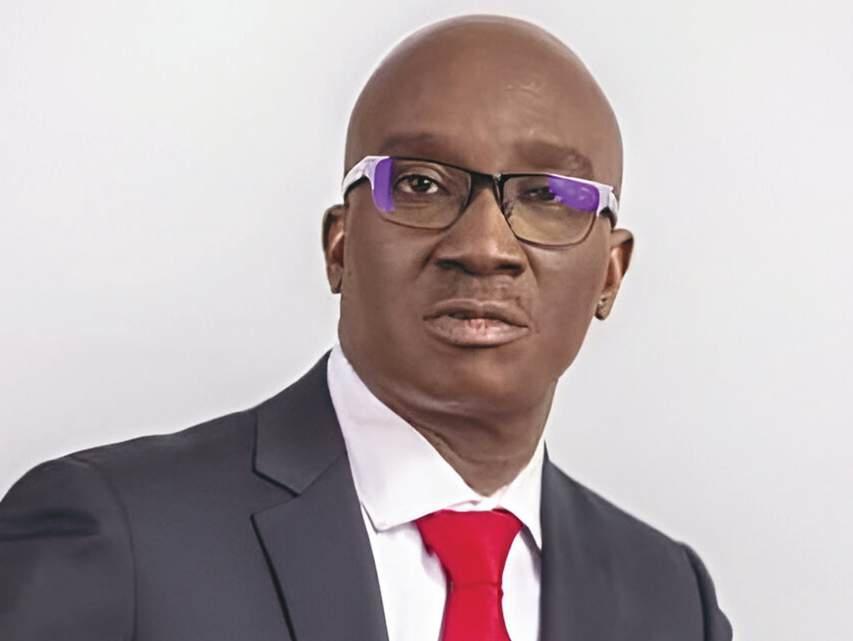
after disconnecting from Ossiomo’s 11 kVA supply lines.
Fallout and Frustration
The shutdown plunged large portions of Benin into darkness. Residents lost perishables, businesses suffered, and public trust in private power solutions waned. Ongoing blackouts sparked fresh debates on the transparency of public-private power agreements, the true ownership of such projects, and the credibility of branding privately-owned infrastructure as “government legacy projects.”
It was also revealed that claims of the Edo State Government holding a 5% equity stake in Ossiomo Power were false. This revelation, coupled with the perceived mishandling of the crisis, has raised concerns about the government’s commitment to fostering a truly enabling environment for private enterprise and industrialisation.
Investor Confidence in Jeopardy
The Ossiomo saga raises red flags for both local and foreign investors. If a project once celebrated as a symbol of energy independence can fall victim to internal strife and political calculations, it calls into question Edo State’s readiness to host strategic investments.
For the past three weeks, both parties, Ossiomo and CCETC, have exchanged accusations over ownership and control. The dispute has escalated to the courts and international arbitration.
Legal Battles Begin
In response to the crisis, Ossiomo Power approached the courts seeking protection.
In an ex parte motion filed by counsel Emmanuel Usoh, Justice Mary Itsueli of the Edo State High Court issued a restraining order against CCETC, barring them from entering Ossiomo Power’s premises pending a hearing.
The suit, marked B/242/2025, was filed by Ossiomo Investment Limited, Ossiomo Power and Infrastructure Company Limited,
Ossiomo Offsites and Utility Limited, and Quadrant Gas Development Company Limited — with CCETC as the sole defendant.
Meanwhile, both parties are also engaged in arbitration at the Singapore International Arbitration Centre (SIAC), seeking resolution over the joint venture that led to the construction of the CCETC-Ossiomo Power Company (COPC) — the special purpose vehicle for the initial Independent Power Plant.
Politics, Power, and Public Trust
While Ossiomo has resumed power supply to some customers through its 33 kVA lines, many others, especially those connected via the 11 kVA, remain in darkness. The Edo State Government has effectively disengaged from Ossiomo, cutting off the 5 MW of electricity it once received.
Amid the legal and political standoff, stakeholders are calling for urgent intervention.
Stakeholders Speak Out
Mr. Eromosele Igbinosa, owner of Kokobi Hotel (with four branches in Benin City), stressed the importance of a transparent and legal resolution to protect investor interests.
“Let the government facilitate the ownership dispute, which he suggested should be resolved legally and transparently should be done to ensure that investors (domestic and foreign) are protected, with the Nigerian partner’s interests respected.
Also canvassed is regulatory clarity as to who holds what rights. Who is responsible for the maintenance of distribution lines, and whose responsibility is it to ensure supply to ensure contracts are clearly spelled out?
Another stakeholder who refused to be mentioned noted the need to protect customers rights by making sure public facilities and private interests are not left stranded during disputes, adding that transparency and communication must be leverage in such a way that the public and government bodies regarding investments ownership are respected regarding Return on Investment (ROI) obligations, as well the need to ensure regular gas supply that have been a recurring issue in the past for regular and stable generation of power.
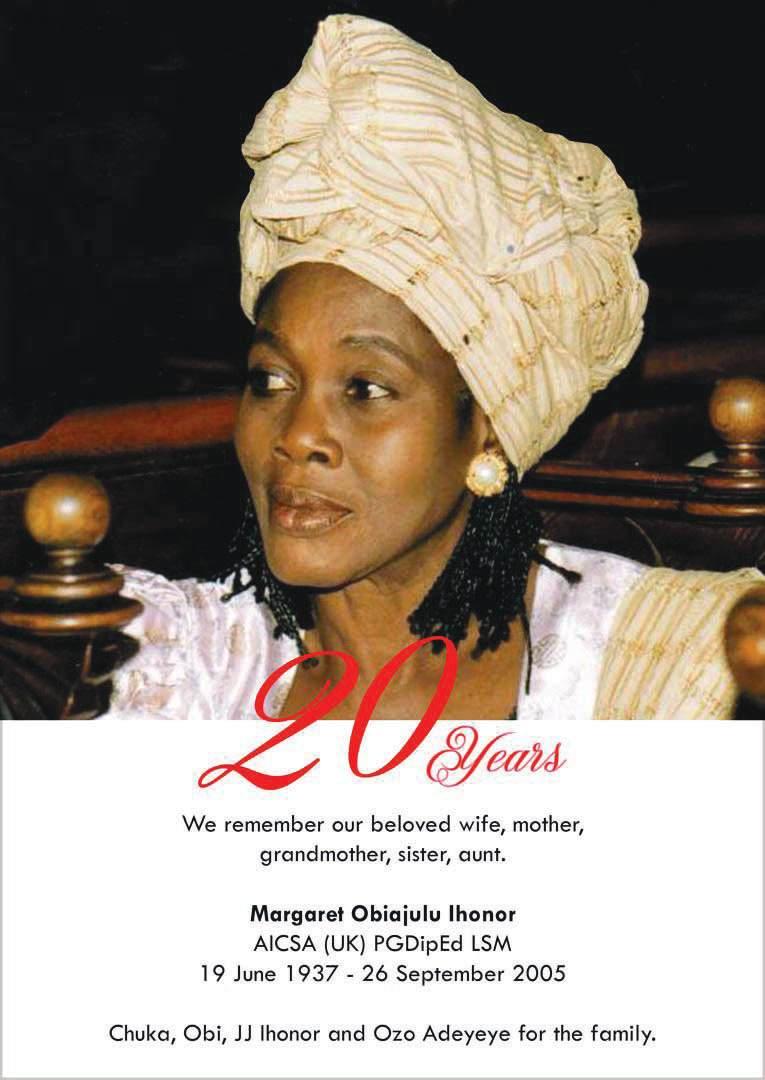

RESHAPING NIGERIA’S WORKFORCE
The Kaduna model is capable of lifting millions out of poverty,contends ABUBARKA
When Vice President Kashim Shettima rose to speak at the 7th meeting of the National Council on Skills (NCS) at the Presidential Villa in Abuja, his words carried more than usual commendation.
He singled out Kaduna State Governor, Senator Uba Sani, for launching Nigeria’s first State Council on Skills, describing it as a groundbreaking innovation that could become a template for the entire nation.
For Shettima, Kaduna’s initiative is not just about training artisans or creating jobs, it aptly represents a visionary step in building a future-ready workforce, a crucial element in delivering on President Bola Ahmed Tinubu’s Renewed Hope Agenda. Governor Uba Sani’s decision to establish and chair the Kaduna State Council on Skills is already attracting national and international attention and accolades.
The Council is designed as a multistakeholder platform that brings together government agencies, the private sector, academia, and development partners to coordinate training and re-skilling initiatives. According to the vice president, this integrated approach is exactly what Nigeria needs to close its skills deficit and prepare its youth for the jobs of the future.
“The era of operating in silos is over. We must embed collaboration into curriculum development and funding. This is about the artisan in Kaura Namoda, the midcareer worker in Ebute-Metta, and the technical colleges that must become true centres of excellence,” the Vice President declared. Kaduna’s leadership in this space is already yielding tangible results.
More than 30,000 students have been admitted into the Kaduna Vocational and Skills Development Institute, where they are being trained in trades and skills that match the demands of the 21stcentury economy. Governor Sani has consistently argued that the greatest asset of any society is its people. His focus on human capital development reflects this conviction. By prioritizing vocational training and skills acquisition, Kaduna is not only addressing unemployment but also redefining education itself.
The goal is to produce not just certificate holders but problem solvers, innovators, and entrepreneurs. Vice President Shettima made this point clear in Abuja, stressing that skills development is central to the administration’s covenant with Nigerians. “The skills revolution is not an option but a necessity,” he said, urging other states to replicate Kaduna’s bold experiment. Kaduna’s model is beyond a policy statement, it is being implemented with urgency.
The following are the urgent steps to achieve the remarkable goal: Kaduna Vocational and Skills Development Institute, established as the flagship, offers specialized training across multiple sectors, from ICT and renewable energy to agriculture, construction, and healthcare. In collaborating with the private sector, the Council ensures industries are at the table when training programs are designed, guaranteeing that graduates acquire relevant, marketable skills. Also, inclusivity is another winning strategy, women and youth from disadvantaged communities are being prioritized, ensuring the skills revolution benefits those who need it most.
Above all, linking skills to job creation is also in the mix. The state government is working with partners to connect trainees directly to industries, thereby turning training into employment and entrepreneurship opportunities. The clear vision and pragmatic steps envisioned to drive the initiative, made the Minister of Education, Dr. Olatunji Alausa, praised Kaduna’s pioneering efforts, linking them to President Tinubu’s broader vision of repositioning technical and vocational education.
He revealed that technical colleges across Nigeria are being restructured to focus on relevant courses and equip
SALAU
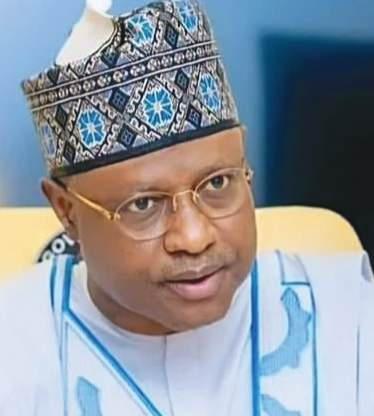
students with employable skills. In his words, Governor Sani’s leadership is “proof that states can serve as laboratories of innovation in education and workforce development.”
Nigeria’s unemployment and underemployment challenges are well documented. The National Bureau of Statistics (NBS) estimates that millions of young people enter the labour market every year, but many lack the skills required to thrive in today’s dynamic economy.Kashim Shettima warned that the country cannot afford to continue with fragmented approaches. “We cannot build a future-ready workforce on a foundation of division,” he cautioned, urging all stakeholders to rally behind a single, coherent framework for skills development. Kaduna, by establishing the first State Skills Council, is showing the way. The success of Kaduna’s initiative can already be measured in the lives it is changing. Amina, 21, from Southern Kaduna, once struggled to find work after secondary school. Through the Institute, she trained in solar panel installation. Today, she is employed by a renewable energy company in Kaduna city and is also mentoring other young women. Ibrahim, 29, a mechanic from Zaria, upgraded his knowledge through autodiagnostic training offered at the Institute. He now runs a thriving workshop servicing modern vehicles and has hired two apprentices. These stories reflect what Shettima described as “the true dividends of democracy, empowering people with the means to live dignified, productive lives.” Uba Sani has repeatedly emphasized that his administration is guided by fairness, equity, and justice. The skills programs are deliberately spread across Kaduna’s senatorial districts, ensuring no community is left behind. This inclusive philosophy resonates strongly in a diverse state like Kaduna, which has often been in the news for security and ethnic tensions. By creating opportunities for all, the governor is using skills as a bridge of peace and prosperity. Kaduna’s boldness is also drawing international partners.
Development agencies have expressed interest in supporting the Skills Council, seeing it as a model for public-private collaboration. Vice President Shettima hinted that Kaduna’s framework could be adopted at the federal level, creating a synergy that aligns local training with national needs.
At the heart of Kaduna’s initiative is a belief that skills are the currency of the future. Degrees may open doors, but skills keep people relevant in a rapidly changing economy.
Governor Sani, by establishing Nigeria’s first State Council on Skills, has not only positioned Kaduna as a national leader but has also ignited a conversation that could reshape Nigeria’s development trajectory.
Shettima’s call to other governors was clear: “Follow Kaduna’s lead.” If states embrace this model, Nigeria could build a workforce capable of competing globally, lifting millions out of poverty, and unlocking the nation’s full potential. For now, Kaduna stands tall as the laboratory of innovation, a state where the future of work is not just being imagined but is already being built.
Mahmood Yakubu winds down after a two-term tenure at INEC, writes ISUMA MARK
DISCONTENTS OF PROGRESS
When Professor Mahmood Yakubu assumed office as Chairman of the Independent National Electoral Commission (INEC)inNovember2015,Nigeria was still basking in the glow of a historic political transition. For the first time since independence, power had changed hands between rival political parties, and Professor Attahiru Jega, Yakubu’s predecessor, was widely celebrated for midwifing that transition. The expectations for his successor were, therefore, immense.
Nearly a decade on, Yakubu has become Nigeria’s longest-serving electoral umpire, outlasting two administrations, overseeing two general elections, and introducing landmark reforms. His innovations, particularly in the use of technology, have redefined voting in Africa’s largest democracy. Yet, as with most reformers in Nigeria’s turbulent political environment, his legacy is deeply contested—part progress, part controversy, and part unfinished business.
Born in Bauchi State in 1962, Yakubu’s academic pedigree was formidable. He studied history and international relations at Usmanu Danfodiyo University, Oxford University, and Cambridge University—where he became the first Nigerian to earn a Commonwealth Scholarship. Before INEC, he had made his mark as Executive Secretary of the Tertiary Education Trust Fund (TETFund).
His appointment in 2015 by President Muhammadu Buhari sparked debates, given that it came on the heels of the opposition’s first national victory. Critics feared he would tilt the electoral body in favour of the ruling All Progressives Congress (APC). But Yakubu sought to allay those fears.
“I owe my allegiance to the Constitution of the Federal Republic of Nigeria, not to any political party,” he declared shortly after assuming office.
This insistence on neutrality became the foundation of his approach to electoral reform. Yakubu’s tenure has been defined by his relentless push for technology. Building on Jega’s introduction of Smart Card Readers, he ushered in a new digital era for Nigeria’s elections.
The Bimodal Voter Accreditation System (BVAS) became his flagship innovation. The device verifies voters’ identities using both fingerprints and facial recognition, drastically reducing incidents of impersonation. By 2021, BVAS was compulsory in all elections.
Alongside BVAS, Yakubu launched the INEC Result Viewing Portal (IReV), allowing citizens to monitor election results uploaded directly from polling units in real time. The move was widely seen as a turning point. “For the first time in Nigeria’s history, citizens could monitor election results live as they were uploaded,” said Samson Itodo, Executive Director of Yiaga Africa. “That’s a massive leap in democratic accountability.”
These innovations were later codified in the Electoral Act 2022, a sweeping reform that empowered INEC to deploy electronic technologies, tightened timelines for primaries, improved dispute resolution, and stiffened penalties for electoral offences. Yakubu himself hailed the legislation as “A new legal framework that empowers INEC to better serve the Nigerian electorate.”
Beyond gadgets and portals, Yakubu embarked on the daunting task of sanitizing Nigeria’s bloated voter register. Ahead of the 2023 elections, INEC conducted a Continuous Voter Registration (CVR) exercise, enrolling over 12 million new voters, many of them young people energized by social movements. Using the Automated Biometric Identification System (ABIS), the Commission also cleaned out more than two million invalid or duplicate entries. By early 2023, Nigeria had 93 million registered voters, with 76 percent collecting their Permanent Voter Cards (PVCs)—a record achievement.
Observers commended the scale of the exercise. “Registering millions of new voters while cleaning up the database is no small feat,” noted Ezenwa Nwagwu, a civil society advocate. “It shows INEC can innovate administratively as well as technologically.”
But the true test of reforms is in execution, and the 2023 general elections provided a sobering reality check. BVAS worked effectively for voter accreditation, limiting instances of multiple voting and underage voting. However, the IReV system buckled under pressure during the presidential poll, failing to upload results as promised.
INEC cited “technical glitches,” but opposition parties and international observers alleged malpractice. The European Union Election Observation Mission
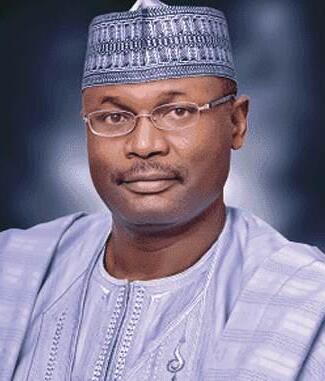
(EU EOM) was blunt in its assessment: “The failure to upload presidential election results in real time reduced transparency and undermined public confidence.”
Yakubu later issued an apology saying, “The Commission regrets the delays and has taken steps to prevent a recurrence.”
But the damage to public trust had been done. For critics, the malfunction symbolized INEC’s inability to match ambition with capacity. Yakubu’s legacy has polarized opinion. Civil society movements, particularly youth-led groups such as #FixElectionsNG, accuse INEC of “overpromising and under-delivering.” To them, the Commission remains too vulnerable to elite capture and political interference.
Yet others defend him as a reformist constrained by Nigeria’s political realities.
“People often underestimate the kind of sabotage INEC faces behind the scenes,” said a senior INEC official. “Professor Yakubu is not perfect, but he’s trying to leave the place better than he met it.” In fairness, Yakubu’s reforms extend beyond technology. He strengthened INEC’s institutional capacity by improving staff training, decentralizing operations, and collaborating with the National Orientation Agency and civil society groups for voter education.
Perhaps most crucially, he institutionalized the Inter-Agency Consultative Committee on Election Security (ICCES), which coordinated security agencies to mitigate electoral violence. This framework was credited with ensuring relatively peaceful off-cycle polls in Anambra, Ekiti, and Osun States.
Now in his second and final five-year term, Yakubu is steering INEC toward the 2027 elections. He has hinted at exploring electronic voting, a radical step that would require constitutional amendments. But the bigger challenge, analysts argue, is rebuilding trust.
“Technology is only a tool,” Yakubu admitted after the 2023 elections. “The real test is in transparency, integrity, and the willingness of political actors to play by the rules.” Observers agree. “You can digitize every stage of voting, but if citizens doubt the honesty of the process, reforms won’t matter,” said Dr. Aisha Abdullahi, a governance expert.
As Nigeria’s longest-serving INEC Chairman, Mahmood Yakubu has undeniably expanded the frontiers of electoral reform—ushering in biometric accreditation, real-time result portals, and cleaner voter registers. Yet his tenure also underscores the fragility of reform in a democracy where political actors often resist change.
Whether history remembers him as the modernizer who digitalized Nigeria’s elections or the chairman who promised more than he could deliver will depend on what happens in 2027. For now, his story embodies the paradox of Nigerian democracy: progress shadowed by persistent distrust.
One fact, however, is clear—Nigeria’s electoral journey in the 21st century cannot be told without Mahmood Yakubu

Editor, Editorial Page PETER ISHAKA
Email peter.ishaka@thisdaylive.com
TACKLING THE MENACE OF FAKE CREDENTIALS
NERD should ensure that those who hold positions in society are fit for purpose
From fake medical personnel whose prescriptions are often fatal for hospital patients to fake teachers whose students are candidates for failure to public officials who got elected or appointed to critical positions not qualified for, it is now difficult to distinguish between genuine and fake professionals in our country. This menace is aided by the absence of a reliable database, corrupt government officials, and dishonest personnel in many of our tertiary institutions. It is therefore heartwarming that the federal government has directed that from 6 October, all Ministries, Departments, Agencies (MDAs), military and paramilitary formations must enforce mandatory verification of all academic credentials of staff members.
While Nigeria is not lacking in professionals in any field of human endeavour, the failure of the regulatory agencies to properly perform their supervisory roles has given way to situations where quacks have taken over many of the critical jobs in both the private and public sectors. Under the new system, no appointment will be confirmed without an instant National Credential Verification Service (NCVS) clearance certifying the authenticity of academic documents. Each clearance will generate a National Credential Number (NCN) and unique security codes linked to verified documents for recordkeeping. To oversight this policy is the Nigeria Education Repository and Databank (NERD), a centralised digital platform created to store, manage, preserve, and verify educational records, publications, and credentials from all tiers of the system.

‘Oluwole’ hub in Lagos. Such is the level of decay in the system that when an ordinary Nigerian walks into a hospital, chances are that the ‘doctor’ on duty may just be a glorified ward attendant.
Last weekend, an undercover journalist in a national newspaper reported securing two appointments with forged certificates obtained from the notorious ‘Oluwole’ hub in Lagos
SUNDAY NEWSPAPER
editor DAviDSoN iRiEkPEN
deputy editors FESTUS AkANBi, EJioFoR ALikE
Managing director ENioLA BELLo
deputy Managing director iSRAEL iwEgBU
chairMan editorial Board oLUSEgUN ADENiYi
editor nation s capital iYoBoSA UwUgiAREN the oMBudsMan kAYoDE koMoLAFE
THISDAY NEWSPAPERS LIMITED
For years, there have been reports that many top decision makers in Nigeria conned their way into critical positions without the qualifications they claim. The greater challenge is that this fraud is pervasive in all sectors and across different strata of our society. There are so many criminals who parade chains of degrees to teach in our universities even without possessing a genuine first degree. Last weekend, an undercover journalist in a national newspaper reported securing two appointments with forged certificates obtained from the notorious
editor-in-chief/chairMan NDUkA oBAigBENA
group executive directors ENioLA BELLo, kAYoDE koMoLAFE iSRAEL iwEgBU
divisional directors SHAkA MoMoDU, PETER iwEgBU ANTHoNY ogEDENgBE
deputy divisional director oJogUN viCToR DANBoYi snr. associate director ERiC oJEH
associate director PATRiCk EiMiUHi
controllers ABiMBoLA TAiwo UCHENNA DiBiAgwU, NDUkA MoSERi director, printing production CHUkS oNwUDiNJo to send eMail: first name.surname@thisdaylive.com
Some years ago, a fake medical doctor was discovered to have served in the Federal Ministry of Health (FMoH) for nine years. To worsen matters, the fake doctor rose to Grade Level 13 in the ministry and had worked in the Departments of Hospital Services and Health Planning Research and Statistics (HPRS) before he was eventually detected as a fraud. According to the Permanent Secretary in the ministry, the quack doctor secured his fraudulent employment by using the stolen documents of his childhood friend and best man who happened to be a medical doctor. With that, he was offered appointment by the commission on 30th August 2006 and was posted to the Federal Ministry of Health in September of the same year. What makes the situation more worrisome is the way fraudsters now con their way into just about any official position with fake credentials. For years, the Federal Institute of Industrial Research, Oshodi (FIIRO) was embroiled in scandal over acting Director-General who did not have the requisite qualification for the office he held. But the challenge of fake certificates is not limited to the civil service; it has spread to many of our critical institutions and agencies.
A serving senator once had his election nullified by the court over a fake certificate. Hundreds of other political leaders make dubious academic claims that are never verified. There is hardly any batch of the National Youth Service Corps (NYSC) members that fake graduates would not be discovered. Three years ago, then Executive Secretary of the National Universities Commission (NUC), Abubakar Adamu Rasheed revealed that about 100 fake professors were uncovered in our institutions of higher learning during a screening exercise.
Since there is hardly any professional field today where these fraudsters have not invaded, we hope that the NERD will put in place a mechanism to ensure that those who hold positions of trust in Nigeria possess the credentials they claim.
Letters in response to specific publications in THiSDAY should be brief(150-200 words) and straight to the point. interested readers may send such letters along with their contact details to opinion@thisdaylive.com. we also welcome comments and opinions on topical local, national and international issues provided they are well-written and should also not be longer than (950- 1000 words). They should be sent to opinion@thisdaylive. com along with the email address and phone numbers of the writer
LETTERS
FAREWELL,OLOROGUN OSCAR IBRU
There are some people who walk through this world and leave it brighter, softer, and more loving simply for having been here. Oscar Ibru was one of those rare and precious souls. To try and capture his essence in words feels impossible, for his greatest impact was felt not in what he did, but in who he was.
He was a man of profound goodness, with a heart that was both fantastic and kind. He carried a light within him—a light of integrity, loyalty, and genuine care. To know him as a brother was to know unwavering support; to know him as a friend was to have a loyal companion for life. He was the
definition of a true friend, the one you could call at will, he will answer you; the one whose presence alone could calm a storm.
Oscar Ibru was kind in a way that was not performative but innate. It was woven into his very being. He had a wry sense of humor that could lift your spirits, paired with a deep empathy that made you feel seen and understood. He was, by every measure, a gentleman—great by birth not merely in lineage, but in character, in action, and in the love he gave so freely.
We find a small measure of comfort in the unwavering belief that he was loved by God. His sudden passing
is not a mark of absence from that love, but a calling home. While our hearts are shattered and the world feels dimmer without his physical presence, we trust that his beautiful soul has returned to a place of eternal peace.
The pain of this loss is deep because the love he gave was deep. He was a gift to all who knew him, and the memories of his laughter, his kindness, and his fantastic heart will be a legacy that lives on in each of us.
We will carry him with us in every act of kindness we show, in every loyal hand we extend to a friend, and in every moment we choose to
lead with love, just as he did. My only regret: Your father, the late Olorogun Michael Ibru— may his soul rest in peace—first introduced me to you for a specific purpose. It is a matter of regret that this purpose did not materialize. I recall vividly our last discussion, where you kindly reminded me of it and expressed your readiness. However, as we must accept, God had other plans and took over the outcome.
Rest in peace, dear Oscar Ibru. You were loved beyond words, and you will be missed beyond measure.
Wale Ajisebutu, Lagos
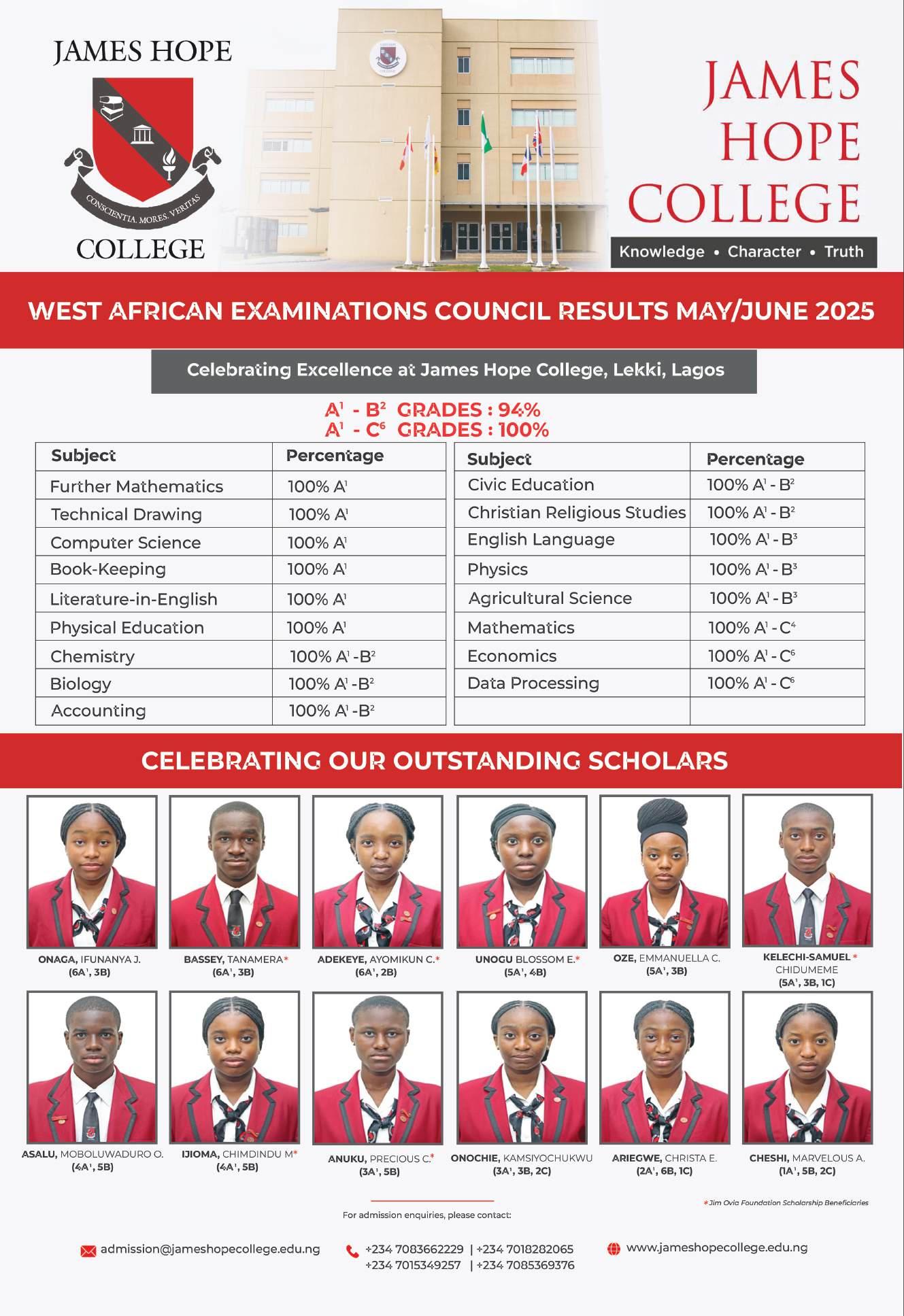
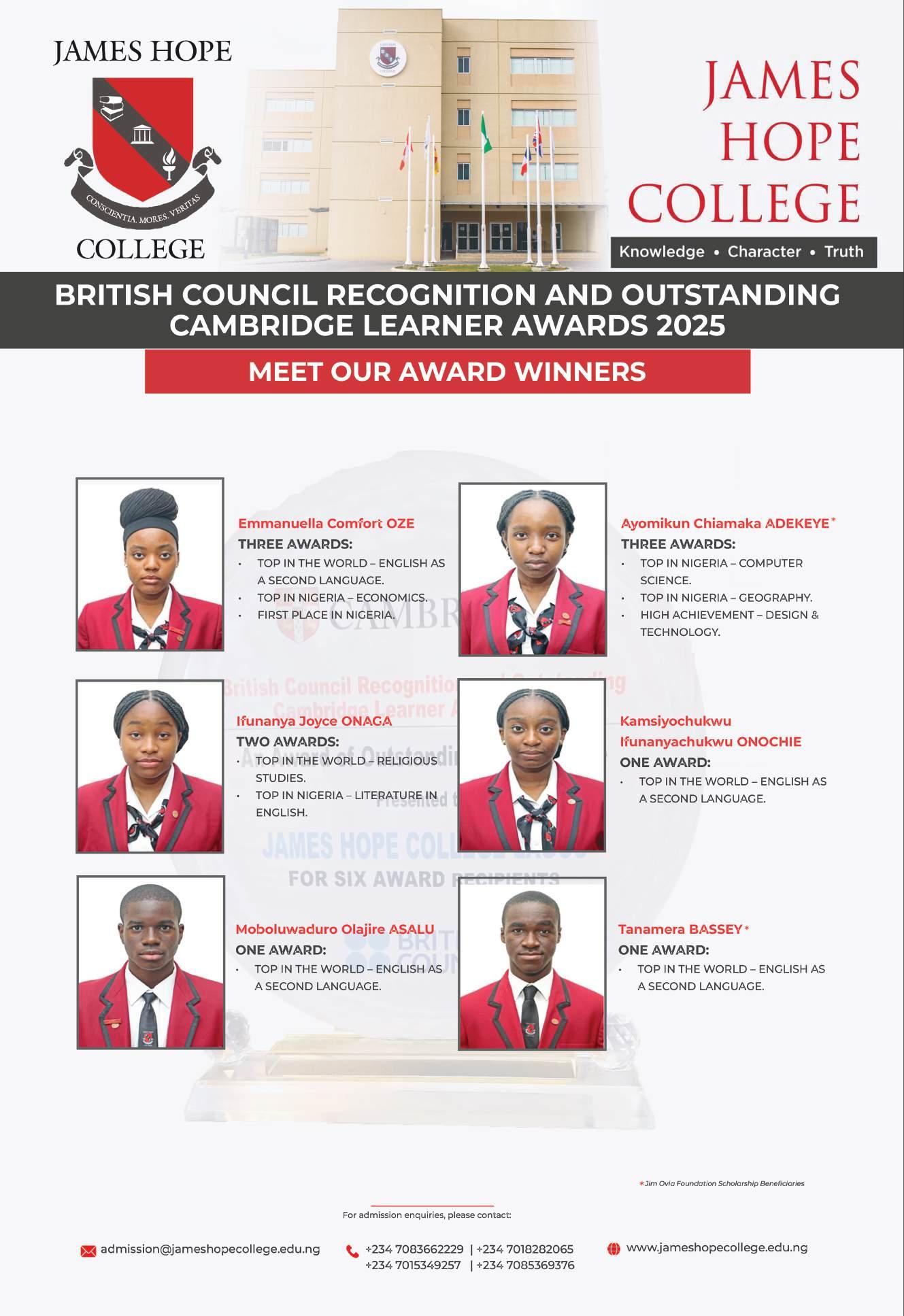
Elsie Godwin and the Power of Conversations
Of all the titles Elsie Godwin holds, none rings as true as that of a conversationalist. For her, conversations are more than small talk; they are tools for learning, building and connecting. The dynamic business leader has turned her restless curiosity and entrepreneurial drive into a career defined by dialogue, innovation, and impact, writes Vanessa Obioha
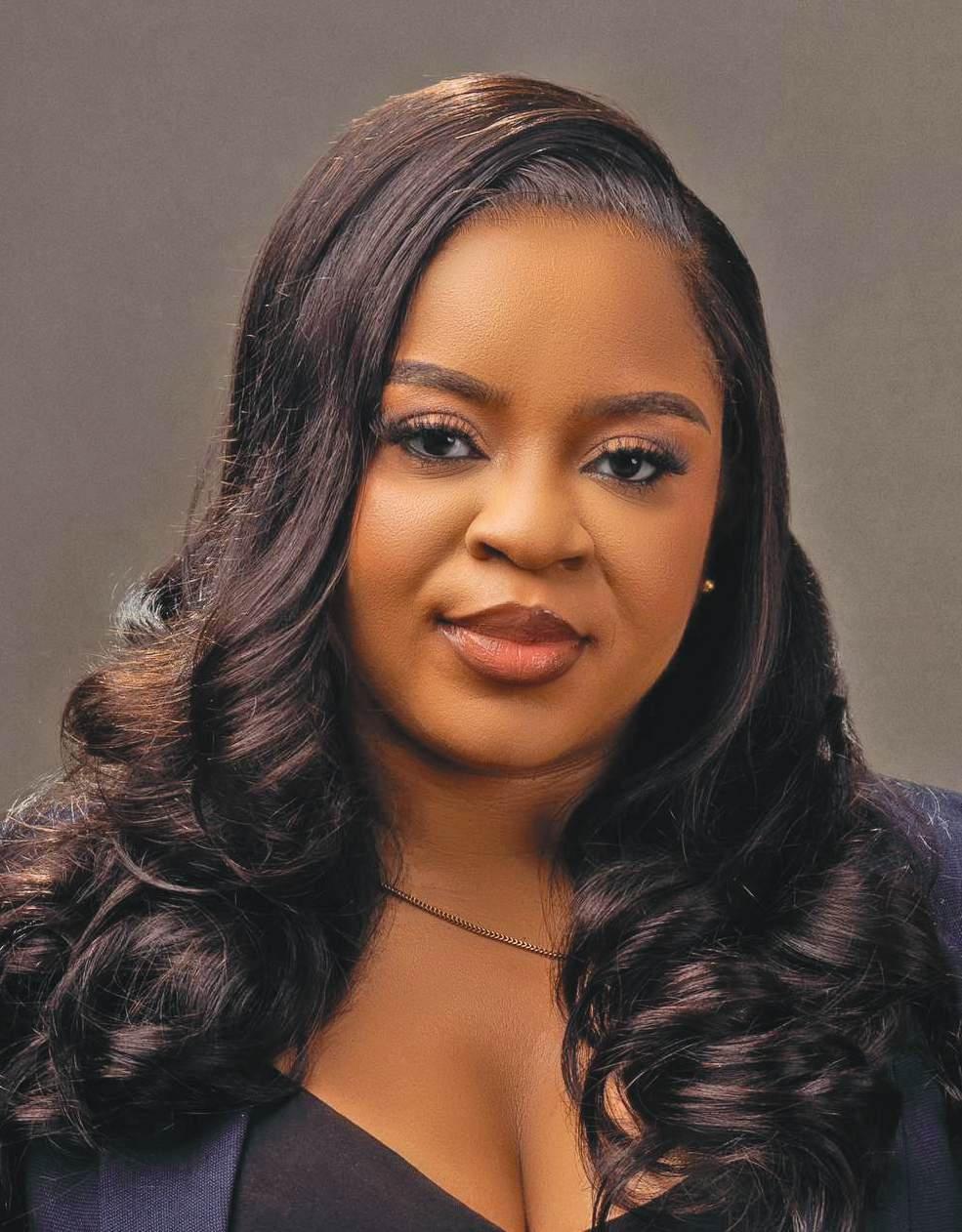
Anyone remotely close to Elsie Godwin – a dynamic business leader, seasoned marketing and communications professional, and respected media personality – knows that she is hard-working. The evidence is everywhere. She sparks conversations at News Central TV and Nigeria Info FM. At Mind-Mastik Media, a marketing agency she founded, she builds brands, manages influencer marketing projects, and creates engaging content.
personal agency. Her motivation, she says, comes in three parts. First, there’s the simple, honest pursuit of money.
“Money is important. I’m not going to pretend about it,” she said. But it’s not just for wealth’s sake, but as a means to live on her own terms.
Then there’s her innate restlessness, a constant urge to solve problems, to make an impact.
“I think I’m a very restless person in terms of how I work. Once I’m fixated on something or a problem, I have to find a way to solve it, and then once I’ve solved it, I’m looking for the next challenge to do.”
Finally, there’s her need for freedom, the ability to walk away from anything that no longer aligns with her values or direction.
“I don’t like to be held ransom to anything or anyone in such a way that if I don’t work for a company or a project then I will not be able to survive in life. I like to hold my time and have safety nets.” This explains why she builds, diversifies, and stays ten steps ahead.
Part of her entrepreneurial zest comes from her upbringing. Raised by a single mother who managed a school and restaurant simultaneously, Elsie drew inspiration from her mother’s ambition.
“Those are like two worlds apart, but people wondered how she coped in those days,” she recalled. “She wakes up in the morning and goes to run a successful school business, I might add. In the evenings, she’s heading over to the restaurant to see what’s going on. Of course, you know restaurants close late, maybe from 9 p.m. to 10 p.m. So I grew up in that kind of space, and maybe that is something that consciously or unconsciously shaped who I am today.”
Her mother’s teaching environment also integrated her into the system. By age 12, she was already helping out in the kindergarten classes and at 15, after secondary school, she landed her first job as a home lesson teacher, teaching twice a week.
help her prioritise tasks.
Despite her introverted nature, Elsie remains insatiably curious. “I tell people that one of the reasons I am who I am today is my curiosity,” she said. “I started as a blogger where I realised the power of social media. The fact that I can really sit in my small room at the time and connect with 1,000 people who have read my blog post. I realised the power at that point, and I also realised it was a responsibility, even before I did any training on media.”
From blogging, Elsie delved into influencer and digital marketing, while steadily learning new skills to fuel her diverse interests. What came most naturally, however, was her ability to hold and engage in meaningful conversations. She proudly calls herself a conversationalist.
“I don’t joke with conversations,” she said seriously. “Conversations have changed my life.”
Elsie has interviewed more than 300 business leaders, and through her blog and influencer marketing, she has established herself as a respected media personality whose conversations spark more conversations. This, in turn, expands her mind.
“When I’m in the midst of people who know more than I do, I’m humble enough to listen and learn from them. This also helps me to ask the right question,” she said, acknowledging veteran media personality Eugenia Abu, who once observed that journalists can step into any role and succeed when they keep an open mind.
As a media personality, Elsie applies this philosophy fully, refusing to be boxed into one kind of conversation. On women-centred issues, she advocates equity and warns against adopting a victim mindset in corporate spaces.
“For me, any human being is capable of any kind of action. Systems are what we need to ensure people behave well. People can be naturally terrible. So it is your systems and your policy, and also how you implement those systems that get people to behave like right-minded individuals.”
Away from the media, she is the cofounder and Chief Operating Officer at the fintech startup, Cashwise Finance, where she is pioneering innovation in the fintech space, focusing on user-centric products that give people access to their money regardless of their location.
“That was really exciting,” she said with nostalgia. “I remember how my mom was so happy for me when I came back to tell her about my job. I think from then it’s always been work.”
Elsie is also the Head of Marketing and Partnerships at Tango Brook Technologies Limited, where she leads strategies to drive innovation and adoption of the Tango Fuel card.
She has shaped go-to-market strategies for brands in both Web2 and Web3 spaces. Among her notable achievements is facilitating the institutional partnership between Pan Atlantic University and Emurgo Africa, a move that advanced blockchain adoption across the continent. In recognition of her impact, CryptoTV Plus named her one of the Top 40 African Women in Blockchain.
But what truly drives Elsie isn’t just the impressive titles or the hustle. It’s a blend of practicality, purpose, and
That drive deepened when she lost her mother. Since then, Elsie hasn’t slowed down. Like her mother, people often ask how she handles it all.
“Oh I get that a lot,” she said confidently. “But it’s a lot of work,” she quickly admitted. What makes it easier, she explained, is her introverted lifestyle: wake up, work, sleep.
“What that means is there aren’t many external factors trying to get my attention.”
Her single status, she playfully added, also gives her more time to pour into work at this phase of her life.
“I also try to use the tools around me to create some sanity in what I do.”
These include digital reminders that
She also urges women to be vocal about their health without fear of ridicule, a lesson she learnt firsthand after undergoing fibroid surgery and sharing her story online. While some responses were encouraging, others questioned whether she should have spoken about it at all.
“Women have the right to choose how they share their personal life, but there is a level of secrecy that comes through, almost like, ‘Don’t talk about it, so you will not be labelled as not being woman enough,’” she said. “And I don’t think that helps anyone.”
“Women need not be ashamed of what their bodies put them through, because none of it is our fault. We did not do it to ourselves. It’s not our fault,” she added.
Uba Sani Echoes Tinubu’s Renewed Hope at UNGA
Nigeria’s presence at the 80th session of the United Nations General Assembly (UNGA) was not only profound; it was transformative. The world’s diplomatic epicentre, convened once again in New York, bore witness to a reawakening of Nigeria’s global vision, articulated with statesmanship and moral clarity by President Bola Ahmed Tinubu and eloquently delivered by his distinguished Vice President, Senator Kashim Shettima. It was a masterclass in international statesmanship. With measured cadence and rhetorical finesse, Vice President Shettima delivered the President’s national statement with a compelling gravitas that demanded attention and respect. His poise, intellectual clarity, and emotional cadence elevated Nigeria’s address beyond the realm of diplomacy; it became a rallying cry for reform, justice, and shared prosperity in a fractured world order.
In that moment, Nigeria stood not just as Africa’s most populous democracy, but as a moral voice calling for overdue transformation in the architecture of global governance. President Tinubu, through the Vice President’s peerless delivery, urged the United Nations to reform itself, to move beyond the historical residue of a post-World War II geopolitical structure and embrace a new, multipolar reality where Africa is not a footnote, but a formidable force. Nigeria, he argued persuasively, is no longer a colonial subject but a sovereign nation of 236 million people, projected to become the third most populous country in the world, a stabilising force in its region, and a consistent peacekeeper in the global community. The President’s demand for a permanent seat on the UN Security Council was not a mere diplomatic request, it was a moral imperative grounded in demographic logic, historical contribution, and the aspirations of a continent too long marginalized.
Yet, beyond the lofty halls of the General Assembly, it was within the dynamic ecosystem of side events and bilateral dialogues that the resonance of Nigeria’s renewed hope found an unexpected but no less powerful echo, through the deliberate and impactful presence of Senator Uba Sani, the Governor of Kaduna State. His participation was not ceremonial. It was strategic. It marked an inflection point in the evolving narrative of Nigeria’s engagement with the world: a moment when sub-national actors, hitherto peripheral in the theatre of international diplomacy, stepped forward as articulate proponents of the country’s reformist agenda.
Senator Uba Sani’s presence in New York symbolised more than Kaduna’s aspirations; it reflected the ideological and developmental synchrony between the Renewed Hope Blueprint of President Tinubu and the pragmatic, results-oriented leadership being institutionalised in sub-national Nigeria. At a high-level side event, under the theme “Global Partnerships, Local Prosperity: Unlocking Nigeria’s Renewed Hope Blueprint for Sustainable Growth,” Governor Uba Sani emerged as a persuasive and polished advocate of both federal reform and statelevel innovation. He articulated, with intellectual rigour and diplomatic finesse, the manner in which national policies, such as subsidy removal, exchange rate unification, and tax reforms, are not only stabilising macroeconomic fundamentals but are creating fertile ground for inclusive, bottom-up development in states like Kaduna.
With precision and nuance, he detailed Kaduna’s efforts to harmonise its development agenda with federal reforms. The State’s Special Agro-Industrial
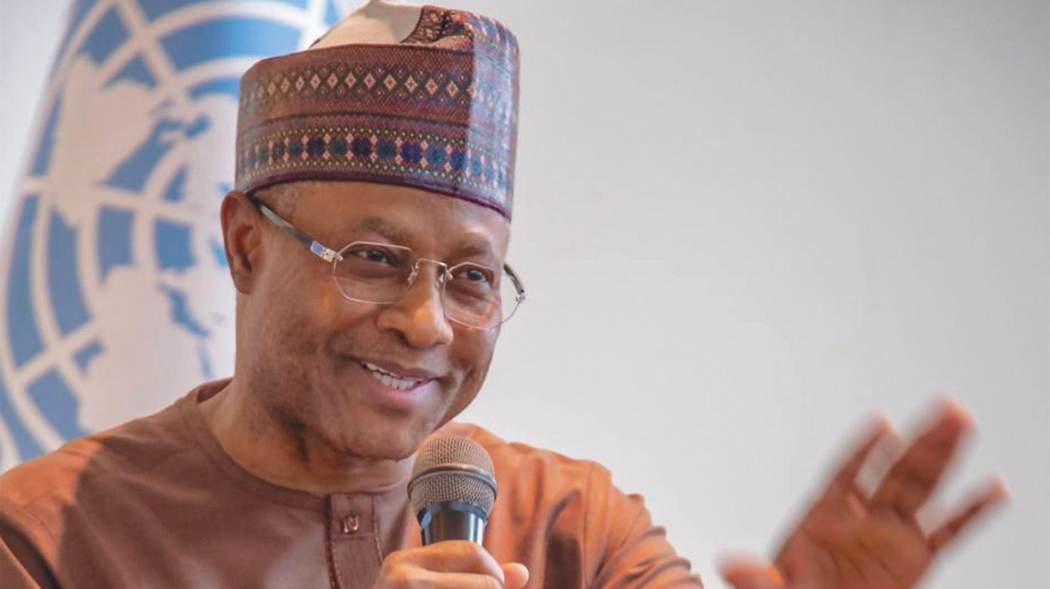
Processing Zone (SAPZ) is revitalising agricultural value chains, generating employment, and lifting rural communities out of poverty. Under Governor Uba Sani’s leadership, Kaduna has become a frontline implementer of the federal Students Loan Scheme, ensuring that access to education is not the preserve of the privileged but a lifeline extended to children from low-income households. His state’s advances in financial inclusion, digital tax infrastructure, and internal revenue expansion reflect a modern, forward-thinking approach to governance, one that is both aligned with national objectives and responsive to local realities.
Perhaps the most compelling dimension of Governor Uba Sani’s engagements at the UNGA was his ability to translate domestic reforms into a language of global partnership. He did not merely inform the world of Nigeria’s transformation; he invited it to participate. This invitation found concrete expression in the landmark bilateral agreement signed between the Kaduna State Government and the Bill & Melinda Gates Foundation. The Kaduna Mutual Accountability Framework (KaMAF), signed on the margins of UNGA, represents a groundbreaking model of sub-national engagement in the international development space. Far from being a perfunctory memorandum, the framework introduces a disciplined, transparent, and citizen-centred platform for strategic dialogue, measurable commitments, and mutual accountability. Covering critical sectors such as primary healthcare, agriculture, data management, budgeting, and women’s economic empowerment, KaMAF elevates Kaduna’s development blueprint to an international template. It reaffirms that development is no longer the exclusive domain of national governments and multilateral agencies. It is now a co-creation space where local innovation meets global expertise.
Governor Sani was unequivocal:
“The KaMAF represents a bold shift from promises to delivery. By ensuring accountability, transparency, and alignment with the priorities of our citizens, Kaduna is working toward building a more inclusive, resilient, and prosperous future.”
The Gates Foundation’s response was equally emphatic. Uche Amaonwu, the Foundation’s Country Director for Nigeria, observed, “We are not just investing in systems; we are investing in people, in communities, and in the institutions that support sustainable change.” With this framework, Kaduna State joins a rarefied league of sub-national govern- ments that have earned the confidence of one of the world’s most influential philanthropic organisations. KaMAF is not just an agreement; it is a validation of Kaduna’s governance ethos and a replicable model for sub-national development in the Global South.
Governor Uba Sani’s schedule at UNGA reflected not only a commitment to dialogue but a deep understanding of strategic visibility. He featured at the Gates Foundation’s “Goalkeepers 2030” event, an elite convening of global leaders focused on ending preventable child deaths by 2030. The theme dovetailed seamlessly with Kaduna’s health sector priorities. In conversations with Bill Gates and Spanish Prime Minister Pedro Sánchez, Governor Sani reinforced the urgency of strengthening primary healthcare and reducing maternal and child mortality. His message was clear: Kaduna is not waiting for development, it is building it, systematically, inclusively, and sustainably.
Governor Sani’s engagements in New York point to a deeper paradigm shift: the ascent of sub-national diplomacy in Nigeria’s foreign engagement. Where states were once silent spectators in the international arena, they are now emerging as active nodes in the architecture of global cooperation. Kaduna, under Uba Sani’s stewardship, exemplifies this evolution. It has become a laboratory of reform, a test case for decentralised development, and a harbinger of Nige- ria’s broader transformation under the Tinubu presidency.
The President’s national reforms - difficult but necessary - are beginning to radiate their impact downward. The economic restructuring underway in Abuja is creating the enabling environment for states like Kaduna to attract investments,
negotiate bilateral partnerships, and articulate development priorities that are both locally grounded and globally relevant. Uba Sani is not simply riding the wave of national reform; he is harnessing it with skill and vision, embedding it in Kaduna’s institutional DNA, and extending its logic to international cor- ridors of influence.
In this, he echoes not only the words but the spirit of President Bola Ahmed Tinubu’s Renewed Hope blueprint, a philosophy of leadership that is unafraid of difficult choices, impatient with mediocrity, and committed to the dignity of every Nigerian. His presence at the UNGA, measured, articulate, and impactful, signals a maturing of Nigerian federalism. No longer is the centre the sole custodian of Nigeria’s global narrative. The states, when led with purpose and clarity, are capable co-authors.
Governor Uba Sani’s participation in the 80th United Nations General Assembly was not merely notable, it was historic. It set a new benchmark for sub-national engagement, proving that the global relevance of Nigeria must be matched by the global readiness of its constituent units. His performance was a declaration that Kaduna is open for business, ready for partnership, and poised to lead not just within Nigeria but across Africa and the broader developing world.
As the echoes of UNGA 80 reverberate through diplomatic, philanthropic, and policy circles, the image of Governor Uba Sani walking the halls of multilateral power, armed with facts, reform logic, and a clear development vision, remains indelible. It was the image of his beloved state,Kaduna, emerging from the shadows of dependency into the light of global agency. It was the image of a leader,Uba Sani, demonstrating that sub-nationals can no longer be footnotes in Nigeria’s story, but must be protagonists of its future.
And ultimately, it was a validation of President Bola Ahmed Tinubu’s Renewed Hope Agenda: that from Abuja to Kaduna, and from Nigeria to the world, the architecture of reform is not only being imagined but being built, blockby-courageous-block.
Mahmood, a journalist, was in New York for the 80th session of the United Nations General Assembly (UNGA)
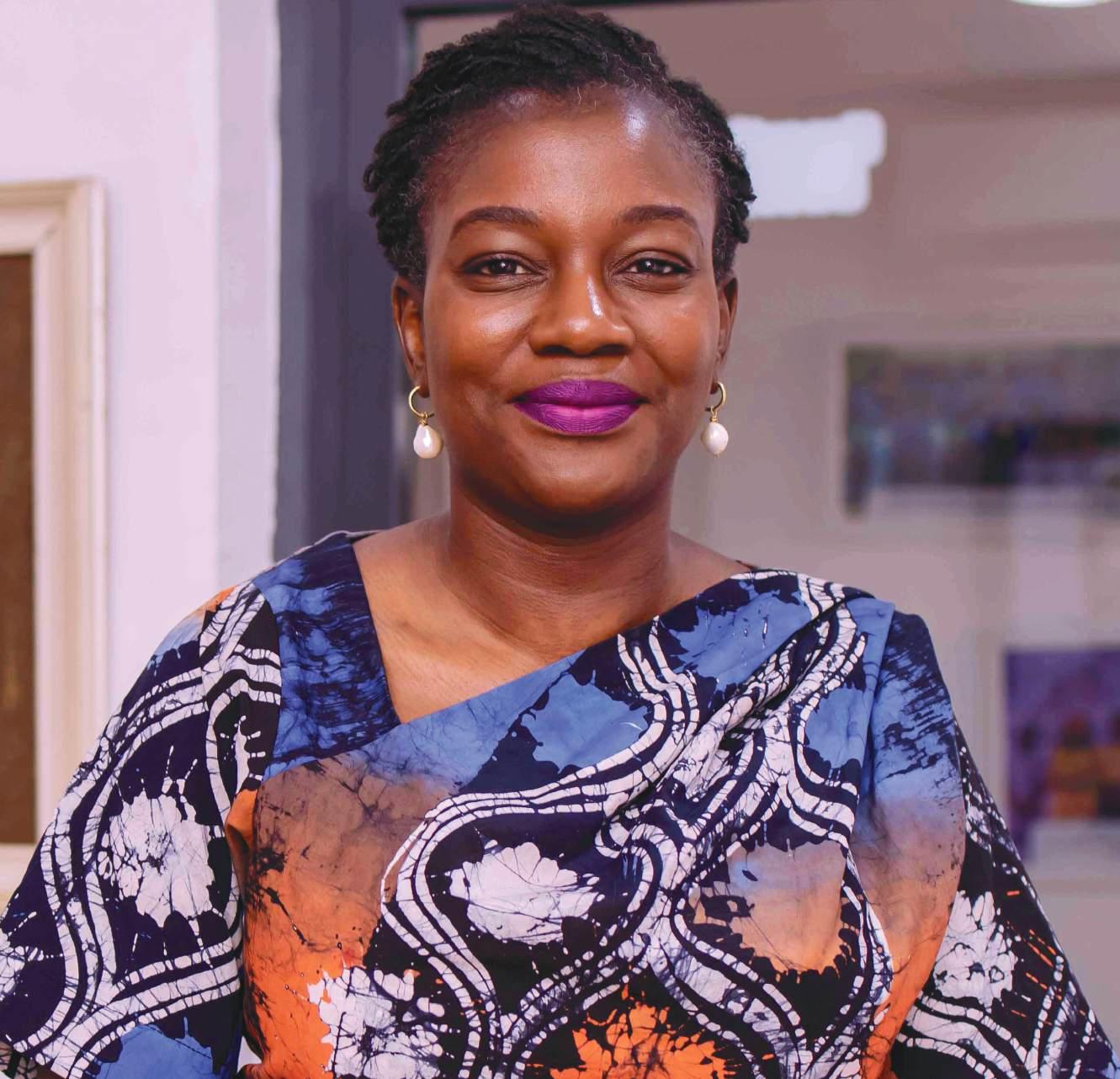
Adenike Adeyemi e quipping Future e ntrepreneurs
For Adenike Adeyemi, entrepreneurship is more of a destiny than a career path. In her 10 years at the helm of Fate Foundation, she has helped transform the organisation into a hub for nurturing Nigerian entrepreneurs, equipping them with the skills, networks, and confidence to thrive. Now, as the foundation marks its 25th anniversary, she reflects on the journey and a bold future, Vanessa Obioha writes
Adenike Adeyemi believes in the Nigerian entrepreneurial spirit a lot. It is one quality that has continually captivated her in her 10-year tenure as the CEO of Fate Foundation, Nigeria’s foremost business incubator and social impact non-profit organisation.
“The entrepreneurial energy and potential of Nigerians, despite the numerous odds against them, continue to startle me in a positive way,” she tells me on a rainy afternoon in her office in Ilupeju. Their ingenuity and resilience consistently inspire her and her team at Fate, not only in supporting entrepreneurs but building an ecosystem that enables sustainable business growth.
Her all-white office bears quiet evidence of this belief. Packaged products from Fate alumni dot the room, alongside a framed drawing of a young girl who could easily pass as the younger version of Adeyemi. She tells me it’s a gift from one of the entrepreneurs, who told her the sketch reminded him of her.
Over the years, Fate Foundation has become synonymous with entrepreneurship. And aptly so. From the day it was conceptualised by Fola Adeola, co-founder of Guaranty Trust Bank, the mission was clear: to create an alternative to unemployment. In the 1990s, as new-generation banks were springing up and white-collar jobs were in high demand, competition was fierce. For a single position as a bank clerk, as many as 20,000 applicants could vie for just two openings. Disturbed by the alarming rate of young employable people and the waste of skills and potential, Adeola founded Fate Foundation to encourage entrepreneurship through training, mentoring, loan support, and consulting. What began as a training school has since evolved into a full-fledged business incubator and research institute.
“Our founding was on the basis that entrepreneurship can be a compelling alternative to employability,” says Adeyemi.
In its early years, much of the foundation’s work focused on inspiring people to consider entrepreneurship as a viable career path. This was at a time when many preferred white-collar jobs.
“Think about the late 90s and early 2000s,” Adeyemi recalls. “If a school were inviting a keynote speaker, it wouldn’t be an entrepreneur. It was more likely a doctor, lawyer, or professor. Entrepreneurship wasn’t a catchy thing.”
According to her, Fate Foundation was the first Nigerian non-profit to present entrepreneurship as both a career option and a skill set that could be taught.
“We helped people see that you could take an idea and think about it in a business suite and be educated about how to run or build a business, how to register a business, how to manage teams, all of the things that are very fundamental to that and weren’t in the Nigerian space.”
As the landscape evolved, so did the foundation while still retaining its vision as a compelling alternative to the employability of young people. What started as a training ground soon expanded into business support services.
“We realised that as people were building and growing businesses, they required business support and consulting. Nobody was providing advisory support
Equipping Future Entrepreneurs
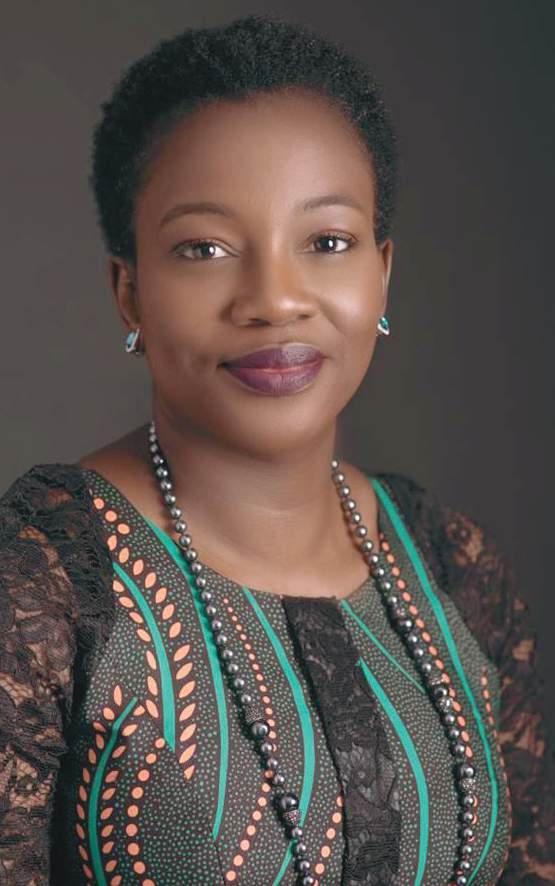
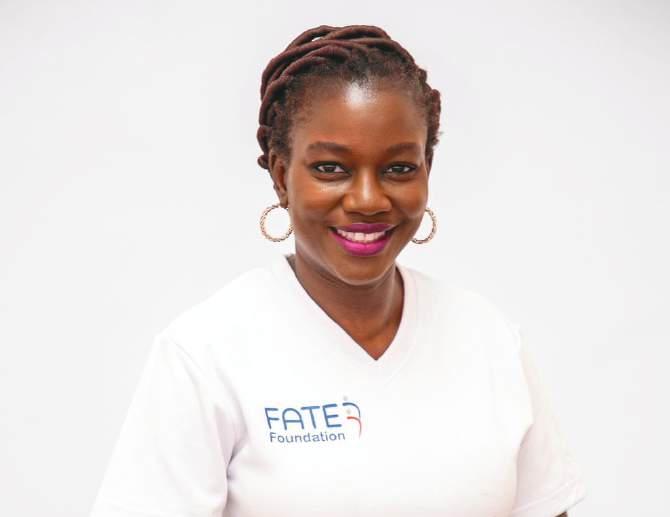
for entrepreneurs. So, what we then did was to work with individuals who are able to share their expertise, but come down to the level of an entrepreneur who then needs that in different ways. We moved from education to business support services, which were in consulting, mentoring and others.”
From there, the foundation moved into resource-building, publishing books and later establishing incubation programmes.
“We needed to invest more time, knowledge, funding, and energy into those with high growth potential,” she
Today, it houses one of the country’s largest repositories of insights on entrepreneurship and small businesses, a fact Adeyemi glowingly shares. The foundation also hosts an annual policy advocacy series, engaging policymakers to better understand the entrepreneurial ecosystem and create enabling environments for businesses to thrive.
As demand for support grew, Fate leaned on technology to scale. Adeyemi notes that tech not only streamlined operations but also helped bridge digital divides. In 2019, the foundation’s participation in a Youth Business International and Accenture programme led to a Digital Acceleration Strategy. This became a lifeline during the COVID-19 lockdowns when entrepreneurs needed to stay afloat despite movement restrictions.
Since then, Fate Foundation has worked with partners such as Meta and Google to provide digital literacy. These collaborations birthed platforms like the MSME Hub, offering free courses in fields ranging from video editing and photography to education.
The more Adeyemi talks about her work, the clearer it becomes that she was destined for this role, even if she admits it is demanding. With limited resources, the foundation relies heavily on donors. “It’s not always about money,” she clarifies. “Some donors provide services instead.” Integrity, however, she notes is non-negotiable. There are times when the foundation has turned down donations. What matters most is that a donor’s vision aligns with theirs in solving a particular problem.
In a way, Adeyemi was prepared for this role. After graduating with a degree in Linguistics from the University of Ibadan, she worked with her uncle’s NGO, where she taught people how to use the internet, long before it became mainstream.
“It was appealing to me,” she fondly recalls. “But more importantly, unlike some of my other friends who were interning, I was teaching people how to use Microsoft Word and browse the internet. So it was fulfilling work for me.”
That experience sparked her passion for development work. Luckily, she was redeployed to Lagos during her National Youth Service and ended up serving at the NGO. She was particularly moved by the philanthropic nature of the job. “It was so altruistic to see them train people for free.”
Adeyemi was later selected for a program by Junior Achievement Nigeria called Venture in Management.
“They just selected 50 corps members nationally and took us to Lagos Business School for one week to teach us about management. And so I was learning about management, but also learning with another organisation like us, another non-profit. I saw people who were enjoying their work. And I felt it was a good career potential.”
Adeyemi later earned two master’s degrees — in Public Administration and International Relations — before working with the Nigeria Leadership Initiative. A stint at KPMG followed, where she gained valuable expertise in finance, management, and strategy. “Even though it was the private sector, I still worked on government and entrepreneurship projects,” she says. Eventually, she felt called back to the non-profit world. When the opportunity at Fate came, she didn’t hesitate.
“All my experiences in consulting, strategy, business, sustainability, and NGOs converged in this role,” she says.
explains. This commitment led to the creation of the Institute of Venture Design in 2009 in Abeokuta.
“We brought in 15 young Nigerians from across Nigeria to design ventures in sectors that were identified as priority sectors,” she says.
Their job was to ideate and build businesses around the identified sectors such as agriculture, fintech, automobile and others. The venture was launched in partnership with Stanford University.
Later, the Fate Institute was established to provide research and data on Nigeria’s entrepreneurial landscape.
For Adeyemi, the learning never stops. “Oh, I love our entrepreneurs,” she gushes. “The greatest lessons I’ve learned have come from them.”
Today, she calls herself a social innovator — one committed to designing solutions that address complex, systemic issues in society.
As Fate Foundation marks its 25th anniversary, she and her team are looking ahead with bold plans. These include celebrating partners who have walked with them, launching an ambitious initiative to reach five million entrepreneurs through artificial intelligence by 2029, and hosting their annual award event in December.
HighLife
Jimi Benson’s Double Gift to Ikorodu
The day began with a ribbon and ended with a road. In between came applause, handshakes, and the quiet hum of laptops coming to life. It was a Thursday in Ikorodu, but it could have been anywhere youth meet technology, and old asphalt gives way to fresh tar.
On that day, Representative Babajimi ‘Jimi’ Benson cut the tape for a new ICT Centre inside Ikorodu Town Hall. Inside: 150 laptops, an alternate power supply, internet, and the kind of digital promise young people dream of. Hours later, he stood on Agbede-Ita Oluwo Road, flagging off a 7.5-kilometre reconstruction project long whispered about in the community.
The gestures fit into a larger story. Benson, first elected in 2015 and now serving his third term in the House of Representatives, has made a habit
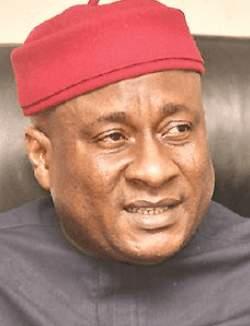
onyema
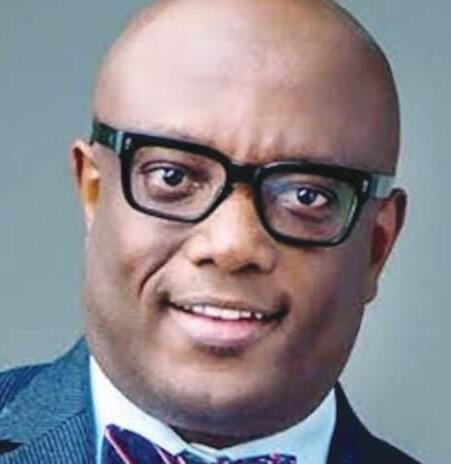
with KAYoDe ALFreD 08116759807, E-mail: kayflex2@yahoo.com
of weaving physical projects with policy threads. He has built food banks for widows, sponsored bills on defence funding, and even set up a local radio station for Ikorodu.
His path here was circuitous. Born in 1972, Benson studied law at Lagos State University before moving through the Nigerian Law School, a master’s degree in London, and an MBA in Warwick. He worked at the United Nations and banks before politics drew him back home.
The projects last week carried the echoes of that career: law’s precision, banking’s pragmatism, diplomacy’s polish. Yet the applause in Ikorodu was less about résumé lines and more about the sense of a town shifting, with roads stretching wider and screens flickering brighter.
What comes next is a question as open as the fresh road itself. For now, Ikorodu has new tools and a smoother passage. And Benson? He has the rare fortune of being measured not just by speeches in Abuja but by footsteps and keystrokes in the town that raised him.
Air Peace Bets on Homegrown Future
The latest Air Peace plot twist arrived with a patch of ground in Lagos. At Murtala Muhammed International Airport, Allen Onyema, the lawyer-turned-airline baron, broke soil for a facility that could alter Nigeria’s aviation script.
The event was staged on a 34,000-squaremeter site where Air Peace’s long-awaited maintenance, repair and overhaul complex is finally rising. Announced in August and blessed by Aviation Minister Festus Keyamo, the project is designed to service wide-body jets, employ tens of thousands, and tilt the economics of African aviation.
Nigeria’s carriers have been exiled to foreign hangars for years, draining dollars and patience. Onyema said the industry burned through $180 billion last year on overseas checks and spare parts. His fix is local: a sprawling complex with a hangar for a Boeing 777, space for five more aircraft, and workshops humming with Nigerian engineers.
Bankers and regulators lined up to call it patriotic. The Bank of Industry spoke of “true cooperation.” Fidelity Bank credited Onyema’s persistence for creating its first aviation desk. Keyamo went further, declaring the new hangar a “national treasure” that could even host the Presidential Fleet.
Onyema, who founded Air Peace in 2013 and grew it into the country’s largest private airline, framed the project as an act of faith. “This is a statement that Nigeria believes in itself,” he said, his voice cutting through the crowd. “It shows local investment can thrive.”
Air Peace has already stretched its wings abroad, from London to São Paulo, but this venture is rooted in soil, not skies. If completed on schedule, Lagos will host one of the largest aircraft maintenance hubs south of the Sahara.
50,000 jobs, billions saved, prestige reclaimed—lofty promises for a patch of ground. Yet in Onyema’s telling, it is not just cement and steel. It is the moment Nigeria stops waiting in other people’s hangars.
Tokunbo Wahab Takes Climate Message to Harvard
The sea has always whispered at Lagos’s edges, but lately its voice has grown louder, insistent, as if testing the city’s resolve. Into this chorus stepped Tokunbo Wahab, Lagos State’s commissioner for the environment and water resources, carrying his city’s story all the way to Harvard Business School.
At a panel on “Rising Seas, Resilient Communities” held Saturday, September 20, Wahab spoke plainly. Lagos, home to more than 22 million people, has expanded its land through the reclamation of wetlands and lagoons. That growth has fueled real estate dreams and infrastructure booms, yet it has also invited peril: blocked waterways, eroded mangroves, and floods.
Wahab told the audience that Lagos is trying a new path. The city is moving from landfills toward a circular waste system, one that turns discarded materials into compost and energy. With partners in Ghana and beyond, Lagos is working to shrink its waste while building transfer stations that prevent overflow and contamination.
Beyond waste, he noted, the Gulf of
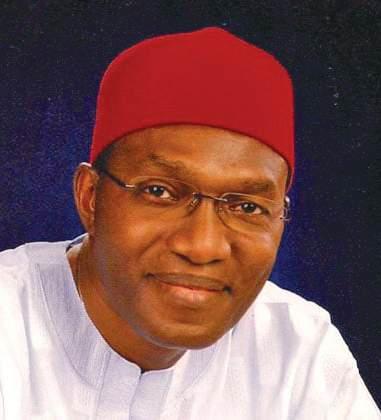
Guinea binds Lagos to its neighbours. Rising tides in Togo or Ghana inevitably ripple toward Nigeria’s shores. That reality has spurred Lagos to pursue regional partnerships for coastal protection and climate adaptation, recognising that survival depends on shared solutions.
For Wahab, the Harvard stage was not an isolated moment but a continuation of his journey. A lawyer turned politician, he once served as Lagos’s special adviser on education before taking the environmental portfolio in 2023. His résumé winds through courtrooms, boardrooms, and lecture halls, including stints at Harvard and Wharton.
At home, he is known for insisting that no reclamation project moves forward without impact assessments, for prosecuting those who damage fragile ecosystems, and for promoting civic campaigns that coax residents toward safer environmental practices. It is a technocrat’s creed, softened by the cadence of advocacy.
The sea, of course, does not wait for policy. It rolls in, patient and relentless. And
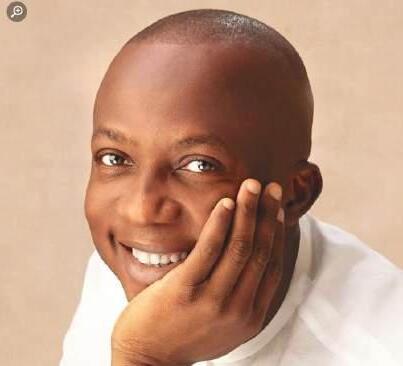
as Wahab essentially returned from Boston to Lagos, one had to wonder: can a coastal megacity learn to dance with the tide rather than fight it? Wahab still answers,
Globacom and the Art of Staying Loud
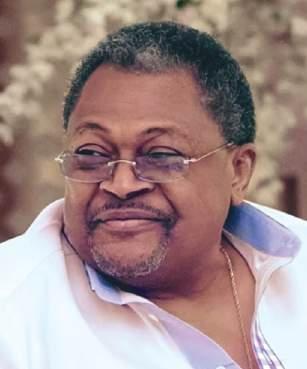
A green glow flickers across Nigeria’s telecom skyline, and it carries a distinctly local accent. Globacom, the giant founded by Mike Adenuga, has once again staged a spectacle: new tariff plans that promise more talk, more data, more you.
The unveiling happened at the Mike Adenuga Towers in Lagos, where executives rolled out “Talkmasta” and an expanded “Welcome Bonus.” For every six minutes of calls, customers now earn six free minutes and 50MB of data. New subscribers get N2,000 in airtime and browsing value after a first recharge.
Globacom’s arrival in 2003 reshaped an industry once guarded by foreign hands. SIM cards, once priced like gold trinkets, tumbled to N200. Persecond billing became reality. Suddenly, Nigeria’s dream of mass communication was no longer a joke told at smoky newspaper stands.
The company grew loud, sometimes too loud. It laid a private undersea cable, Glo 1, linking Lagos directly to London. It pioneered 4G services nationwide. Today, it is planting new sites, stringing fibre across forgotten towns, even plotting satellite internet for villages where cattle outnumber phone masts.
At the launch, executives leaned into poetry. They spoke of connection as family, of bonuses as a welcome hug. “We are not offering plans, we are offering possibilities,” one said. And for millions of Nigerians, possibilities often arrive wrapped in airtime.
Still, Globacom’s survival is more than tariffs and towers. It is about identity. In a marketplace dominated by global operators, the brand has styled itself as the loud Nigerian voice, insistent that homegrown can be world-class.
Two decades in, the glow has not dimmed. A Glo line remains both a bargain and a boast, a tether to community and country. And perhaps that is the secret: Globacom keeps talking, keeps glowing, until even silence begins to sound like an option worth dialling.
Andy Uba: The Dwindling Fortunes of a Kingmaker
There was a time when the corridors of Aso Rock were not so much walked upon as they were commanded, and at the epicentre of this power, a man named Andy Uba stood as a veritable colossus. He was the quintessential gatekeeper, a man whose word was law and whose favour was the very lifeblood of political ambition.
From his perch as President Obasanjo’s Special Assistant on Domestic Matters (1999-2007), he wielded a sceptre of influence so potent it could make or break careers with a single, imperious nod. The story of our political class is one of meteoric rises and often, an equally dramatic descent, but few so tragic as this.
This was a man who held away as senator for Anambra South. He also tasted
the governorship of the state in 2007, albeit for a fleeting 17 days. A footnote in history, perhaps, but a testament to the heights he had scaled.
He was the quintessential “fixer,” the man behind the curtain whose name was whispered in gilded halls and smoke-filled rooms as the arbiter of fortunes. The glitterati courted his presence, and the political elite paid homage at his altar. His was a kingdom built on influence, a palace of promises and political patronage.
But now, how the mighty have fallen! Like a character from a Greek tragedy, Uba’s hubris seems to have caught up with him. The once-feared kingmaker now finds himself caught in a web of legal indignity, his name sullied by accusations of a common scam.
The whisper of “419” hangs over him like a shroud, a far cry from the opulent titles he once held. He and his alleged accomplices stand
accused of duping a businessman of 400 million in exchange for bogus promises of an MD appointment at the NDDC.
The very man who once controlled access to the highest office in the land now repeatedly fails to appear in a courtroom. The police accuse him of running from justice like a wanted fugitive. A frustrated judge has ordered his presence at the next court hearing by any means possible. Meanwhile, Uba is reduced to a shadowy form in a doctor’s clinic in a foreign land.
The grand spectacle of his life has tailed off to what some regard as a pathetic charade as he plays an endless game of cat-and-mouse with a determined prosecution. The man who once held the keys to a kingdom is now at risk of a bench arrest warrant for repeatedly failing to honour court summons.
Will Aiyedatiwa
Ever Meet up with the Standard Set by Ex-governors?
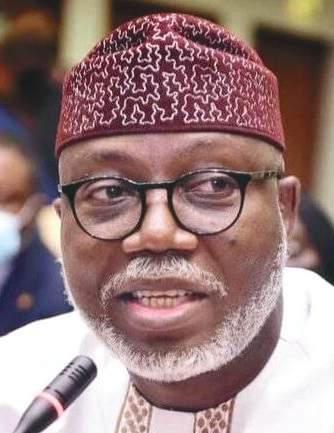
Politics in Ondo usually feels like theatre, with each governor stepping onto the stage under the gaze of an expectant audience. Lucky Aiyedatiwa now occupies that stage, and the crowd waits, some with folded arms, some with restless feet.
The governor’s September confrontation with organised labour captured the unease. The Nigeria Labour Congress demanded a leap in the state’s minimum wage from N73,000 to N256,950, arguing that inflation and fuel subsidy removal had hollowed out workers’ pockets. Their letter praised his prompt payments yet questioned his vision for true welfare.
Barely a week before this, a different scene had unfolded. At the School for the Visually Impaired in Owo, the principal openly refused his directive to reinstate six expelled students. The pupils had protested poor food and broken buses months earlier, but even the governor’s order met a wall of bureaucratic defiance. Authority, it seemed, was negotiable.
Readers would recall that in August, there
Late Wigwe’s Daughter Becomes Her Own Woman
Otutochi “Tochi” Wigwe, the daughter of the late Herbert Wigwe, banking titan and philanthropist, has reemerged after loss with a fresh chapter of her own. In Lagos and London, in town halls and foundation meetings, she is steadily sketching her future. Her father’s death could have left her frozen. Instead, Tochi, armed with degrees from New York University and Imperial College Business School, has taken up the family’s philanthropic mantle. She directs the HOW Foundation, focusing on education, healthcare, and youth empowerment, while steering her TW Entrepreneurship 2030 Agenda for Nigerian SMEs.
The initiative, nicknamed TWEAgenda, is ambitious. She aims to reach more than 5,000 entrepreneurs through town halls and data-driven support within five years. The plan is less about ribbon-cuttings and more about scaffolding: giving small businesses the
structure to grow, compete, and endure.
Observers say Tochi’s energy feels lighter than the weight she carries. Friends describe her laughter as catching, her presence as almost luminous. She turned a recent birthday into a celebration of life itself, flashing the kind of smile that disarms sorrow.
Her path, of course, is still tethered to legacy. Herbert Wigwe, as Access Holdings CEO, built one of Nigeria’s most formidable banking empires before his untimely death. Now his daughter chooses continuity through impact, weaving resilience into a new kind of inheritance.
Yet there is a bit of mischief in Tochi’s stride. She does not mimic her father’s style; she improvises her own. Where he was a banker of boardrooms, she plays conductor of entrepreneurs, coaxing notes out of thousands of small voices.
Legacy, after all, is not only received. It is
was a party quarrel. Aiyedatiwa convened leaders of the ruling APC and announced a merger of all Tinubu support groups into one banner: Ondo State for Tinubu 2027. He cast it as unity. Dissenters called it a power grab, accusing him of choking grassroots voices in preparation for battles still years away.
The contrasts grow sharper when set against Ondo’s storied past. Olusegun Agagu staked his legacy on energy reforms, Olusegun Mimiko on health care, and Rotimi Akeredolu on infrastructure. Each left fingerprints that citizens could trace long after they exited power. Aiyedatiwa’s prints, so far, seem to be smudges of conflict rather than lines of progress.
Still, politics has a way of surprising. A governor dismissed as timid can evolve into a reformer, just as a bold leader can drift into irrelevance. For Aiyedatiwa, the stage remains lit, the script unfinished, the question hanging in the air: will he rise to the role or simply walk off mid-act?

Tayo Amusan’s Shoprite Bet Faces Its Toughest Reset Yet
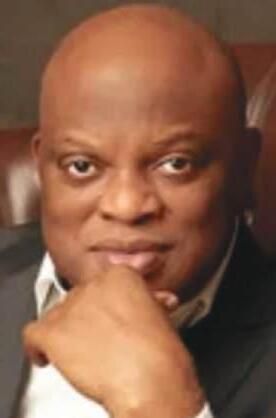
The story of Nigerian retail today begins with shuttered doors and half-lit aisles. Oncebustling Shoprite branches in Abuja, Ilorin, and Ibadan have closed, leaving customers puzzled and competitors emboldened. For Tayo Amusan, the man behind Shoprite Nigeria, the challenge has never felt more visible.
Four years ago, Amusan’s Ketron Investment Limited acquired Retail Supermarkets Nigeria, the operator of Shoprite, from its South African parent. At the time, the move promised stability and local stewardship for one of Nigeria’s most recognised supermarket chains. Today, the company is in reset mode, scaling back from sprawling formats to leaner, locally anchored stores.
The old model leaned heavily on imports, high energy costs, and massive overheads. That formula buckled under inflation, currency swings, and weak consumer spending. The new strategy tilts toward local supply chains, with more than 80 per cent of goods sourced within Nigeria, alongside private-label products designed to be cheaper and more familiar.
Bunmi Adeleye, the chain’s chief strategy officer, has described the moment as less of a collapse and more of a recalibration. “We are
rebuilding Shoprite to be more local, more culturally relevant, more affordable, and more resilient,” she said, promising customers a brand reborn, not buried.
Amusan himself is no stranger to bold bets. As chairman of Persianas Nigeria, he spearheaded The Palms Mall in Lagos nearly two decades ago, a pioneering experiment in Nigerian luxury retail. His appetite for malls, hotels, and real estate has long made him a central figure in the country’s consumer landscape.
Now, with Shoprite under his watch, he faces the unenviable task of proving that large-scale retail can survive Nigeria’s economic crosswinds. The closures are painful, but they may also be pruning. Smaller branches, tighter margins, fresher links to local farmers, clearly a leaner tree trying to weather the storm.
And so the nation watches: can the man who built malls out of concrete dreams persuade Nigerians to believe in supermarkets again? The answer may not come in headlines, but in whether the shelves feel less empty tomorrow.
Kola Aluko Relaunches Self with Chinese Connections
There are comebacks, and then there are reinventions so unexpected they feel like costume changes on a crowded stage. Kola Aluko, once the oil-fueled billionaire with yachts and Manhattan penthouses, has returned to the limelight, this time holding a tequila bottle like a talisman.
In recent months, Aluko has appeared on Instagram promoting Los 7 Ángeles tequila, a brand founded by Jaycee Chan, the son of Jackie Chan. The posts have raised eyebrows from Lagos to London, stirring speculation that the 55-year-old businessman is plotting a new chapter after years of silence and scrutiny.
For the uninformed, Aluko’s story once glittered with Forbes lists, fast cars, and highstakes oil blocks.
He co-founded Besse Oil in the 1990s, built Fossil Resources in the 2000s, and by 2011 stood at the helm of Atlantic Energy, negotiating deals with Nigeria’s state-owned oil company. His name carried the aura of a mogul in full
stride—then came the avalanche of allegations.
In 2017, investigators in Nigeria, the UK, and the US tied Aluko to multibillion-dollar fraud and money laundering cases. American authorities sought to seize $144 million in assets, from luxury condos to prized artworks. His empire, once expansive, looked suddenly brittle.
And yet, Aluko never quite vanished. Between court filings and property sales, he indulged his passion for motorsport in Europe, citing Ayrton Senna as a guiding star. His philosophy was simple: identify your weakness, practice until it becomes a strength. That mantra now seems eerily tailored to his business life.
The tequila pivot, coupled with rumoured Chinese partners, suggests a man attempting to script redemption through reinvention. From oil rigs in the Niger Delta to agave fields half a world away, Aluko is again chasing deals with a taste of spectacle. What else could a comeback look like?
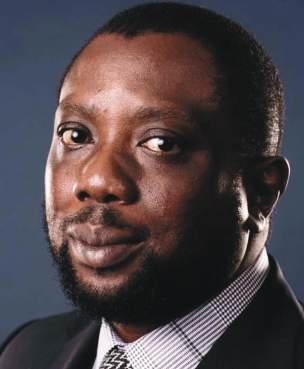
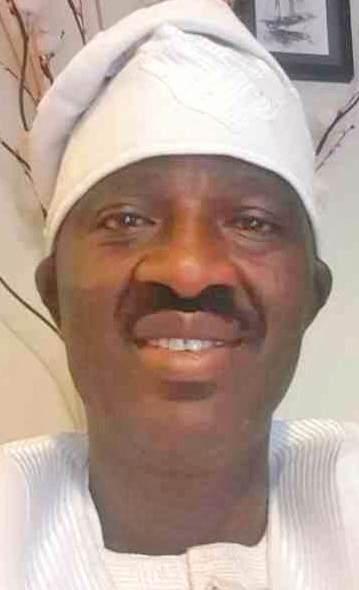
Some men campaign with billboards. Olumuyiwa Adu seems to campaign with open doors.
Across Akure and the villages of Ondo Central, he is known as “Cubana,” a lawyer and philanthropist now eyeing the Senate. The call for his candidacy grew louder this year, a groundswell from residents who say they have felt his hand long before his ambition.
Adu’s story begins in Akure, where he grew up in the household of the late Adu Williams, once Sao of the town. After schooling locally, he chose a rigorous path at the Nigerian Defense Academy. Later came stints in oil and gas security, law, and international consultancy, with credentials stacked across continents.
Travelling to over 40 countries, Adu collected awards, degrees, and perspective. Yet it was back home, with scholarships, business grants, and legal help, that his name took root. Women traders remember small loans, students remember tuition fees, and job seekers recall introductions scribbled on paper in his own hand.
This rhythm of generosity, unadvertised, steady, and personal, has made him a fixture in Ondo Central politics. Crowds wait outside his home, certain they will be heard. It is this steady tide of stories, not the noise of godfathers, that has lifted him into the senatorial conversation.
Supporters describe him as disciplined from his military years, pragmatic from his oil work, and approachable in ways politicians rarely are. Critics, meanwhile, whisper that popularity must eventually harden into policy if it is to endure. Can kindness translate into lawmaking? That is the wager.
Adu himself casts his mission as simple: service with scale. He speaks of carrying local interventions into the formal machinery of the Senate, marrying empathy with law. It is less a pivot than an extension, he insists, of what he has long practised. Whether that vision persuades voters remains to be seen. For now, Ondo Central has a candidate who trades handshakes for hope. And in politics, where cynicism is currency, that can feel almost radical.
Natasha Akpoti-Uduaghan: Feisty as ever
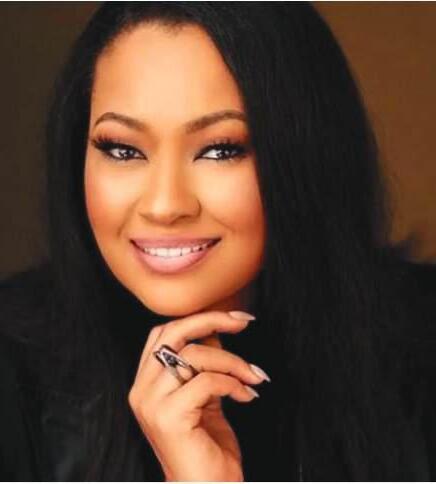
ezekIel ADAMU: BoxINg INTo glorY
I like to use this column to promote entrepreneurship for very obvious reasons. Entrepreneurship is the solution to our basic economic problems as a nation because of its wealth and job creation potential. Dr Adamu has, over the years, pushed so many projects that have not only created thousands of jobs but also mainstreamed whole sectors. The CEO of the ever-bubbly Balmoral will, this October, stage one of the biggest boxing fights on the continent. Pulling in about 10 boxers from 10 countries with two cruiser weight champions from the United States of America and a slew of huge artists like D’banj and Naira Marley, Dr Adamu will this time literally shut down Lagos. With an expected 10,000 attendees, the impact of this huge project will hit hospitality, media, tourism, infrastructure, fashion, food and beverages in a way that Lagos has not seen in a bit. With over 5,000 direct jobs and another 10,000 indirect jobs, it is no wonder that the Lagos State Government is bending over backwards to accommodate and support this.
This Adamu comes from a rich sporting pedigree and heritage, as most of you do not know that his father, Adamu, was the first African
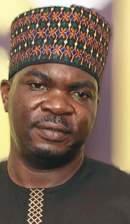
Did you see the clips heralding the return of the Queen? Did you see how they unsealed her office and declared that she can come back? Fast forward, a turbulent scene outside, as Nigerians came out in their thousands to join her on the walk. It was quite impressive as the crowd was led by Peter, a content creator who is so unbelievably intelligent when it comes to Nigerian affairs. He even addressed the crowd, and from there, they moved into the premises where the Queen finally went into her office, dusted the chair, sat down and talked crap.
Yes, talked crap. Instead of her going statesmanlike and talking about expansive things like female empowerment, rights, freedoms and that kind of Michelle Obama type thing,
that held the top and strategic positions at the CAF and FIFA. Although he has sworn me to secrecy, I will still spill that it is looking like he will be bringing home boy Anthony Joshua to fight in Lagos, and that will surely now throw Adamu into the very famous Power List that I am compiling. Kai. Well done, bro.
Sleep FINAllY CoMeS For oSCAr
IBrU
Skido, as he is fondly called, is the patriarch of the wealthy Ibru family. A family that has produced two of my closest buddies – Elvina and Obuks. Oscar passed during the week after a brief illness. For those of you who do not know, because a lot of us do not read or know history, the brilliance of this family gave us some of our most iconic brands.
Brands like the Ibru Group, Federal Palace Hotel, Sheraton Hotels, The Guardian, Aero Contractors and several others were promoted by several members of the family. Their father, who was the real founder, Olorogun Michael Ibru, was more than a visionary businessman who parlayed a small business in fishery to one of the largest holding business empires on the continent at its height.
Oscar succeeded and took leadership, and unlike most huge
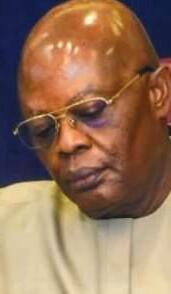
mummy went petty. Akpabio is this, Akpabio is that, and I will not agree. I will scratch his eyes and pinch him and all that kind of talk.
Her campaign has quickly been derailed by her inability to respond with facts and fight an issue-based one. All these he held my hand, he wanted to sleep with me in front of my husband, and he wanted to pour spit into my fine mouth, only resonated with the emotion-laden denizens, the type that thronged the Assembly grounds and followed her into her office.
Madam Queen of the Senate, as you have come back now, let us hear word abeg. Enough of all that “chikiny” talk and face serious business. Enough of the crowdpleasing tantrums, abeg. Thank you.
family businesses, ruled with love, inclusion and in glory.
He once attended one of my plays that had his beautiful sister, Elvina, playing a major role and bought almost all of the tickets for the show and pushed a lot of his friends to join him in attendance. Such was his love for his huge family that his respect within the family and outside soared.
His friends like Chike Ogeah, Nduka Obaigbena and the rest remain inconsolable. Chike sent me a message: “Edgar Oscar don die ooooo.” And I replied, “My egbon, we can only thank God.”
I last saw him at Ughelli, where we had all gone for the opening of a roundabout by Mudi the Fashion Designer.
May his handsome soul rest in perfect peace. Amen.
BABAJIDe SANwo-olU: TIMe To BUIlD THe Ark
Egbon, I think it’s time we sent out bids for the building of an ark, the type Noah built. The flooding in Lagos has reached that proportion. I really would not like to join the millions in singing to the obvious, but we cannot be hunkering down every year while the flood carries our wives away o.
How can someone go to bed telling his wife that she should not worry
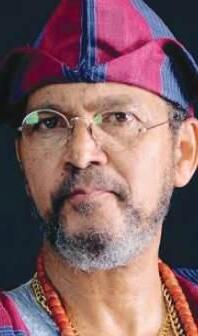
that by morning, when she wakes up, you will show her what it means to be a true man, and then you wake up and flood has taken her away to Okokomaiko.
Although the issue of flooding in Lagos is as old as the Lord Lugard era, it continues to take on seriously scary proportions year in, year out as a result of many reasons – poor town planning, indiscriminate building approvals, corruption in the process leading to an inability to correct same, overpopulation, climate change, etc. At least the ones we can solve, we should try na, but it is looking like successive governments lack the willpower to do anything about this. As a result, the whole state is turned into an estuary of the Lagoon each time it rains.
So, the solution is for the Governor to commission building a giant boat like Noah did, and we all move into the ark and wait out the rainy season. The only problem now will be that by the time they carry APC members, there will be no space for the rest of us.
This is no longer funny, abeg. Oga, do something o.
reAr ADMIrAl IBAS: proBe or No proBe
There is small confusion in this matter. This oga was sent by the president to run an interim
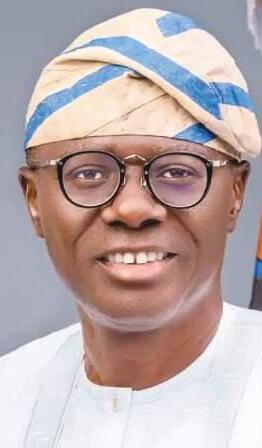
government as sole administrator while they decide how to handle the little boy governor who had gone rogue. His mandate was simple: hold down and report to us for six months, a task which he did very robustly.
Now his tour of duty is over and democracy has been restored, and the State House of Assembly has asked for a probe of his interventionist rule and as reported, it is looking like oga is being reluctant.
Well, I am not a lawyer, but my Shomolu sense seems to be in Ibas’ support. He was not democratically elected; he was appointed by some people and sent on an assignment, and as such, he can only be probed by those who sent him, because Rivers’ people did not send him on any errand.
So, in my estimation, the call to probe his tenure is misplaced and should be directed to those who sent him. Simple.
The Rivers State House of Assembly, or whoever it is that is asking for a probe, should stop being cowardly and redirect their calls to the appropriate quarters.
In case they do not know who to go to, let me help them – the man used to wear only one cap with a manila symbol, his wife’s name is Oluremi, and he has a son called Seyi. He used to speak with a deep growl, and agbado is his favourite meal. Mbok, if by now you do not know who I am referring to, then you do not deserve your seats. Thank you.
Sowore vS wIke: reAl rUMBle IN THe SAHel
If the reports that Sowore has gone to report Wike to Florida authorities on a mansion are true, then Wike should be headed to the Osun Grove for spiritual solution.
This Sowore is very mischievous and wicked o. Is it because we had said he should be strategic that he is doing this one? This one is a bullseye o and if he succeeds, it will send shivers down the spines of a whole generation of politicians.
My own is, why go to the US to buy a house with all the wahala that comes with that, when you can go to Iran or Colombia to buy a house and they will give you national honour on top. Well, we have seen reports that basically show that Sowore may have grabbed Wike’s balls, and as I write, I have not seen any response from Wike’s side. This is very uncharacteristic abi is it fake news? Anyway, whatever it is, I think that Wike should invite Sowore to tea and discuss the effect of climate change in Imo State, and to also seek his support in mediating in the matter between that state and my aburo Sujimoto because Sowore has to be distracted o otherwise, we may be viewing Prison Break with our giant minister in the leading role. I have run away ooooooo.
AYoMISI olUwADAHUNSI: AN INglorIoUS ATTeMpT
A lot of you, my readers, don’t know this name, even me; I didn’t know it until last week. This person is a content creator who goes by the name Mandy Kiss, and she just announced that she will sleep with 100 men in 24 hours in an attempt to enter the Guinness Book of World Records.
You see, it is Hida Baci that I blame for this one now. Ever since she entered the record book, Nigerian youths have gone gaga. You know it is “follow follow” that used to do us in Nigeria. Now everybody wants to enter the record book with all sorts
of spurious claims. We have seen the longest bean cook, the longest kiss, the longest toilet sitting and now this.
This lady wants to sleep with 100 men for the books, something she has most likely been doing very easily from the look of things, but now wants official recognition. Thankfully, the Guinness people have pushed back, claiming that they do not have such a category. Anyway, please don’t vex, can anybody please tell me where to register to participate o? I really want to do it for you, my readers; it’s just for research purposes, I swear. Please, nobody should show Duchess this write-up o before you people will now go and scatter my own, because I want to do research. So that I can better serve you, Kai.
pAUl okoYe: JUSTIfIABlY ANgrY
This talented singer is angry and
justifiably so. Someone went on the internet and boldly accused him of something sexually heinous – I will never repeat it here, because that would be strengthening a spurious claim.
In response, Paul has vowed on his mother’s grave to unearth her and deal with her according to the dictates of the law.
You see, this social media has gone to the dogs, and the cybercrime laws are not really working as effectively as they should. It’s a digital blood fest, I swear. People just go there to slander and damage others. See this one o, this person, not even knowing who or what this Paul stands for, just goes there and makes such a damaging report, and the thing is being shared and pushed to millions just like that, without considering how it would damage this person’s family, life and career. That was how my friend, a very
reMI TINUBU, I STAND wITH YoU
I have long left the bus that stipulates that you must not see anything right in Tinubu and his family. I am not the Sowore type of critic o. My own activism is one with rationality and a huge dose of sense. The other day, a prominent Nigerian called me up – Edgar, e be like say you want join APC or dem don they give you money?
My people, a woman stands up and says- mbok, instead of wasting money giving me gifts, use the money to build the National Library. The woman raised over N20 billion, and the next thing, a court case asking EFCC to investigate how much was really raised and how the funds would be expended. Another group starts to rail at the husband for not spending taxpayers’ money on the matter. Is this not why the husband asked the other time – is it your money?
Some of these barely literate activists used to make me laugh at
times. Someone asks her friends to donate personal money for the betterment of Nigerians in a sector that has all but collapsed, and you are shouting. I really don’t understand – personal money o for public good o. Why not wait to see if Madam will use the money to buy a yacht before you shout, and even if that happens, is it not the prerogative of those who donated that should do the shouting?
This kind of criticism is called “Amala” criticism. They just shout so that they will be given attention, and a feeding bottle will be stuck in between their waxy lips. A very foolish thing to do, that court case. Mummy mbok, raising the funds is just one step, making sure the library is built in quality is the next step, and please mummy, let’s not wait till next birthday. Can we do these types of fundraisers for each of the states of the Federation? Well done, ma and Happy birthday once again. Thanks.
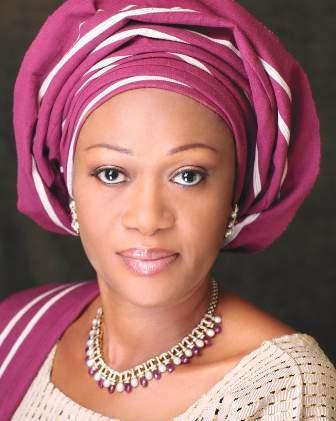
brilliant doctor, was so maligned by his wife on the same social media, got his career damaged, life upturned, leading to him bagging a life sentence, mostly from social media pressure. Today, he has won on appeal and is free, but the damage to his reputation has been done just like that.
I stand with Paul Okoye unequivocally and also with any Nigerian who has been so unjustifiably bullied or maligned on that social media. It’s time to fight back. Thanks.
goDreY ogBecHIe: 60 gArlANDS for A DAMSel
It was her 60th last Sunday, and Godrey, the wife of brilliant Gabriel, celebrated in grand style. The hall was filled to the brim with the business community coming in all of their finery to celebrate with her. The people I saw there include Dr Tope Fasoranti, the brilliant former ED at Zenith Bank; oil magnate, Greg Unaseru; Collins Chikeluba, former Akwa Ibom State Governor, Udom Emmanuel; Mohammed Garuba, erudite investment banker, to mention a few.
Godrey is an Executive Director at the multibillion-naira Rain Oil Group, and she continues to exude such grace and elegance that when I went to complain that, as usual, there was no afang, she pointed at Gabriel, who was now doing as if he could not hear me – I will soon release his caricature. Flavour stole the show as usual, and Gabriel scattered the dance floor with Atilogwu dance steps that he must have learnt immediately after the civil war.
Happy birthday, my beautiful sister and may God grant you many more beautiful days. Congrats.
kUDoS To TINUBU oN ogoNI foUr
As I was rounding up this column, the news that President Tinubu has conferred posthumous honours on the four Ogoni leaders who were killed alongside famed environmentalist activist Ken Saro-Wiwa dropped. This brings to a close the cry for their recognition, especially on the back of their sacrifice for democratic freedom. Well done, sir and thank you so much for this.
These leaders paid the ultimate price for their bold stance against military tyranny during those turbulent times. Their sacrifices and those of others like MKO Abiola for democracy are what we are now enjoying in this country. This is a bold step. Thank you so much.
NoNNY UgBoMA: well DoNe AND coNgrATS
Nonny Ugboma is the former Managing Director at MTN Foundation. She has just bagged a doctorate in Innovation and Public Policy from the University College London. Her research, according to her, centred on how public sector dynamic capabilities create public value in Nigeria and was supervised by globally regarded scholars like Prof. Mariana Mazzucato and Prof. Julius Mugwagwa.
What a lot of people do not know is that Nonny is a well-sought-after consultant to various governments, both at the federal and state levels, where she provides inputs on policy and the rest.
Her tenure at the MTN Foundation saw the institution deepen its interest in core areas like education, healthcare and the arts.
Nonny is sinfully beautiful and graciously brilliant, a core asset to Nigeria and this is why I am saying congratulations, madam.

Tenacity, expertise of Kayode Ajulo
Lucky Aiyedatiwa has made many appointments as the Chief Executive of Ondo State. But one appointment he was spot-on was the choice of Olukayode Ajulo as his chief law officer. For Governor Aiyedatiwa, Ajulo is one egghead he needs to help him succeed in managing the affairs of the good people of Ondo. And since his February 2024 appointment, this young, vibrant Senior Advocate of Nigeria has proven not only to his principal but all that his appointment as the State Attorney General and Commissioner for Justice is not a hoax.
Even in January, when the governor dissolved his entire cabinet, he exempted Ajulo and one other commissioner from the dissolution because of the critical nature of their duties. Indeed, it is doubtful whether anyone can still impugn his brilliance as a lawyer, following the recent victory of Governor Aiyedatiwa at the Supreme Court.
As the state’s Attorney General, the Akoko-born legal luminary had totally immersed himself in the multiple legal battles involving his principal, back and forth from the State High Courts to the Supreme Court over the 2024 governorship election battle in the state. Aware of the enormity of the legal tussle, Ajulo, in his capacity as the Chief Legal Adviser to the Governor, assembled a formidable team of lawyers to defend his principal.
It was no mean feat, as he successfully engaged some of the best legal minds in the country, including Wole Olanipekun, Adegboyega Awomolo, Charles Edosanwan, Tayo Oyetibo, Olusola Oke, Hakeem Afolabi, Ebun Olu-Adegboruwa, Prof. Remi Olatubora, and Prof. Abdul Kana, among other crème of senior lawyers.
Though the recent development has boosted his profile, it is incontestable that Ajulo had already made a name for himself in the nation’s legal firmament. His standards are sky-high, and he does not compromise, no matter whose ox is gored. He is, without a doubt, one of the silent wealthy lawyers in Nigeria, yet Ajulo is the kind of man whose values aren’t shaped by convenience but by conviction. Perhaps this explains the mixed feelings that greeted his willingness to accept his current portfolio.
Many of his admirers had expressed concerns that his success story as a lawyer towers above the status of a State’s Attorney General. For instance, in Abuja, he is affectionately dubbed ‘a go-tolawyer’ in recognition of his uncommon ability to politically, diplomatically and legally deliver comprehensive legal solutions to high-net-worth clients.
Ajulo, a recipient of the national award of the Officer of the Order of the Niger, OON and once the youngest National Secretary of the Labour Party, has won the hearts of many both within and outside the country for his prodigious legal victories since he began practising.
A Dynasty in wigs: The
Ajogwus etch Their Name Deeper into Legal History
When history walked into the Body of Benchers’ hallowed chambers in Abuja this last week, it wore a fresh wig and carried the name - Ajogwu.
The Call to Bar ceremony saw Nnaedozie Ikenna Ajogwu step into the noble arena of law, flanked not by chance but by destiny itself. On either side of him stood his father, Professor Fabian Ajogwu, SAN, and his grandfather, Dr. Michael Ajogwu, SAN.
Two towering legal minds, both PhD holders, both Senior Advocates of Nigeria, both teachers and guardians of the law. Three generations, one lineage, a legacy sealed under the watchful eye of the Chairman of the Body of Benchers.
But it wasn’t only the men in silk robes who made the moment unforgettable. In the gallery of proud smiles were the matriarchs who have held this dynasty together: The celebrant’s mother Ifeoma Ajogwu, an accomplished interior designer with an eye for elegance, and his grandma Caroline Nwanapa Ajogwu, retired school principal, Justice of the Peace,
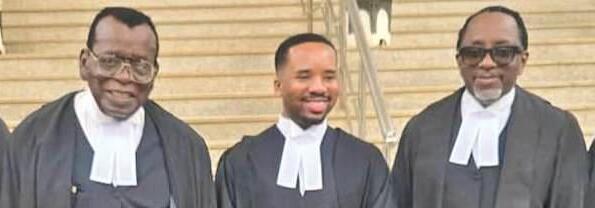
and title is a home shaped by discipline, faith, and unshakable belief in education. The sight of
Stan Ekeh’s Commitment to Digital Learning
In the rapidly evolving world of African information technology and digital economy, Dr. Leo Stan Ekeh, the Chairman of Zinox Group, resonates with enduring brilliance and legacy.
He is not only celebrated as a Forbes-certified leading digital guru but also as a visionary whose influence cuts across continents, industries, and generations.
As a businessman at the intersection of innovation and impact, the affable billionaire has been on a mission to create confidence and faith in Nigeria’s digital economy space. And for years, Ekeh has cultivated indigenous trust in locally produced technology via his respected tech brand, Zinox. But his impact extends beyond commerce. He is also determined to entrench digital democracy, as evidenced by his recent activities.
In recent years, the tech tycoon, through his Leo Stan Ekeh Foundation, has donated cuttingedge tech centres to some universities, especially
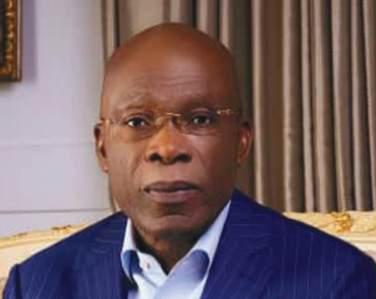
in Lagos and Imo States. He has also pledged to empower 10,000 women in tech via TD Africa. But Ekeh’s commitment to digital learning didn’t end there. In furtherance of his vision and the effort to
bridge gaps in the country’s education system, Ekeh, at the just concluded GITEX Nigeria 2025 event in Lagos, announced an education-focused corporate social responsibility (CSR) program to take learning beyond the four walls of the classrooms.
Branded ‘Computerise Nigeria’, the initiative — through his Zinox Technologies — seeks to equip one million young Nigerians with laptops over the next seven years. The laptops will also be bundled with iPower inverters, Starlink satellite internet connectivity, training, and after-sales support. This is to urgently create a digitally-oriented lifestyle among Nigerians.
Ekeh’s Computerise Nigeria Initiative will offer flexible, interest-free payment options designed to lower financial barriers for schools and donors.
Nicholas Ukachukwu’s Wife, Mitchel, Adds Glamour to Anambra Campaign

November 8 Anambra State governorship
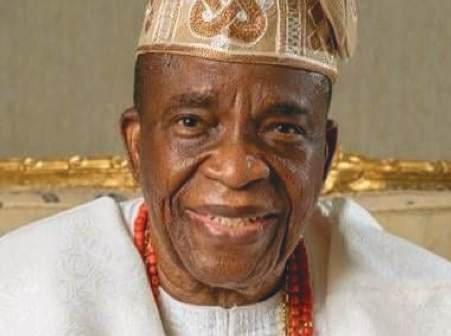
“Education is the great engine of personal development. It is through education that the daughter of a peasant can become a doctor, that the son of a mine worker can become the head of the mine, that a child of farmworkers can become the president of a great nation. It is what we make out of what we have, not what we are given, that separates one person from another.”
If there’s one man who believes and puts to use this powerful quote by the late South African President, Nelson Mandela, it is none other than the billionaire businessman, Prince Samuel Adedoyin.
election has never been in doubt. But gossip making the rounds in the state is the involvement of his new wife in some of the campaign meetings across the state.
It was gathered that the presence of Mitchel Ihezue, the 2017 Most Beautiful Girl and Miss Universe, has added attraction and glamour to political campaigns in the state, a sort of comic relief to the ‘volatile’ nature of the campaign season. Expectedly, this has brought back the beauty queen into reckoning.
A source disclosed that the light-skinned ex-MBGN, unlike some of her contemporaries, never shies away from her husband’s political meetings and engagements. To some extent, this has also made her more popular.
Before the politician got married to Mitchel, he was married to Nnenna, who died five years ago at the age of 41 in a motor accident along Ore-Okitipupa road alongside the wife of Senator Ndoma Egba and other women. Until her death, she was the executive director of the British Nigerian Academy in Abuja.
Nicholas, a former House of Representatives member in the 9th assembly, comes across as a
man who lacks any clear-cut political ideology. A serial political contender, the more he tries, the more his dream eludes him. Sadly, this has made him a subject of ridicule in some quarters.
To realise his long-standing aspiration for the Anambra South Senatorial district in the 2019 election, the Owelle Osumeyi left the Peoples Democratic Party (PDP) for the All Progressives Grand Alliance (APGA) when he could no longer endure the frustration he allegedly suffered at the hands of some hawks in the party, especially Andy Uba and his cronies.
There was a glimmer of hope when he beat many of his other aspirants in APGA, including Bianca Ojukwu, widow of the late Biafran warlord, Emeka Ojukwu and Dr Okey Chidolue, a former top shot in the Nigerian Ports Authority and a one-time aide to the late Ojukwu. But his hope of flying the party’s ticket was punctured when he lost to Capital Oil boss, Senator Ifeanyi Ubah. However, this time around, he has vowed to do everything humanly to secure his most cherished ambition.
p rince Samuel Adedoyin Shines Brighter w ith New Investment in e ducation
Known as the Prince of Commerce, he is a man with an uncommon heart of gold. He is ever ready to contribute generously to humanity, and this is equally seen in many landmarks.
One special area that has benefited so much from his generosity is education. The billionaire, in the past, has invested heavily in the future of many students in his home state, Kwara. As gathered, some of his beneficiaries have become important personalities in their respective fields.
Apart from scholarships for thousands of indigent students, the business tycoon has contributed heavily to the development of many tertiary institutions. Recently, he donated a mammoth edifice to the Lagos State University Information and Communication Technology (ICT) Department.
But the founder of Doyin Group — a diversified Nigerian conglomerate with interests in FMCG, agriculture, pharmaceuticals, real estate, automobile and financial services — is now taking his investment in education further with the establishment of the Prince Samuel
Adedoyin College of Nursing Sciences in his hometown of Agbamu, Kwara State.
On Thursday, September 25, the groundbreaking was done. The institution that will sit atop 22 acres of land is scheduled to be completed in 12 months, and the billionaire has promised to equip it with some of the latest, world-class equipment that will turn the facility into a referral institution.
Already, Adedoyin, who is also the pioneer Chancellor of Trinity University, has set aside undisclosed billions of naira for this project, located beside the General Hospital that was donated by the philanthropist to the State. Adedoyin believes that a life is meaningful only when it is lived in service to humanity. Over the years, the serial entrepreneur has always been guided by this philosophy. He does not wish to be respected for his wealth, but for the grace to impact the lives of the people around him.
ARTS & REVIEW ARTS &
A publicAtion

From Archiving to Ariya Eko, Bimbo Esho Champions Nigeria’s Musical Heritage
Bimbo esho, daughter of the late music archivist, Femi esho, is set to headline the 2025 edition of ariya eko, a landmark cultural festival in Lagos State that celebrates indigenous Nigerian music, featuring legendary artists and bridging the gap between generations, she tells Yinka olatunbosun
Her late father, Femi Esho, began collecting music at the age of 12 and went on to build an extensive archive of Nigerian music, which Bimbo has since expanded upon. Building on this foundation, Evergreen Musical Company Limited has evolved into a comprehensive cultural repertoire, encompassing the Evergreen Music Heritage Foundation, a non-profit organisation dedicated to preserving Nigeria's musical heritage and promoting music education. Additionally, the Evergreen Music Heritage Centre, currently under construction in Anthony Village, Lagos, will feature a state-of-the-art music museum, studio, theatre, and an event hall.
As a music archivist and promoter, Bimbo Esho has curated and promoted the works of renowned Nigerian artists, including Fela Anikulapo-Kuti, Chief Ebenezer Obey, and Seyi Shodimu. With over 14 years of experience in the music industry, Bimbo has worked tirelessly to preserve Nigeria's musical heritage for future generations, protect artists' rights and royalties, and advocate for music education, professional management, and fair contracts to support the growth of the Nigerian music industry. Notable projects include the Nigeria Independence Parade of Stars and Dr. Victor Abimbola Olaiya's 60 Years on Stage celebration.
But for this 2025 edition of Ariya Eko, Bimbo Esho is raising the roof. On October 5, Lagos will resonate with evergreen echoes as Ariya Eko returns to the city. As an initiative of Evergreen Musical Company Limited, Ariya Eko has become a defining cultural landmark in Lagos State, showcasing the city’s rich musical heritage. This evocative and nostalgic music festival highlights the diverse musical traditions of the Lagos people, from ancient roots to contemporary expressions, and has evolved into a significant cultural movement.
Conceived to combat the erasure of Lagos-rooted musical legends from public memory, Ariya Eko ensures these icons are honoured and not relegated to mere footnotes in history. The festival pays tribute to those who shaped Nigeria’s cultural space with their sound, giving these musicians new life through active re-engagement with today’s audiences.
In a recent virtual encounter, Bimbo Esho described Ariya Eko as a revival – a rebirth of interest in indigenous Nigerian music. “Our indigenous music, which seems to be in a comatose state, will be awakened by the Ariya Eko Festival,” she said confidently. “It will not only show- case our musical talents to the world
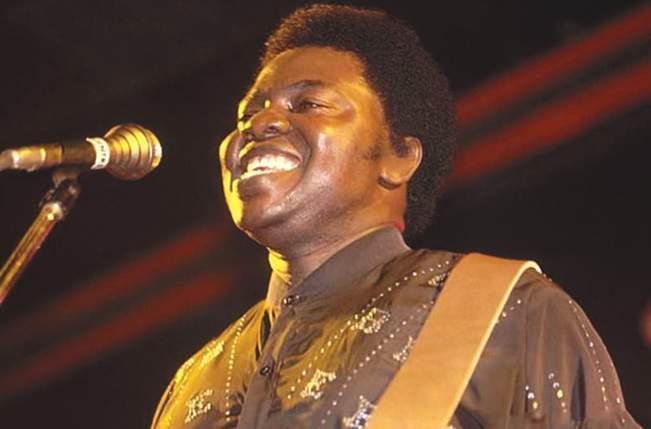
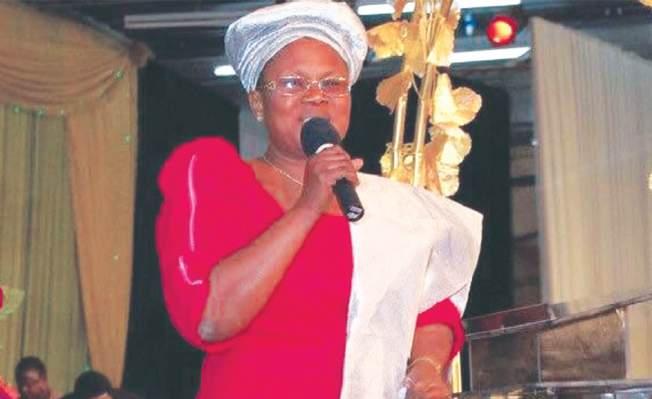
but also promote our cultural economy globally, preserving our heritage and giving us a distinct musical identity.”
The 2025 edition of Ariya Eko is part of the events marking “101 Days in Lagos,” a signpost of the cultural season, positioned to celebrate Nigeria’s Independence Day. The festival will feature seasoned music stars aged 70 and above, who have made significant contributions to the nation’s cultural landscape. Aside from live performances, the festival will include an award ceremony, symposium, and a session for young acts to
perform classic songs from legendary musicians. Additionally, exhibitions of musical relics, books, and albums will be showcased, providing opportunities for networking with Nigerian music industry gatekeepers.
Expressing confidence in the security of the venue, Bimbo revealed that prestigious venues are carefully selected to ensure guest safety. “We are working with LASTMA officials and other security agencies to guarantee a secure environment,” she added. Protecting a cultural venue for an event that significantly contributes to the economy is a top priority. To achieve this, efforts are focused on collaborating with relevant agencies to manage both human and
vehicular traffic effectively.
Beyond the entertainment, Ariya Eko educates music fans about the remarkable achievements of indigenous musicians. “In the last edition, we highlighted Chief Commander Ebenezer Obey’s record-breaking 660 songs, and this year, we'll showcase talents who’ve made significant contributions to Nigerian music globally,” Bimbo said.
Notably, album cover designer extraordinaire Lemi Ghariokwu is among this year’s awardees, having designed over 2,000 album sleeves for renowned artists like Fela Kuti, Bob Marley, and Miriam Makeba.
While Ariya Eko aims to promote Nigerian music from the aging generation, its appeal transcends age boundaries. As Bimbo, an anthropology graduate from the University of Ibadan, observes, “Every music genre has its unique audience. Afrobeats fans are predominantly youths under 30, with a few older enthusiasts, whereas our indigenous repertoire is mostly dominated by older generations with a small but growing interest from younger fans.”
Ariya Eko bridges this gap, providing a platform for like-minded fans of indigenous sounds to come together and encouraging younger generations to follow suit.
To further crystallise Nigeria’s cultural history through indigenous music, the music archivist has meticulously documented music from artistes of diverse ethnicities. This effort involves preserving musical relics and collaborating with surviving family members to ensure their contributions to the vibrant Nigerian music scene are recognised. “We’ve successfully preserved the relics and rights of some of these artists for future generations and given them their rightful place in the industry,” she noted. Some notable veterans set to perform on the Ariya Eko stage include Bolojo music pioneer Chief Tunde Elegbede, aka King Jossy Friday, Evangelist Funmi Aragbaiye, and Pa Ajobiewe, among others.
The Ariya Eko festival will also honour a distinguished group of artistes with awards. Chief Commander Ebenezer Obey MFR, 84, a legendary figure in Juju music, will be recognised for his contributions. King Jossy Friday, 85, pioneer of Bolojo music, will also be honoured. Ken Caleb Olumese, 81, renowned as the King of Lagos Nightlife, and General Kollington Ayinla, 72, a Fuji music maestro, are among the awardees. Additionally, Elder Tunde Kelani, 77, an award-winning cinematographer and filmmaker, will be celebrated for his work. Evangelist J.A. Adelakun “Amona”, a gospel music icon, and Ghariokwu Lemi, 69, a world-renowned designer of iconic album covers, will also receive awards.
Etching Footprints on London Art Scene with Hyperrealistic Paintings
Stories by yinka Olatunbosun
Nigerian-bornvisualartistand a member of the Enfield Art Circle (founded in 1932), Hillary emetuche has etched his footprints on the London Art scene when he joined a list of 37 artists to showcase five of his striking hyperrealist works at the just-concluded annual exhibition held at Capel Manor Gardens, Enfield, London from August 2 to 17.
Expectedly, the exhibition, organised by one of London’s oldest art organisations, featured works from established and emerging artists. Hillary’s collection, rooted in hyperrealism, drew notable attention for its vivid storytelling that is anchored on identity, culture, and personalities.
“my portraits target individual personalities because I believe that everyone is unique and different in their own valuable way telling a story of personal gifts and potential. I also capture the story of identity, belief systems and history,” the artist remarked, retrospectively.
Among the five exhibited pieces was “Drawing of ezinne”, a drawing that became a highlight of the exhibition. Visitors and curators alike were drawn
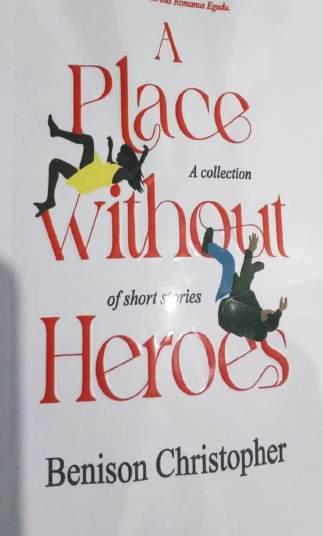
to its emotional resonance and technical mastery, with accolades for its verisimilitude and spirit.
Other portraits explored the personalities of public figures like Harry Kane and Ronaldo (Father and Daughter) capturing their individual potentials, and how they were able to harness them to greatness.
Hillary’s signature style — marked by meticulous detail and expressive depth — offered viewers a reflective engagement with contemporary African narratives in a global setting.
A personal portrait of Emetuche, “27”, explores the environment and mindset. the masterpiece tells a personal story of migration and mindset shift as Emetuche finds himself in a new culture and environment where he has to learn and unlearn to fit in and also to be a better version of himself, drawing from within his true potential.
A drawing titled “Fusillade,” shows a young soldier carrying chains of bullets tells a story of the horrors of the Biafran war. Emetuche explores this piece as a retrospective of the biafran Civil War. It has been dedicated to Gilles Caron; a French photographer who captured the guerrilla soldiers in 1968. Emetuche asks the rhetorical questions, inquisitively: Who knows whether the soldiers
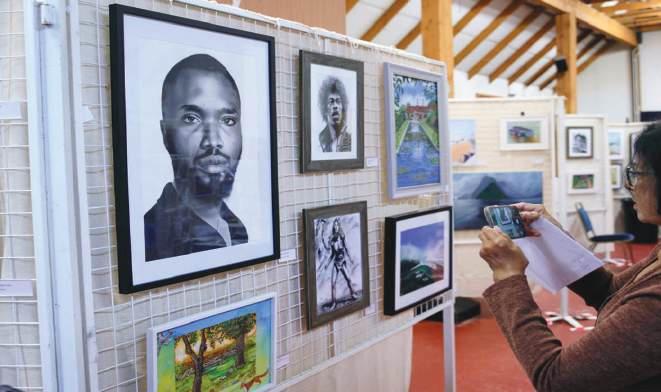
are dead or still alive? probably, these bullets may have been turned into hot fusillades and might have riddled the skin of the adversary? Interestingly, what was behind the stern look of the soldier behind?
Adding to the significance of the moment, international multi-award-winning artist Kelvin Okafor, himself a leading figure in the hyperrealist movement, attended the exhibition and personally viewed Hillary’s works. Impressed by their execution, Okafor offered curatorial advice and guidance on navigating the professional art world,
the courage to speak where others have become silenced is perhaps the means of identifying everyday heroes in a dysfunctional society. that much was gleaned at the launch of benison Christopher's collection of short stories titled A place Without Heroes. the hybrid event which was held online and at The Colossus, Ikeja, Lagos gave a foregleam into the world of the book and its societal archetypes.
A compelling collection of short stories that reflects social issues in Nigeria, including medical negligence, abuse, body image, themes of sexuality as well as spirituality in today's context, the book is the author’s purgation of emotions oscillating from personal experiences to societal challenges.
“The book was inspired by the stark reality in Nigeria where moments of crisis often reflect both the best and the worst of human nature,” the author disclosed at the book launch. “That’s especially portrayed in the titled series A place Without Heroes. I try to expose human vulnerabilities and also show moments of courage and how courageous we can be in moments where we are
confronted by extraordinary circumstances. I also want to explore how ordinary people respond when moral ideals clash with survival instinct and how systemic corruption shapes the two choices.”
While responding to questions, she revealed some grim personal episodes that compelled her to write some of the stories. For instance, “The Riverbank” which is an expose on the harsh realities many women face with medical negligence in Nigeria’s public hospitals, especially during childbirth mirrors the author’s personal experience at a government-owned hospital in Nigeria. beyond that, Christopher uncovers the truth about prevalent cultural biases that seem to place more value of male children above the female. Other themes explored in the 155-page book include economic hardship, identity, heartbreak, and resilience through various characters, highlighting the need for real-life heroes in a flawed society. through her social enterprise, the benison
affirming Hillary’s growing presence in the global art space.
Emetuche’s exhibition in London underscores the increasing visibility of Nigerian artists on the world stage. through hyperrealism, he continues to celebrate African identity while contributing to global conversations in contemporary art.
As the Enfield Art Circle continues its tradition of showcasing the power of art, emetuche’s participation not only adds to the cultural dialogue in London but also affirms his place as one of the Nigerian creatives shaping international artistic narratives.
In New Collection of Short Stories, Author Dramatises Reality for Social Change Walking
Awalk through the maze of artworks by 30 artists across generations inside epAC Studios, Ecobank headquarters in Victoria Island Lagos brought a revelation. the building houses a treasure trove, albeit understated, belonging to a private collector, mr. Andrew Ine. Some of the works in this enviable collection have been kept over three decades to crystallise the legacies of the art masters including a few unknown artists whose works captivated the collector at some time in history.
The works comprising paintings, drawings, sculptures as well as mixed media are reflective of the growth of Nigerian contemporary art through the years. Organised by Ecobank in partnership with Art Cadre Gallery and Krabhouse Gallery, the show titled “enduring Legacies: A Collector's tribute to masters” is a visual homage to shapers of Nigerian visual art across generations and ideological schools. From the Zaria rebels to the Osun-osogbo legends, works of artists -living and dead- which opened to the public onAugust 30 will keep the Lagos audience spell-bound till September 21.
The showcased artists include Bruce Onobrakpeya,
Twins Seven Seven, Kolade Oshinowo, Muraina Oyelami, Moses Unokwah, Jimoh Buraimoh, Ini Brown, and John Ogbeta. Others are Tola Wewe, rufus Ogundele, tony enebeli, Ablade Glover, David Dale, Ben Osawe, Sam Ovraiti, Oyerinde Olotu, Rom Isiche, Pita Ohiwerei, andAlex Nwokolo, among others.
At the press preview of the works, the Head, SMEs, partnerships and Collaborations, Omoboye Odu said Ecobank’s support of the group exhibition clearly demonstrates the bank’s role as a patron of African creativity and cultural heritage. She added that the initiative aligns with the “bank’s CSr focus on economic and cultural development, and complements our broader work in empowering creative entrepreneurs.”
With reference toAdire Lagos Experience, +234Art Fair, and Oja-Ògè, Odu revealed how the bank has backed several art projects and why this current show would appeal to scholars, collectors, art historians, and cultural custodians.
Andrew Ine, the private collector and centrifugal
force behind the show, who is also the CeO and Founder of Krabhouse Gallery, said his rich private collection of over 30,000 works made the partnership necessary to celebrate the creative ingenuity of the artists whose works are on display at the exhibition.
“Some of these works are over two decades in my possession and have become part of me. Displaying them here and possibly selling them, feels like a part of me is going,” Ine said.
During a brief tour of the works, Ine disclosed that every work has a story. Some of the works had travelled out of the country but due to the personal attachment he has for the works, they were carefully preserved for posterity.
Curated by Adekepemi Aderemi of Art Cadre Gallery, the enduring Legacies honours the collective spirit of resilience and innovation that runs through the history of Nigerian art.
According to Aderemi, during the process of selecting the artworks for the exhibition, she was surrounded by pieces that embody the very soul of Nigerian art.
“This exhibition is a celebration of those who defined and redefined what it means to create as Nigerians, whose work continues to shape our national consciousness while speaking power-
Christopher Company, she aims to empower women with skills and livelihoods, while supporting international students and combating social isolation. On her part, Anne eguabor, CeO of Annarobsin Catering, praised it for its relatable stories and urged youth to read it, citing personal connections to the childbirth narrative. Christopher, who holds degrees from the University of benin and teeside University, hopes her work sparks conversation and action toward positive change in society.
“The book represents voices that should not be silenced and insist on being seen. A place Without Heroes holds a mirror to our society; one that does not flatter but reveals that we are flawed, compromised and broken. Yet, we are resilient and capable of small acts of courage. these are stories of ordinary people- sometimes selfish, sometimes remarkably brave caught in extraordinary circumstances,” she said. For Christopher, courage is the first condition for survival in a broken world. “We must first find the courage within ourselves to become the heroes we once sought. And turn pain into passion and purpose or perish.”
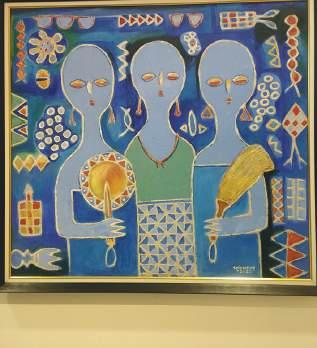
IN THE ARENA
Unending Killings of Security Operatives
The ambush and killing of 16 security personnel, mostly policemen, by armed herdsmen and local militia gangs in Katsina-Ala, Benue State, is yet another reminder that insecurity remains a throbbing conundrum, and must be confronted with decisive and effective action, Davidson Iriekpen writes
Nigeria was again hit by another tragedy recently when 16 security personnel were killed in an ambush by a combined team of armed herdsmen and local militia gangs at Agu Centre, Katsina-Ala Local Government Area (LGA) of Benue State.
The security personnel, made up of policemen and members of the Benue State Civil Protection Guards (BSCPG), ran into the ambush during a clearance operation between Tse Agbami and Agu Centre on the border with Ukum LGA. Their operational trucks were burnt, and motorbikes were carted away by the armed gang.
While the police reportedly lost 11 personnel in the attack, the others were operatives of BSCPG.
Three corpses of the policemen were initially recovered from the scene of the attack, eight others were recovered in an operation led by the state police commissioner, Mr. Ifeanyi Emenari.
The latest attack comes on the heels of data released last week showing that 53 security operatives were killed across the country in just two weeks. The casualties included soldiers, police officers, personnel of the Nigerian Security and Civil Defence Corps (NSCDC), immigration and customs officers, vigilantes, members of the Civilian Joint Task Force (JTF), and state community watch groups. The figure did not include unreported cases.
Data released last December had shown that no fewer than 326 security personnel were killed between January 2023 and October 2024. They were reportedly killed by bandits, hoodlums, gunmen, Boko Haram terrorists, cultists and armed robbers across the country. In addition to the fatalities, several others were abducted.
Last June, 17 soldiers on anti-banditry operations were killed in the Bangi community, Mariga Local Government Area of Niger State. Though unofficial reports claimed that 20 soldiers were killed in the ambush, a statement by the Acting Director of Army Public Relations, Lieutenant Colonel Apolonia Anele, put the figures at 17.
Since insecurity worsened in the country, not only have thousands of civilians been killed, thousands of security personnel have
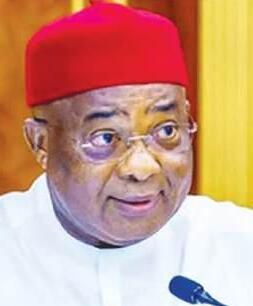
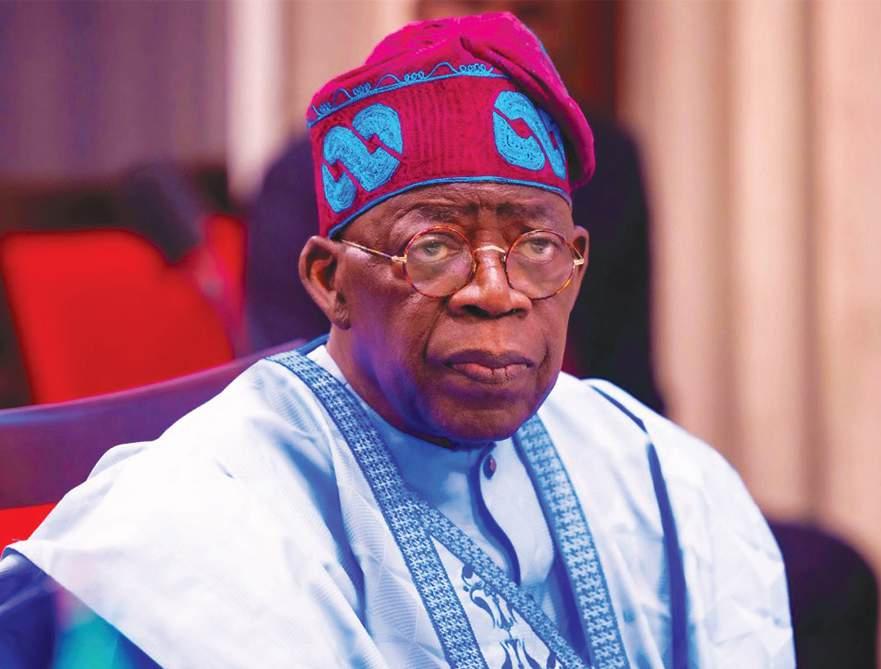
also fallen too. This makes the rate at which security operatives on duty are being killed across the country increasingly alarming.
While many Nigerians appreciate the risks that security personnel take in the course of carrying out their lawful duties, it has become increasingly important for them to be more proactive in performing their professional duties so as not to become vulnerable to attacks.
They also need to improve their capacity for intelligence gathering and react professionally to intelligence reports to forestall attacks from ambushes by non-state actors.
With disturbing reports of violence across the country, isn’t it high time the federal government took decisive action to end the insecurity ravaging Nigeria?
A country’s security architecture is its pride. When it is reduced to sitting ducks by rag-tag armies of non-state actors as it is happening now, the country loses its pride.
It is therefore important that the government takes a decisive step to halt this sacrilege now and deal decisively with the criminal elements and their sponsors that have been holding Nigeria to ransom.
The federal government must rise to the responsibility of ensuring that this is stopped. The country’s security operatives have paid too much price in the line of duty, dedicating their lives to the safety and stability of the country. The recurring killings should serve as a wakeup call to the government to better equip and motivate security operatives. Security must become the foundation of governance.
Not a few analysts have advised governments at all levels to address the underlying social and economic issues that are fuelling violence. This could involve investing in programmes that address poverty and unemployment, as well as increasing access to education and other basic services.
They also advocate collaboration between governments, security agencies and the communities affected by violence, to ensure that they have a voice in the process of addressing the issues.
There have always been allegations in some quarters that the criminal elements who perpetrate these killings have the backing of desperate politicians who in their bid to cling to power or remain relevant, bankroll them to
p OLITICAL NOT e S
wreak havoc and destabilise the polity. This is why the federal government must urgently clamp down on them.
This latest killing must not be swept under the carpet like others. It is one too many.
The Inspector General of Police, Mr. Kayode Egbetokun was rise up to the occasion. The perpetrators must be fished and dealt with accordingly.
What manner of a country will almost on a daily or weekly basis bury her men in uniform and not look for a solution?
It was against this backdrop that northern elders on the platform of the Northern Elders Forum (NEF) recently called on President Bola Tinubu to immediately declare a state of emergency in the entire northern region.
In a statement by its spokesperson, Prof. Abubakar Jiddere, the forum expressed grave concern over the “relentless wave of violent attacks, abductions, and killings” across the region, stressing that the federal government can no longer afford to delay decisive action.
The group called on Tinubu’s administration to adopt a multi-pronged strategy that includes declaring a state of emergency in Northern Nigeria to reflect the extraordinary scale of the crisis.
Another northern group, the Northern Ethnic National Forum (NENF), echoed similar sentiments. The group, a coalition of leaders from the diverse ethnic nationalities of northern Nigeria dedicated to promoting unity and advocating good governance, in a statement by its Convener, Dominic Alancha, said that while the administration has taken bold economic reforms, the deteriorating security situation and ineffective leadership demanded urgent corrective action.
Declaring that its demands were driven by patriotism rather than malice, the group warned that the survival and prosperity of Nigeria, especially the North, hangs in the balance. It called for operations to flush out terrorists, dismantle their networks, and restore permanent order in the country.
Without security, no government — federal or state — can drive policy effectively. Insecurity not only cripples development but also serves as a disincentive to investment. No country can survive, let alone grow, when non-state actors are allowed to wield arms and hold society to ransom at will.
what’s Uzodimma Looking for in Abuja?
Governor Hope Uzodimma of Imo State is under attacks by his critics for always being spotted at the Presidential Villa in Abuja.
The governor was again seen at the Villa when Governor Siminalayi Fubara visited President Bola Tinubu on a thank you visit last week.
Since President Tinubu assumed power in 2023, the governor is a regular face in the federal seat of power.
Recently the governor alongside Secretary to the Government of the Federation (SGF), Senator George Akume; Governor Babajide Sanwo-Olu of Lagos State were seen waving the president off as he was departing to France on vacation.
Analysts argue that Governor Sanwo-Olu who managesthebiggesteconomyinthecountry,andwho
is the closest governor to the president is not seen at the Presidential Villa as frequently as Uzodimma.
Since Uzodimma became governor in January 2020, his state has become the hotbed of insecurity in the South-east. Though the security situation in the state has slightly improved, many believe that it still remains the most unsafe state in the South-east.
The governor has been accused by his political opponents of not concentrating on governance in the state. They alleged that he is always unavailable to solve the challenges facing the state.
It is not in doubt that once in a while governors visit the president to brief him on issues concerning their states. But critics allege that Uzodimma’s trip
to the Villa or Abuja has become too frequent.
His political opponents claim that since he became the Chairman of the Progressives Governors’ Forum, he has practically been gallivanting Abuja and other parts of the country for political reasons at the expense of governance in Imo State.
During the administration of President Muhammadu Buhari, Uzodimma was also a frequent visitor to the seat of power when the state was seriously in turmoil with criminal elements killing and kidnapping residents and travellers passing through the state.
The governor’s frequent trips are certainly not cheap; it involves a huge burden on the state’s purse. However, it is not too late for him to learn to stay at home and tackle the myriads of security challenges in the state.
BRIEFING NOTES
Probing Malami’s Foreign Mercenaries Importation Petition
The recent petition to the security agencies by a former Attorney General of the Federation and Minister of Justice, Abubakar Malami, alleging that powerful agents of the ruling All Progressives Congress were collaborating with Lakurawa terrorist group and foreign mercenaries to destabilise Kebbi State should not be swept under the carpet like other similar allegations, ejiofor Alike writes
Since 2015 when the All Progressives Congress (APC) sacked the Peoples Democratic Party (PDP) from power, allegations of importing foreign mercenaries have continued to be made against the ruling party by its former chieftains, who were part of the party’s success story.
The spread of bandits and foreign mercenaries to all parts of Nigeria after the 2015 general election fuelled the allegations that agents of the ruling party had imported bandits from the neighbouring countries to destablise the administration of former President Goodluck Jonathan.
It is shocking to many Nigerians that security and intelligence agencies have refused to conduct investigations into these allegations while bandits and new terror groups continue to overrun the country.
In the North-west, the Lakurawa terrorist group in the northern part of Kebbi State and Sokoto State, was said to have entered Nigeria from Mali.
Similarly, in the North-central states of Niger and Kwara, another new terror group, Mahmuda, is wreaking havoc.
These groups also threaten the security of other states that share boundaries with these states.
It is against this background that the allegations of collaborating with Lakurawa terrorist group and importing mercenaries to destabilise Kebbi State levelled against the agents of the ruling party by a former Attorney General of the Federation and Minister of Justice, Abubakar Malami, should be investigated.
In a petition dated September 10, 2025, and addressed to the National Security Adviser (NSA), Mallam Nuhu Ribadu; the Department of State Services (DSS), Inspector General of Police (IG); the Comptroller-Generals of Immigration and Civil Defence, as well as other security agencies, Malami alleged a coordinated plot to destabilise Kebbi State through the importation of political thugs, foreign mercenaries, and illegal arms trafficking.
He claimed that powerful political actors were behind the security threats in the state.
According to the statement issued by his Special Assistant on Media and Publicity, Mohammad Doka, the former AGF, who also leads the African Democratic Congress (ADC), in the state, accused some politicians of collaborating with foreign mercenaries from the Niger Republic and arming them through illegal channels.
The petition further accused some of the political figures in the state of having covert ties with the Lakurawa terrorist group.
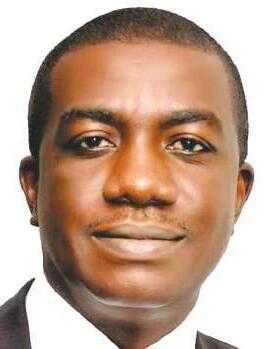
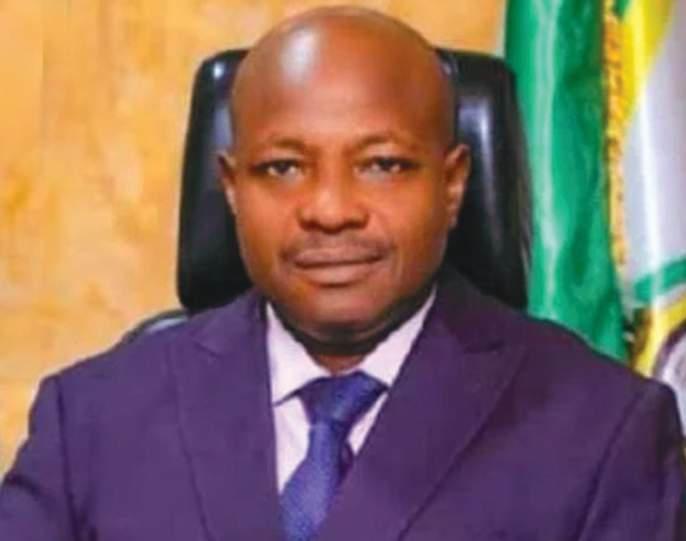
Malami described the development as “a national security emergency” that transcends local politics and poses a direct threat to Nigeria’s sovereignty.
He, therefore, urged the NSA and other security chiefs to urgently coordinate interagency efforts, secure border communities against infiltration, and investigate the alleged collusion between state officials and terrorist elements.
Malami had earlier alleged that suspected thugs attacked his convoy in Birnin Kebbi on September 1, 2025, vandalising about 10 vehicles and injuring his supporters.
He described the incident as “painful and unfortunate,” alleging the attackers came from the APC secretariat.
But the APC denied involvement, with its spokesman, Isa Assalafy saying that, “no government that enjoys the massive support of the people and is confident of victory in 2027 would want the peace of the state disrupted.”
He claimed that it was the security agents in Malami’s convoy that fired shots.
However, without waiting for security agencies to conduct an investigation, the Kebbi State lawmakers at the National Assembly, led by the former governor of the state, Senator Adamu
Aliero, also dismissed Malami’s allegations.
The federal lawmakers also made a counter allegation that the former AGF imported political thugs from Sokoto and other neighbouring states to attack the APC secretariat in Birnin Kebbi.
But the pertinent question to ask is: If Malami imported thugs into the state, why did the federal lawmakers wait until the former AGF raised such grave allegations in his petition before they came up with the accusation?
The lawmakers described Malami’s petition as baseless and politically motivated, accusing him of trying to undermine peace in the state.
“The allegations are false, unfounded, and desperate. Ironically, during Malami’s condolence visit to Birnin Kebbi, he brought in thugs who attacked the APC State Secretariat. This is an unprecedented development in Kebbi politics, which has always been known for peace,” the lawmakers claimed.
They also urged the security agencies to invite the former minister.
In his response, Malami accused the lawmakers of prioritising politics over the safety of citizens, stressing that their argument was misplaced.
“It is misplaced in the sense that they (the lawmakers) are not calling for increased
NoteS for file
security, even when people are dying every day as a result of bandit attacks. Bandits are attacking, sending people away, and destroying their properties, including their cattle, among others.”
Meanwhile, the Kebbi State House of Assembly also dismissed as “baseless and politically motivated” allegations by the former AGF.
Speaking at a press conference in Birnin Kebbi, the Speaker of the House, Muhammad Usman said Malami’s claims were deliberately designed to incite fear and smear the reputation of both the government and the people of Kebbi State.
Kebbi State governor, Nasir Idris, has also responded to the petition by the former AGF, describing it as a campaign of calumny aimed at discrediting his administration.
Speaking while receiving the leadership of the Kebbi State Coalition of Civil Society Organisations at the Government House, Birnin Kebbi, the governor condemned what he described Malami’s allegations that his government was importing mercenaries as false and frivolous.
“We have just held a security meeting, and security agencies are already investigating such petitions. This is the height of irresponsibility by the opposition because it is pure falsehood,” he said.
Apart from Malami’s allegations, the administration of Governor Idris had faced public backlash following the arrest of a social media influencer who had criticised the poor state of the healthcare system in Kebbi State.
While Nigerians await the actions of intelligence agencies on Malami’s petition, the former minister had recently confirmed honouring an invitation by the DSS over the attack on his convoy in Kebbi State earlier this month.
In a statement issued and shared on his personal social media handle, Malami disclosed that the invitation was connected to the September 1, 2025, assault on his person and convoy.
He described the development as part of ongoing investigations triggered by petitions, including one he earlier submitted to the DSS over threats to his life.
“I can confirm that I have been invited by the Department of State Services (DSS) to support an investigation into an attack on my person and convoy in Kebbi State on the 1st of September, 2025,” Malami said.
The DSS and other security agencies should carry out open and transparent investigations into the former minister’s petition to unmask those behind the importation of terrorists that unleashed terror on Kebbi State and other parts of the country.
who Are Beneficiaries of DBN’s N1tn empowerment?
The presidential candidate of the Labour Party (LP) in the 2023 elections, Peter Obi, last week questioned the Development Bank of Nigeria’s (DBN) claim that it has disbursed more than N1 trillion to micro, small and medium enterprises (MSMEs).
The former Anambra State governor, who raised the concern in a post on his X handle, said by simple conversion over the said period, this amounts to more than $1billion.
DBN had said it disbursed over N1trillion in “empowerment interventions” since 2015, with 62 per cent benefiting women. The Managing Director of DBN, Tony Okpanachi, said the initiative aims to improve women’s access to finance for MSMEs.
But Obi claimed that findings from his
interactions showed that most business owners had no knowledge of the bank’s existence. He noted that if the bank had indeed released over $1 billion into the MSME space in the form of small loans averaging $1,000, at least 1 million small businesses would have benefited.
If indeed such an amount had been deployed to support enterprises, the results should be evident. For instance, if $1billion was disbursed in small loans averaging about $1,000 each, it could have supported at least one million small businesses.
The ripple effect of this would have been no less than three million new jobs, with visible growth in enterprises, an improved economy, and measurable progress in lifting people out of poverty.
DBN needs to come clean. bank needs to disclose details of the alleged disbursement, including the list of beneficiaries, the enterprises supported, and the jobs created. Empowerment should not be reduced to slogans or political promises but must be demonstrated through measurable outcomes. The reality before Nigerians today tells a different story: unemployment remains at a record high, businesses are struggling to survive rather than thriving, many enterprises are shutting down or relocating outside Nigeria, and poverty is deepening rather than abating. So the critical question is: if ₦1 trillion truly left the coffers of DBN to empower Nigerians, where did the money go?
Governor MutfwanG:
I’m Passionate About Improving Security, Transforming Plateau
plateau State Governor Caleb mutfwang, in an exclusive interview with members of the Nigerian Guild of editors, said he is running an all-inclusive government, carrying every segment of the society along, in his mission to provide adequate security for the transformation of all sectors of the state’s economy
Plateau State has been in the news for over two decades for insecurity. Where does the state stand today on this issue?
Plateau’s security challenges are unique. Unlike some parts of the North-west where bandits set up permanent camps, our attackers typically infiltrate from outside, launch attacks, and retreat.
We share borders with multiple states. Armed groups cross from Taraba State through River Ibi in Karim Lamido, smuggling weapons via river routes. Others come through Nasarawa State’s Wamba axis or southern Kaduna, hitting areas like Bokkos and Mangu LGAs before fleeing.
Our darkest moment was the Bokkos massacre some months ago. These attacks were particularly devastating in the Mushere area. Some communities are now deserted, creating a significant population of internally displaced persons (IDPs) and we are doing our best to address their plights. Initially, we considered returning IDPs quickly to their homes, but an ambush on our escorted tractors during farming preparations revealed how dangerous the situation was.The attackers unleashed heavy firepower on our security escorts, forcing us to retreat and rethink our approach.
To improve surveillance, we’ve deployed drones.These have captured bandit movements and enabled ground troops to respond quickly. However, we need more air support, which isn’t always available, and manpower remains a huge challenge. Plateau has vast ungoverned spaces that are hard to secure. To address this, we recruited 1,450 young operatives who will begin training next week under Operation Rainbow, our community-based security outfit.
Kidnapping is another scourge. It has sadly become a booming criminal enterprise nationwide, with proceeds sometimes channeled into religious or communal activities. The planned police recruitment of 30,000 officers is welcome, but without proper deployment strategies, numbers alone won’t solve the problem. Beyond recruitment, we must rethink our security architecture, blocking vulnerable routes, prioritising resources, and empowering local security initiatives.
I strongly support state police. Command structures managed from distant Abuja cannot effectively address local threats. While some fear political misuse, safeguards can be implemented. Federations like the United States operate multiple policing layers successfully. I am encouraged that President Tinubu now supports this idea, and I am confident Nigeria will get there with the right political will.
The Akwanga–Jos Road is in terrible shape. What feedback are you receiving from Abuja about its reconstruction?
I’m actively pursuing the Akwanga–Jos Road. The President has approved its inclusion among his legacy projects, and we’re grateful.The design, initially awarded in 2018 to CGC under President Buhari, was later reviewed and upgraded to a four-lane asphalt standard. Now, what we urgently need is funding commitment and budgetary inclusion. This road is vital. It is the gateway to the North-East and a critical trade and tourism corridor. I appeal to the media to use its influence to advocate for its prioritization.
As ‘The Home of Peace and Tourism,’ how is Plateau revitalising its tourism sector?
On tourism, Plateau has world-class potential, but past efforts were scattered.We now have an agreement with the UNDP to create a Tourism Master Plan. We want to define tourism zones, build proper infrastructure, and attract serious investors, especially in hospitality.
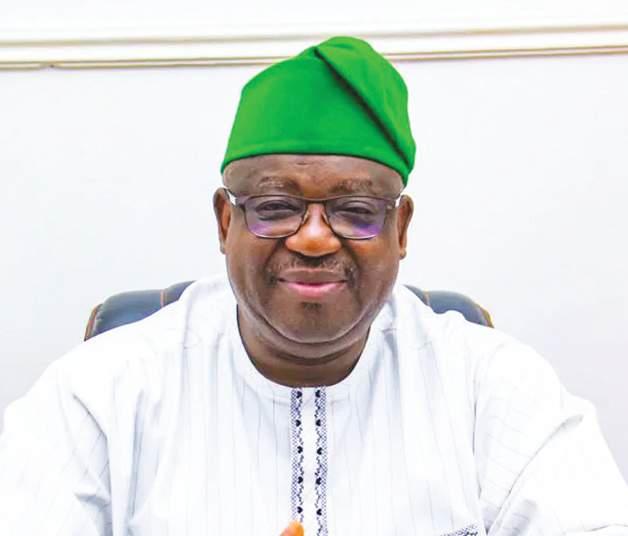
Our goal is to return Plateau to its rightful place as Nigeria’s premier tourist destination.
Since 2001, several committees have studied Plateau’s crises, but little has been implemented. What will happen with the General Rogers-led Fact-Finding Committee?
The Rogers Committee’s report will not gather dust. I plan to forward it to the president and heads of security agencies. We are committed to acting on its recommendations rather than shelving it, as has often been the case in the past.
Many argue Plateau’s violence isn’t mere farmer-herder clashes but organized attacks with land-grabbing motives. What’s your plan for a lasting solution?
Land grabbing is indeed a complex challenge. Even where laws exist, enforcement is difficult. Still, today, no local government area in Plateau is completely off-limits, unlike in some northern states. The most vulnerable are border communities where terrain delays security response. To address this, we’re opening access roads, improving rapid deployment, and exploring legislative, judicial, and administrative solutions. With God’s help, we will overcome this threat.
Your administration is reviving state media. How will you ensure sustainable funding for these outlets?
We uphold press freedom. No Plateau-based media outlet can accuse us of hostility or censorship. Constructive criticism is welcome, but fabricated stories, like some from the opposition APC are damaging. Misleading headlines such as “Jos Boils Again” for events far from Jos harm our image internationally. Some European embassies have even warned their citizens against Plateau because of such sensational reports. We’re not asking anyone to suppress tragedies, just to report responsibly to de-escalate tensions.
We saw farmers displaying large amounts of produce on roadsides. If they can’t sell, what happens? Will the state step in, as with marketing boards?
Plateau farmers have faced neglect for decades.
To address this, we established and strengthened the Plateau Commodities Marketing Company to help in this regards. When egg prices crashed last year, we bought eggs, paid farmers, and distributed them to schools—improving student nutrition and stabilizing the market.
This year, maize prices have dropped due to mass importation. We’re exploring strategies like value-added processing to help farmers avoid losses. While Lagos has more funds, Plateau pioneered this model. We intend to hold our ground and ensure our farmers thrive.
Plateau is Nigeria’s sixth most expensive place to live, with inflation at 24.8%. How is your government tackling housing, services, and energy costs?
Jos is expensive mainly because of housing shortages. To ease the burden, I recently laid the foundation for a civil service housing estate. We’ve identified more land for additional estates and hope to deliver substantial housing within two years. In the meantime, we’re appealing to landlords to exercise compassion while we explore regulatory options to protect tenants.
Ungoverned spaces remain underutilised and prone to insecurity. How will you attract investment to these areas?
Governing is far different from campaigning but when you enter the “jungle,” the realities shift. We’re improving road networks and essential infrastructure to make remote areas attractive for investors, which in turn will reduce insecurity by creating opportunities and surveillance.
Women are underrepresented in Plateau politics and governance. What measures are you taking for gender parity?
We have been deliberate about women’s inclusion. Our Deputy Governor, Accountant General, many commissioners, agency heads, and permanent secretaries are women. We’ve encouraged the PDP to reward party structures that elevate women beyond traditional “women leader” roles. This is a journey, but our administration is fully committed to achieving gender parity, including advocating for more women in the legislature.
What about the so-called “Wall of Jericho” in Angwan Rogo? How are you addressing long standing divisions?
I studied at UNIJOS when Angwan Rogo was easily accessible. Over the years, divides hardened. But under my watch, we held the most peaceful local government election in Jos North. Claims that I dislike Muslims are false. I’ve worked to uplift the Muslim community and foster unity. Plateau belongs to all faiths and peoples.
Mining pits litter the Plateau due to past activities. What’s being done to reclaim them and tackle illegal mining?
Illegal mining is a national crisis. Some cartels are wealthier than states, making direct confrontation difficult. Earlier this year, we suspended mining to regain control but faced pressure due to the livelihoods involved. Mining has led to school dropouts, drug abuse, sexual crimes, and fatal accidents. Mining regulation is federally controlled, but we’re using environmental laws and the Land Use Act to limit damage. We’re organizing locals into cooperatives for stronger bargaining power and insisting that host community agreements be respected. Plateau has over 4,000 abandoned pits, and rehabilitating them will require significant external funding, which we’re actively seeking.
Plateau once exported rose flowers. What’s your administration doing to revive horticulture? We’re reviving horticulture and agro-exports. The Coffee Festival marked the reawakening of Plateau’s coffee industry. We’re improving storage and processing to reduce post-harvest losses and boost exports. Once the Special Agro-Processing Zone is operational, we’ll transition from primary production to large-scale processing.
On a study trip to the Netherlands, we learned their potato farms yield 40 tons per hectare compared to our seven, despite doing only one cycle annually. With improved practices, Plateau can achieve two or more cycles and far higher yields.
NIPSS has done significant work on national issues. How are you collaborating with them? Our partnership with NIPSS is robust. They recently conducted a study on Plateau’s security situation, and their recommendations are shaping our current strategies.
Let’s talk about politics. Where will you be in 2026 now that politicians are cross carpeting from one political party to another?
By God’s grace, I’ll remain where I am. My politics has always been guided by God and the people. In 2023, both spoke clearly. PDP is back on the right track, but the future is in God’s hands. Every political season has its own dynamics, and we will face them with faith and integrity.
BaBa-ahmed: INTERVIEW
Our Crisis Stems from Electoral Fraud, Not Just Insecurity
INEC betrayed Nigerians in 2023; Tinubu can be defeated in 2027
the vice-presidential candidate of the Labour party in the 2023 general election, Datti baba-Ahmed, has launched a scathing assessment of Nigeria’s democracy, declaring that electoral fraud is the root of the nation’s crises and not just insecurity. In an interview with Adedayo Adejobi, the Lp chieftain, also reaffirms his loyalty to Peter Obi. Excerpts:
Haveyougonetorealignyourregistration with the Independent National Electoral Commission (INEC)? . If yes, what do you feel about that process?
Normal. Nothing special about it.
You’ve been very critical of INEC. What’s your assessment of the commission in the recent byelections it conducted?
Let’s get something straight by marking out certain boundaries. A statement of fact is not in effect a criticism. The Nigerian media reports insecurity better than what opposition members or politicians do.
But when the mainline media reported, it’s normal. When an opposition politician says there is insecurity or those who promised security have failed in providing that security, then it becomes criticism. In reality, it’s a statement of fact. Over and beyond that, some people go to categorise statements of fact as personal attacks. Some people go to the extreme level of saying that they are insults.
Some people who do politics are in the business of politics to make their societies better. In doing so, you cannot afford to close your eyes. Others make a living by actually undoing what people like me are doing.
And for what is left in the rest of this administration, you said there is security and that the economy has improved. Let’s see it. I I don’t have energy to spend on criticising INEC. They conducted a fraudulent election which is inconsistent with the Nigerian constitution. And I stated it. They have finished us. They have declared a government that is in place and providing the kind of governance they can provide.
Now, having cleared this, let their conscience, Nigerians and posterity judge them.
In a few months, Professor Mahmud Yakubu’s tenure will gradually wind down. What are your own views on who should be the next head of INEC as 2027 elections approach?
A credible person. Not somebody who would clearly read what the constitution provides, and go ahead to clearly breach the constitution. Throughout human history, individuals make or break nations. The said man is going to be responsible for what is happening in Nigeria. And the arm of the government which upheld the pronouncement, is wrong.
But you were proven wrong by an institution of state - the courts.
We were not wrong. The courts have the power to say you are wrong even if you’re not wrong. And we were not wrong. That election was rigged, and till date the election results are not consistent with the Nigerian constitution.
I would rather we talk about the Fourth Republic and the average Nigerian citizen for once, because the Nigerian politician, the Nigerian elite and the leadership recruitment is flawed.
Because our elections are at the heart, when you
don’t have the right leader, you are set for a disaster. And that is why it is important for us to get it right in the choice of those who conduct our elections, as it determines everything I couldn’t agree more with you that our leadership recruitment is all and everything about Nigeria now. Beyond insecurity, electoral fraud is right now the single most important fact to be addressed. The way we have it now, insecurity is derived from election fraud. Nigerian elections gave birth to the kind of insecurity we have today. Corruption is aggravated by the kind of electoral fraud that we have. The destruction of our youth, our systems, including the judiciary. These are all guaranteed by the types of elections we hold. So yes, our leadership recruitment is the bane of our problems today. All Nigeria needs to prosper is good leadership.
We underestimate how industrious Nigerians are. A Nigerian from a badly disadvantaged state raises a little capital and you find him in China or Vietnam creating businesses out of necessity. Come back to Lagos or Abuja and those people are thriving. All we need in Nigeria today is good leadership and everything else will fall in place.
Insecurity will be sorted with the right leadership, but to get the right leaders, you must produce them through the right way.
Did 2023 offer the opportunity to get good leadership right? If not, will 2027 offer the possibility of getting it right as a people?
I doubt 2027. 2023 was not exactly there. 2015 was when Nigeria was let down, and we realised that some people are in Nigerian politics for the wrong reasons. It took six months to form the government, corruption started afresh, and insecurity took new dimensions.
Indeed, Nigerians were disappointed in the Buhari government. Was there something that Buhari could have done differently?
Absolutely. I did mention that some people were in the game for the wrong reasons. And I think we’re not far from the truth in that regard. Here was a retired Army General removed from power at 42. No trade to his name. The first thing to do of course after coming out was everything.
The ecosystem around this individual was all about party contribution. It happened in 2007, 2011 and then 2015. This individual came into the game for the wrong reasons. Without party contributions, that ecosystem would starve. So when they got power in 2015, it was like wolves finding it so easy. Corruption then started afresh.
Some of the people from the 2015 ecosystem are in the ADC, now saying that they want to fix Nigeria. What are your thoughts about that? They are deceiving us.
The ADC you mean?
Yes.
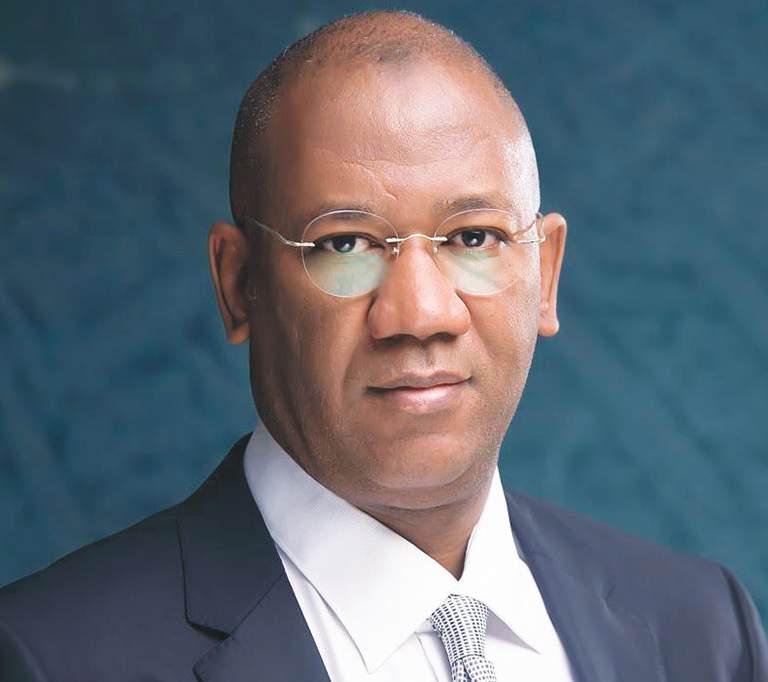
•Baba-Ahmed
I thought you were one of them?
No, I’m in the Labour Party. I’m a Peter Obi man. I still want him to come back to Labour Party and contest 2027.
Whatever political party you belong to, Nigeria is Nigeria and we need to care for the well-being of our dear nation. Are we on the right track? Are we likely to get things right?
One of my professors, the Director at Harvard Business School, wrote on a goodbye note to me, and I quote: “But I want you to be more patient and tolerant about the way you’ll be misunderstood because of the way you present and what you work on in your mind is usually not the typical.”
I have kept that at the back of my mind, and apparently he’s not just the only one who said it. Development does not exist in nature. You have to make it. If you spend a billion dollars on security and you get $50 million dollars worth of security, you would definitely have insurgency in the North-east, banditry in the North-west. About 95% of the funds are in the pockets of political groups and individual interests. Everybody knows the story of David on Goliath. David procured the winning formula, the stone. Have we procured our development? Have we procured our future? No. Are we efficient in doing that? No. Corruption happens as a result of weak procurement, which thrives on personal, group, political or electoral interest-transactional life.
Now, do you have leaders who will be able to remove these interests? Yes. Willpower. Peter Obi and I were willing to do that in 2023.
Do you have the formula to fix Nigeria? We have the formula to do that.
Beyond the formula is the realisation of Nigeria. It does look like we are a nation divided, and as such can never see development? How do we mend the divided fibre of our nation?
You don’t need to be educated to know the difference between right and wrong. Without sounding academic, our case is like a pyramid.
At the rock bottom is basic literacy of a nation. Just above it you have civic awareness , social enlightenment, education and professionalism. And this is the way almost all societies are structured. What is desirable is that there be no gap if you take the society for a square, and that the square be filled by the percentage of the population that are literate, enlightened, educated and professional.
Historically, there’s a small number of medical doctors, engineers, architects, PhD holders and all that. You can’t have 100% of the population and that’s why it goes up as a pyramid.
The actual point therefore, the level of civic awareness shows how literate the Nigerian society is, and the unity index is not good.
Let’s go back in time and open up the conversation and put that on one side and then contrast with the very stable, peaceful and prosperous countries of the Middle East, the monarchies. Most American presidents after swearing in, among the first places they go is the Middle East. Donald Trump was there. There wasn’t a single democracy.
I plotted on a graph the stability and the type of government. This was in 2022. And in the Middle East, all the monarchies are stable and prosperous and peaceful. I regret saying democracy is sweet.
The arguments behind it are sweet but democracy is also delegated. And democracy is for the people who can’t practice it.
Is democracy working for us or not?
I love democracy. I want it. If you cannot practice democracy, democracy is not for you. And I’m not saying that we should stop practicing democracy today. What I’m saying is that we must practice it. And it is not rocket science. It’s not impossible to practice. The first thing we should do is that our electoral system must produce the leaders that are elected by the people. Not the kind of election we saw in 2023.
The second perspective-are Nigerians demanding their rights? Regrettably, no. And I think that is what
Beyond the Colloquium on Africa’s Future:The Challenge of Education and Corrupt Attitude
Africa has always been a major issue in international relations, especially in the foreign policies of many countries of the world. Africa is generally known as a terra cognita for raw materials for which the whole world, especially the colonial powers, have been scrambling. Some see Africa as a continent of exploited people, widespread poverty, pit-holes, political instability, insecurity, and non-development.
And true enough, more than half of African population live in extreme poverty. The continent still largely suffers from weak governance and inadequate industrialization. The educational systems in Africa are good in producing job seekers but not good enough to produce job creators. As such, Africa has a high level of unemployment. Even though Africa has critical raw materials, it still remains largely primary producers. Healthcare and educational systems are fraught with poor infrastructures. Political governance systems are such that leaders hardly accept to leave power. They want to die in power.
Most regrettably, the whole of Africa is often treated as a country like the United States, Russia and China. Africa is not a country but one of the regions of the world. It is a continent of 54 sovereign states with rich cultures. In spite of this, a single sovereign state can act unilaterally with the whole of Africa. France laid the political foundation with the establishment of Franco-African summits. We have Japan-Africa, Russia-Africa, China-Africa, etc. summits. By implication, the continent of Africa is being treated as nothing more than the equivalent of one country. The extent of bad governance, myopia of African leaders do not allow them to see clearly the shame in it. They are all happy to frolic around to accept pottages on a platter of gold. This situation has not been helpful in addressing unemployment and underemployment in Africa.
In spite of more than three decades of post-independence governance, African countries are yet to find their feet. They are still largely dependent on export of primary products. They accepted to accommodate unwanted criminals in the United States. It is apparently against this background that a colloquium on ‘The Future of Africa’ was organized as part of the Festschrift in honour of Professor Tunde Adeniran who will turn 80 tomorrow. On Thursday, 25 September, 2025, a Festschrift was unveiled along with four other books at the University of Ibadan.
The Festschrift
The Festschrift is entitled “Intellection and Global Governance: A Festschrift in Honour of Tunde Adeniran.” As a title, it is quite thought-provoking. First, how are the countries of the world generally governed in such a way that they are different from Africa’s type of political governance? How is the management of global governance done that Africa has not been able to benefit from it? The general methodological framework for the Festschrift is derived from the word, intellection, on which much attention was focused in our last column here. Today, the review of the Festschrift can be done at two levels: format and content analysis.
At the level of formatting of the Festschrift, it has a pagination of 561 pages. It is published in September 2025 by the Kraft Books Limited in limp edition, cased edition without jacket, and cased edition with jacket. The dimension of the Festschrift is 9” by 6”. The paper used for printing is about 75 grams and light-yellowish in colour. It is printed in English language with British and American spellings. The Festschrift is chapterised into 22 that are grouped into four sections: “Conceptual and Theoretical Perspectives”; “Conflict, Security, and Governance in Africa”; “Bureaucracy, Democracy, Governance, and Development”; and “The Media, Society and National Discourse.” The Festschrift has an ISBN-13 number, that is to say the Festschrift has a modern international standard book number, adopted in 2007 in order to enhance the availability of unique identifiers worldwide. Before 2007, it was the ISBN-10 of 10 digits that was in vogue. The editors are sound scholars: Professor Gani Yoroms and
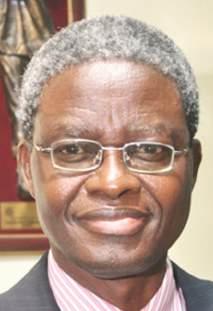
: 0807-688-2846 e-mail: bolyttag@yahoo.com
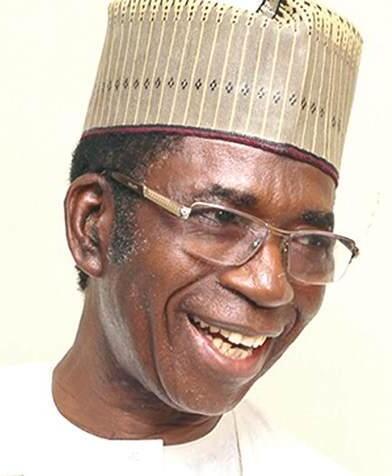
Chief Femi Melefa. Professor Yoroms is Professor of Political Science with specialization in political economy and international relations. He was an ECOWAS Regional Research Coordinator. Chief Femi Melefa is a Management Consultant with a diverse background and accomplishments. He was a former Director, Tertiary Education Trust fund (TETFund).
At the second level of content analysis, the editors did not insist on a uniform methodology because of the variety of articles with multidisciplinary characters. As the editors put it, ‘the academic orientation of individual contributors dictate their methodologies and mode of inquiry.’ Professor Elochukwu A. Ucheazu explained this point further in his foreword to the book thus: ‘Most of the scholars whom the reader will encounter in this book are eminent in their own fields and distinguished in their contributions to scholarship. They do not only spread the thoughts of others but endeavour to contribute to new systems of thoughts.’
In Section 1, which focuses on conceptual and theoretical perspectives, the point of emphasis that cuts across the four chapters, are issues of governance and nations building in Africa. For instance, Professor Gani Yoroms and Chief Femi Melefa, noted in Chapter 1, how Tanzania, Guinea, Angola, Mozambique and Ghana, etc. resisted subordination to neocolonial Western imperialism and how they were sanctioned. They not only drew attention to Professor Tunde Adeniran’s lamentations that the
Grosso modo from the colloquium, several observations were made that were noteworthy for the future of Africa. First, Professor Hassan Saliu noted the depressing level of legitimacy being enjoyed by African leaders and that has prompted the withdrawal of citizens from the political and governing processes. Secondly, Chief Femi Melefa said what is germane to the various submissions is the key role education can play in Africa’s development. It is really not the dearth of education that is Africa’s problem, but the non-willingness of the leaders and the led to apply applicable philosophies. Professor Gani Yoroms said the dearth of intellectual superiority and moral quality to provide exceptional governance on the African continent is appalling. This has made Africa to continue to experience collapsing institutional mechanism of the state. Professor Tunde Adeniran said the developed and prospering societies of the world are knowledge-driven. The acquisition of knowledge, through education, is the key to development, peace and security of any nation. Senator (Prof.) Oserheimen Osunbor posited that the future of Africa will be shaped by natural phenomena (geological activities and climate change) and human factors (Corruption, population, weak institutions, poverty and insecurity). He foresaw that some million years from now, the eastern part of Africa could break off to form a new Continent. Ambassador (Prof) Jerry Ugokwe said the participants at the colloquium had the key to Africa’s future, noting that Nigeria’s National flag, gubernatorial and presidential seats carry coat of arms, that are tainting because they are contrary to what is pledged in the National Anthem of Nigeria
postcolonial rule never succeeded in meeting the aspirations of Africa, but also explained his strong belief that democracy is ‘the only model for Africa to take grasp of and address its challenges.’
In the same vein, in Chapter 2, Dr. Kayode Fayemi noted that ‘Professor Adeniran belongs to the finest traditions of politicallyresponsible intellectuals in African governance. He neither faces East nor West, but forward as Kwame Nkrumah admonished... He is an unrepentant patriot and nationalist, and no slave to dogma.’ More important, in the eyes of Dr. Fayemi, ‘politics does not consist of fulfilling short-term wishes alone. A politician should also seek to win people over to his own ideas even when unpopular. For politics must entail convincing voters that there are things which the politician recognizes or comprehend better than they do, and that it is for this reason that they should vote for him and place their fate in his hands...’
Professor Ayo Fadahunsi in Chapter 3 investigated the development philosophies from the time of Plato to date and drew the lessons for nations building in Africa. He discussed Professor Adeniran as another Platonist and philosopher king. As he put it, ‘Adeniran in the midst of the muddles of corruption in Nigeria, has not delivered less of what is required of a philosopher-king. His exhibition of a platonic zeal and attitude in his course of serving his father’s land (Nigeria) cannot be swept under the carpet.’
In Chapter 4, Professor BolaA.Akinterinwa provided an exegesis of the evolution of Africa’s International Relations from 1960, placing an emphasis on how Africa makes a step forward and two steps backward. He described it as “from moving forward to retour en arrière”. He explicated several questions: Africa’s quest for equal smart partnership to lessen dependency on the developed partners, foreign economic relations, quest for UNSC Permanent Seat, as well as the post-colonial paternalism versus African solutions to African problems.
In Section 2 on conflict, security, and governance, the main focus is on management of conflict, peace and security. For example, can Africa be free from terrorism and violent extremism, armed conflicts and banditry, organized crime and cyber security?
In the view of Vice Admiral Adedeji, A G, all these problems of insecurity can be well addressed if “the capacities of national, sub regional, and regional security mechanisms are strengthened, made fully operational and grounded in respect and protection of human rights and the rule of law (vide Chapter 5). Using Guinea Bissau as a case study for conflict management, Professor Remi Ajibewa and Daniel Odunyigbo argued in Chapter 6 that ‘ECOWAS as the regional body needs to continue to evolve in response to the changing circumstances and casual factors while also keeping a step ahead to forestall current and potential future threat to peace and security in the region.’
Femi Omotosho and Olalekan, in their analysis of the post-cold war Nigerian foreign policy in Chapter 7, believed that ‘Nigeria must continue to explore all the diplomatic channels to secure international assistance required to decimate the terror groups operating within her borders. More important, they recommended that Nigeria’s Foreign Policy should be inward-focused. International insecurity from the perspective of COVID-19 pandemic is explicated in Chapter 8 by Ayotunde Ishola Bewaji. He noted that ‘the net consequences of this COVID-19 pandemic is that societies within the various African countries and diaspora must look inward, devise survival strategies to face the challenges which are bound to come, by particularly reactivating the indigenous knowledge systems about vaccination, inoculation, etc.
Professor Isaac Olawale Albert observed in His Chapter 9 on community engagement in counter insurgency operations that “to truly put an end to the violence, the Nigerian government needs to implement a comprehensive, whole-of-government approach that addresses the economic and social inequities...” Additionally, Professor Albert had it that ‘Buratai’s whole-ofgovernment approach is not all that was required .There is also the whole-of- society approach to be considered.’
The Colloquium: Future of Africa
The rest of the chapters raise issues that particularly, directly and indirectly, bother on Africa’s future during the colloquium. Regarding the state and management of Internally Displaced Persons (IDPs) covered in Chapter 10 by Michael Agbo John, Anthony Gebiri Elizabeth, and Ankeli Monica Alexander, the point is made that IDPs ‘are a product of salient and debilitating gaps in the security calculation of any nation.’ Consequently there should be proper training of agents and security officials that are responsible for the day-to-day management of IDP camps” Ayotunde Ishola Bewaji. He noted that ‘the net consequences of this COVID -19 pandemic is that societies within the various African countries and diaspora must look inward, devise survival strategies to face the challenges which are bound to come, by particularly reactivating the indigenous knowledge systems about vaccination, inoculation etc.
Regarding the state and management of Internally Displaced Persons covered in chapter 10 by Michael Agbo John, Anthony Gebiri Elizabeth, and Ankeli Monica Alexander, the point is made that IDP’s’ are a product of salient and debilitating gaps in the security calculation of any nation.’ Consequently there should be proper training of agents and security officials that are responsible for the day-to -day management of IDPs camps.”
ENGAGEMENTS
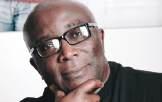
Quiet Everyone! King Trump Addresses His Subjects…
The world will not be in a hurry to forget Donald Trump’s address last Thursday to the United Nations General Assembly (UNGA) in New York. While UNGA addresses have become something of an annual ritual among world leaders, the occasional brilliant speech and touching rhetoric can sometimes touch the spine of a world frozen into boredom and inured by the all too familiar. Some years back, Thomas Sankara of Burkina Faso and Murtala Muhammed of Nigeria said unforgettable things to the world about Africa’s debt and poverty. But they are dead and so have their spirits.
In about 56 minutes of off script rambling and incoherent but sustained insult directed at the body, Donald Trump succeeded in one major respect: He monopolized the podium of global abuse and created an urgent nostalgia and even hunger for the great past star attractions of the annual UNGA speech festival. As Trump raged and fumed at nothing in particular and rained buses on the gathering, many in the audience may have searched in vain for the likes of Muamma Ghaddafi, Yasir Arafat, Venezuela’s Hugo Chavez, Cuba’s Fidel Castro or even South Africa’s Nelson Mandela. These are men who over the years delivered addresses that spoke truth to the arrogant power of monolith American power. These were men who in their various addresses would have instantly rebutted and rebuffed Donald Trump’s insults on the spot and reaffirmed the universal verities of a shared world order ruled by mutual respect among nations and their leaders.
Instead, the hall was full of humbled rulers of nations most of whom had been lately gutted by the fire of new American tariffs and the rise of a virtual monarch in a nation that was once the beacon of global democracy and diplomatic civility. Gone was the drama and bravura of nations whose leaders loudly said “No” and were respected for doing so. Gone was the counterpoise of arguments about alternatives in a world full of options. In their place, the world television audience of millions was treated to a boring monologue by a depraved elocutor of lies and untested truths.
Respected world leaders were jolted by the packaged lies and systematic demolition and subversion of truths they had held dear for decades. First, the UN itself was verbally incinerated and reduced to no better than a jaded assembly of inert observers. Trump shamelessly recalled his earlier bid to renovate the UN towers and indicated that he has not forgotten or forgiven the world body for denying him that lucrative contract. He castigated the UN for a minor escalator glitch and a routine teleprompter outage. He used these negligible technical misfortunes to castigate the UN for inactivity or for ignoring his all too frequent autocratic requests and impositions. No minor detail was too tangential for his egotistical showmanship. The object of it all was to project the UN as the hallmark of the decadent inefficient world order that he was about to excoriate and condemn. When he finally delved into the main substance of his presentation, it was mostly to overturn the realities around which the world has been agonizing in recent times. He described climate change and the quest for alternative energies as scams that has taken other nations hostage. He opted for a return to the worst of fossil fuels and a jettisoning of research and expenditure on new energy sources.
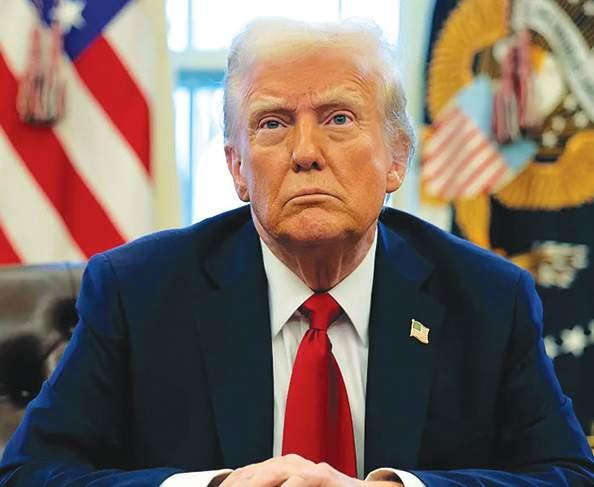
He took a wide swipe against China and other nations that have made strides in new energy research and investment. He wanted the world back in the era of coal, gas, diesel and environmentally degrading drilling for oil and hydrocarbons. For Trump, the trouble with the world energy situation is the shift in attention to clean energy. For him, the solution lies in a retreat to more oil drilling, new refineries, more gas guzzling cars on the roads and air polluting factories. Zit does not matter to him that many American companies will go burst if the clean energy economy collapses. Trump gloated over ancient findings as if they were new discoveries. He closed his mind to the vast quantum of statistics and findings on the advantages of new clean energy. A man who finds Tylenol responsible for autism or who encouraged people to drink Lysol for Covid-19!
Perhaps Trump’s greatest disservice to the UNGA was his attempt to universalize his unpopular anti immigration policy and suggest it as a requirement for the world. Already, America is boiling over his massive anti immigration raids and deportations. People who have spent more than two decades in the US are being rounded up and put in inhuman rendition flights and sent to countries that sometimes
they have hardly known or seen. Children are being yanked away from churches, schools and malls and hurriedly deported or put in chains. A detention camp has been prefabricated and put in the middle of the Florida Everglades where those who venture outdoors are automatic victims of dangerous alligators and poisonous snakes. ICE agents are roaming the streets of major American cities in search of so -called illegal immigrants to arrest, torture, detain and deport. It is this new culture of serial inhumanity and intolerant violations that Trump was marketing to the world as the new route. Every nation unto itself and the abolition of borders. Yet this is in a new world where technology has virtually abolished borders among nations. Globalization has created a world market and global demand for virtually everything and everyone. Internet for everyone. Google, Instagram, AI, Facebook, Tik Tok etc have Become items in a universal global language that aims to market cell phones, computers, ipads, condoms and fizzy drinks to everyone wherever they live. Therefore, to wake up and impose barriers in this global village runs counter to the culture of globalization. Meanwhile the companies that have made the greatest profits from a global undifferentiated world culture are American. But they are now being forced to constrain their energies and markets to isolated nations separated by Trumpian tariffs and trade barriers.
No doubt, the world will resist this new
order. But Trump will have done enough damage to our common humanity in a rather short time. He is encouraging nations to divide, live apart, suspect each other and live in antagonism. He is fracturing our bonded humanity.
An earlier infantile undertaking to end most wars has fallen flat on its nose. His cuddling of Russia is obvious even if he is pretending to impose sanctions on Putin, his business associate. His transactional approach to Ukraine wants to impoverish and perpetually indebt the country while pretending to promote peace. In the open, Trump pretends to oppose Israeli aggression and genocide all over the Middle East and in Gaza. He is already portioning and demarketing parts of Gaza which he is marketing as real estate, a new Middle East Riviera. The tyrant in North Korea rejected his idea of a North Korean tourism Riviera and replaced it with his own idea hence a cooling off in their relationship. While Trump spoke to the UNGA last week about peace and openly about his hunger for the Nobel Peace Prize, he was busy funding wars, arming Israel, selling intelligence to Russia and undermining African countries that refuse to sell him strategic rare earth minerals. Deceit and trickery in the service of personal wealth and profit are the secret new weapons in the Trump armoury. All that is what Trump sought to disguise in his serial insult on the gathering of world leaders in New York last week. How much costume can disguise the devil?
Edited by: Duro Ikhazuagbe
email:duro.Ikhazuagbe@thisdaylive.com
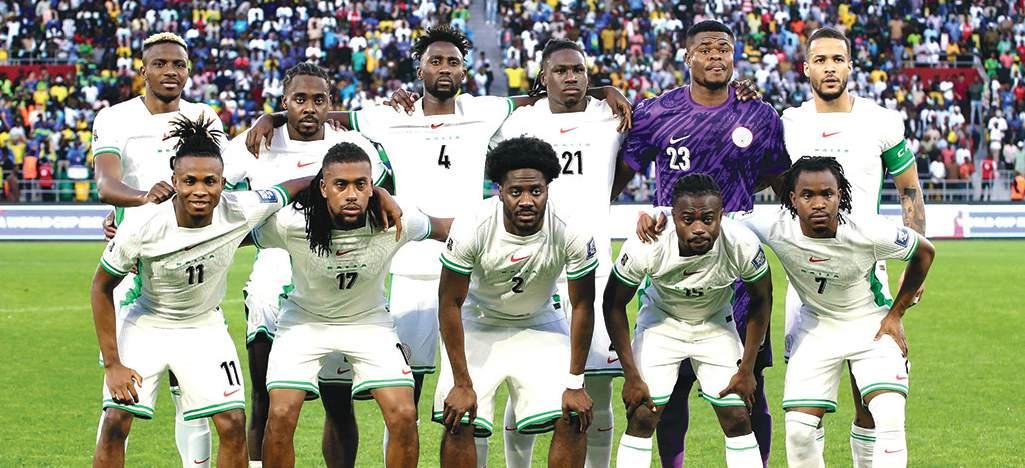
Oyo Gov, Makinde, Showers Dollars on Falconets, Wants Eagles to Play in Ibadan
Duro Ikhazuagbe
Oyo State Governor, Oluseyi m akinde, yesterday rewarded Nigeria’s U20 girls, Falconets with the sum of $15,000, after the two-time World Cup runners-up defeated their rwandan counterparts 4-0 in a 2026 FIFA U20 Women’s World Cup qualifying match at the Lekan Salami Stadium, Ibadan.
Goals by precious Oscar, tumininu Adeshina, Janet
Akekoromowei and Alaba Olabiyi steered the Falconets, to a 5-0 aggregate win, and a date with either Senegal or Algeria in the third round of the series in February next year. earlier yesterday, while declaring open Nigeria Football Federation (NFF) 81st Annual GeneralAssembly in the ancient city, Gov makinde, called the leadership of the federation to involve the Oyo State capital in hosting of matches involving the Super eagles. the sports loving governor insisted that having Super eagles matches in Ibadan will help his administration’s drive to grow the state’s sports
economy.
He emphasised the importance of collaboration in developing sports, particularly football, which continues to unite Nigerians across social and cultural divides.
“We are trying to develop a sports economy,” he said. “but if we don’t have the support of people like you (NFF), some of our efforts will be in vain,” stressed the governor.
He assured the NFF and stakeholders of the state’s readiness to host major sporting events, highlighting facilities already in place in Ibadan.
“Oyo State, Ibadan especially, we want to have the
opportunity to host big events, including the Super eagles,” makinde declared. “Check out our facilities, and I promise you I will give the support you need.”
makinde applauded the leadership of the NFF and the Nigeria premier Football League (NpFL) board in particular led by Hon. Gbenga elegbeleye, for improvements in officiating standards and league organization.
According to him, the strides taken in recent seasons have restored greater confidence in the domestic league, making it more attractive for fans and investors.
Weekend of Underdogs’ Glories
Man Utd, Liverpool, Chelsea, R’Madrid beaten *Only City
Yesterday was a bad day in the office for most of the top clubs on duty in both the english premier League and the Spanish La Liga. manchester United opened the bad weekend for the big clubs as ruben Amorim’s side slipped to a 3-1 defeat at brentford. United were trying to fight their way back after Igor thiago capitalised on some shambolic United defending inside the first 20 minutes to give the home side a two-goal cushion. benjamin Sesko pulled one back with his first goal since making a £74m summer move from rb Leipzig. the optimism generated by the victory over Chelsea seven days earlier was lost in
a 3-1 defeat at brentford that keeps United firmly in the bottom half of the Premier League.
At Selhurst park, eddie Nketiah struck with virtually the last kick of an enthralling encounter to give Crystal palace a deserved 2-1 victory and end premier League leaders Liverpool’s five-match winning start to the season.
Italian Federico Chiesa’s 87th-minute equaliser looked like to have salvaged a point the champions’ dismal display barely merited.
Ismaila Sarr had given palace an early lead but just as it looked like they would pay the price for wasting a host of chances, Nketiah pounced at the far post in the seventh minute
of added time to lift them up to second in the table.
At Stamford bridge, brighton came from behind to beat an ill-disciplined Chelsea side who had a player sent off for the second Saturday running.
Substitutes Danny Welbeck and maxim de Cuyper scored during 11 minutes of added time as the visitors profited from Trevoh Chalobah’s 53rd-minute red card to pick maximum points with 3-1 victory.
The story was not different at City Ground as Nottingham Forest lost 0-1 to visiting Sunderland. Ange Postecoglou’s difficult start to life as Nottingham Forest head coach continued as Omar Alderete’s first-half goal gave Sunderland the victory.
NPFL: Plateau Utd Beat El Kanemi to Move
plateau United moved out of the relegation zone following a hard-earned 1-0 victory over el-kanemi Warriors at the New Jos Stadium yesterday.
monday Gideon scored the winning goal for the home team two minutes after the half hour mark. It was plateau
United’s second win of the season. the Jos club moved to 13th position on the table with six points from five games. el-kanemi Warriors remain in sixth position despite the defeat.
At the Samuel Ogbemudia Stadium, benin City, bendel Insurance were held to a 1-1 draw by bayelsa United. Kayode Oke opened scoring for
out of Drop Zone
Insurance from the penalty spot on the dot of 45 minutes. Jawad mustapha restored parity for Bayelsa United five minutes after the break.
bayelsa lost their previous two league games to enyimba and Nasarawa United.
Five more match-day six games will be played today.
Governor makinde reiterated his administration’s commitment to using sports as a tool for youth development, job creation, and social cohesion.
He further assured the football stakeholders that Oyo State will continue to provide the enabling environment for football and other sports to thrive, while also strengthening partnerships with national bodies like the NFF.
earlier in his welcome address, NFF president, Ibrahim Gusau, praised Gov makinde for his sports development in the state.
He promised that a Super eagles match would be staged in Oyo State before the end of the current administration in 2027.
“We appreciate your contributions to football and sports. I assure you that before 2027, a Nigerian national team match will be hosted here in recognition of your consistent support,” Gusau stated.
In a goodwill message, former NFF president, Amaju pinnick, called on sports stakeholders to rally behind the vision of the current leaders and foster unity within the federation.

50TH PASSING OUT PARADE…
Waiting for the Next INEC Chairperson
How can election results become more credible and acceptable in Nigeria? If you ask five Nigerians, three will tell you an upright chief executive must be appointed for the Independent National Electoral Commission, better known as INEC. The pervasive opinion is that the most important factor in credible elections is the character of the person at the helm of affairs at INEC. That is probably why the country is waiting with bated breath for the successor to Prof Mahmood Yakubu, who is serving his last days as the chairman of the commission. President Bola Ahmed Tinubu is expected to nominate the next INEC chair soon. The nominee will then undergo senate confirmation hearing.
Yakubu was first appointed for a five-year term by President Muhammadu Buhari in October 2015. He then created a world record with his re-appointment in 2020, becoming the first electoral boss to get a second term and, accordingly, the longest serving. Being electoral boss for 10 years is unheard of in Nigeria. There is now a big debate on where the next INEC chair should come from: north or south? Until Jega was appointed in 2010, no northerner had held the position. It had always been southerners. Jonathan broke the unwritten rule by going up north. Jega was succeeded by Yakubu, also a northerner. No wonder, where the next chairperson will come from is a big topic of debate.
Describing the INEC seat as one of the hottest in Nigeria should be officially classified as the “Understatement of the Year”. Nobody occupies that seat without getting a negative review — except from election winners. Those who lose typically demonise the chairman. Yakubu’s predecessor, Prof Attahiru Jega, was demonised by those who lost in 2011 and lionised by the same set of people in 2015 when they won. Those who lionised him in 2011 — after winning — ended up demonising him in 2015 after losing. That is the way we roll. An election is only free, fair and credible when you win. When you lose, it is the worst election in Nigeria’s history. Know that, know peace.
Back to the question: how can election results become more credible? There is no doubt that the leadership of the electoral commission is critical. While it is true that all electoral chiefs come under criticism over one misgiving or the other, some have definitely conducted themselves worse than the others. We have had chairmen who shamelessly interfered with the process and imposed candidates on parties. One told the media he could not allow a particular candidate “to be governor of my state”. We had one who declared a winner while collation of results was going on and mocked the opposition for objecting to it. He said they did not even print posters or campaign nationwide.
While the character of the INEC head is important, the competence is also vital. Without that, the commission will fail. The general election is conducted in 176,846 polling units across the 36 states of the federation and the FCT. In a country with severe infrastructure deficit, it requires competence to handle the logistical nightmare. It is an enormous job getting materials and personnel to 176,846 units across land and rivers, on good and bad roads, under clement and inclement weather, and under security challenges. While INEC is an organisation and a bureaucracy in itself, the chair is critical in shaping its conduct and culture — and building or maintaining its institutional capacity.
But there are things beyond the control of the chairman and the commission. Security, for one. The most powerful agents on the ground are the security personnel. If they are determined to prevent rigging, I am
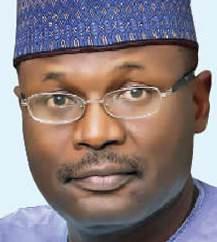
Yakubu, INEC chairman
certain politicians and their agents will be contained. For instance, a presidential election is conducted at 176,846 polling units across 8,809 wards, 774 local government areas, 109 senatorial districts and 360 federal constituencies. People are stuffing ballot boxes, altering results or suppressing voting in Erin Ile, Odo Ere, Nguru, Fiditi, Somorika, Agba-asa and Okoroba. The INEC chairman is sitting in his office in Abuja. What really can he or she do to prevent the shenanigans?
More so, although the INEC chair is the returning officer (RO) for the presidential election, he is seated at the International Conference Centre, Abuja, waiting for the results from the ROs in the 36 states. The results are first read at the state level in front of TV cameras before the RO travels to Abuja to read them again, also in front of cameras. All the INEC chairman does is announce the tally. He cannot alter what has been announced at the state level and repeated in Abuja. It is only technical or procedural issues that he can raise at this point in the process. I have not witnessed any incident where the INEC chair changed the results already read out loud on national TV by the ROs.
My sense is that most of what is done to election results are at the collation centres. INEC uses mostly ad-hoc staff and youth corps members as field officers for elections. This is a major weak point in the chain. This is where politicians play what is called the “ground game”. They budget heavily to “settle” electoral officials (some of whom have been charged to court and convicted) and security personnel. It is well understood that candidates must “settle” this bunch in order to be taken seriously, especially in constituencies that are competitive. In one-way constituencies, it is difficult to rig elections in favour of weaker candidates. However, a strong candidate may massage the figures.
To combat malpractices, INEC has come up with a lot of innovations over the decades. Some of them are: dropping thumb-printed ballot papers into transparent boxes and in the open, numbering ballot papers and coding result sheets, counting votes in the open, using technology to prevent multiple registration, multiple voting and ballot stuffing, going through accreditation before voting, and so on. Yet, desperate politicians always find a way to short-circuit these hurdles. Indeed, the introduction of IReV, the result-viewing portal,
by INEC in the 2023 elections was part of a reform to promote transparency, although it became the major reason the presidential election was discredited. Why? The innovation failed on election day. The results of the federal legislative elections that were held at the same time were uploaded to IReV, but the presidential ones were not. Initially, INEC did not communicate well with Nigerians over what happened. People were left to guess and speculate. INEC eventually blamed the failure on a technical glitch and uploaded the results many days later. However, those who lost the election did not take kindly to it and alleged that the IReV was switched off on purpose to manipulate the outcome. I believe IReV was oversold by INEC and it came back to bite them. They marketed the innovation in a way that hinged the credibility of the elections on it.
Poignantly, it was through the same IReV that we were able to determine that indeed, the results in Rivers state were manipulated. An analysis by the BBC showed that the count for Tinubu/APC was inflated by over 106,000 votes, while the tally for Peter Obi/Labour Party was reduced by over 50,000. No one alleged that the INEC chairman was responsible. Interestingly, as well, if the figures posted on IReV were not altered, they would still have not been enough to make Obi the overall winner of the election. Besides, Rivers, and to some extent, Imo were the only states where IReV clearly proved that the results were altered. There were no proofs in the other 34 states and the FCT.
The IReV failure aside, I thought the 2023 general election was above average. Many governors lost their bids to be elected senators. That was very unusual (and encouraging). The APC, the ruling party with all the celebrated might of controlling state institutions, lost Kano, Katsina and Kaduna in the presidential election. The sitting president was from Katsina. Tinubu lost Lagos for the first time, either as a candidate or party leader. He also lost Osun state, even though he was expected to win. Effectively, he lost two of the six states in his home zone. Obi, seen as an outsider because of his “small” party, knocked out Tinubu and Atiku Abubakar in several states down south and up north.
It would, thus, be unhelpful not to acknowledge the progress we have made in the electoral process in the last three cycles. It is far from perfect but I think we are heading somewhere. Before the introduction of electronic registration for elections in 2015, the voting figures were insane. In 1999, 2003, 2007 and 2011, the valid votes were 29.8 million, 39 million, 35.4 million and 38.2 million respectively. The introduction of biometrics saw the figures plunge to 28.6 million in 2015, 27.3 million in 2019 and 24 million in 2023. I am not saying votes are still not being padded, but it is now more difficult and it seems we are getting closer to reality. I urge us not to discount this fact.
For election results to become more credible and acceptable in Nigeria, we surely need the right leadership at INEC. In addition, desperate politicians must repent. Likewise, voters must develop the temperament for democracy. It is awkward to keep promoting the notion that it is only when your candidate wins an election that it can be considered credible. I know it is an emotional thing, but voters have to become more rational and learn how accept defeat. All these ingredients are essential if we want to truly grow this democracy and promote credible elections. Yakubu has done his shift. Whoever succeeds him must build on the positives while providing more solutions for the negatives.
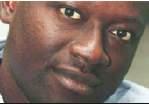
And Four Other Things…
UNCLE MOUFTAH, RIP
Three months ago, I sent Mallam Mouftah BabaAhmed what I called the “pivotal chapter” of my forthcoming book and asked him to help critique it. He called me later and said we needed to discuss it over lunch. He said I should see him anytime I was in Abuja. We communicated almost every day in one way or the other, but suddenly the WhatsApp chats stopped. I thought he was busy, only to be told he had fallen ill and we should remember him in our prayers. On September 17, he died, aged 63, in Saudi Arabia. It is so sudden and so sad. Baba-Ahmed, whom some of us called “Uncle Mufu”, was a warehouse of knowledge and a great bridge-builder. My condolences to the family. Shocking.
OGONI FOUR
Some activists may object to the posthumous conferment of national honours on the Ogoni Four, but I am of the opinion that President Bola Tinubu has just done the right thing. For those who may not know, Chiefs Albert Badey, Edward Kobani, Theophilus Orage and Samuel Orage (the “Ogoni Four”), were murdered and burnt to ashes in 1994 after being tagged “vultures” for their views. This led to the controversial trial, conviction and execution of Ogoni Nine, including playwright Ken Saro-Wiwa. When Tinubu granted posthumous pardon and national honours to Ogoni Nine, I imagined how the families and sympathisers of Ogoni Four would feel. Everybody in Ogoniland needs to heal. Closure.
GUINEA BLOCKADE
Guineans have just approved a new constitution via a referendum to pave the way for the military ruler, Gen Mamady Doumbouya, to run for president. Doumbouya had promised not to transmute to a civilian president after ousting President Alpha Condé in a military coup in 2021. The constitution now allows him to run and he can serve two seven-year terms. That is 14 years. The electoral board said 90 percent of the voters approved the new constitution, although opposition parties said it was all a joke. Of course, Doumbouya will be elected by a landslide and after 14 years, he can amend the constitution to axe the term limit. Another referendum will approve it by 99 percent. Afrodemocracy.
NO COMMENT
Dreams by some Nigerians to “japa” to Japan through the “Africa Hometown Initiative” have just been disrupted. The initiative was conceived by the Japan International Cooperation Agency (JICA) to strengthen ties with Africa by fostering exchanges to bridge four municipalities in Japan with four countries: Nigeria, Ghana, Mozambique and Tanzania. As usual, Nigerian government officials shouted to the whole world that Japan had decided to create a special visa for Nigerians. In this age of anti-immigration sentiments championed by US President Donald Trump, the Japanese swiftly resisted. The initiative has now been cancelled. Can we sue Japan for disappointment? Hahahaha…
